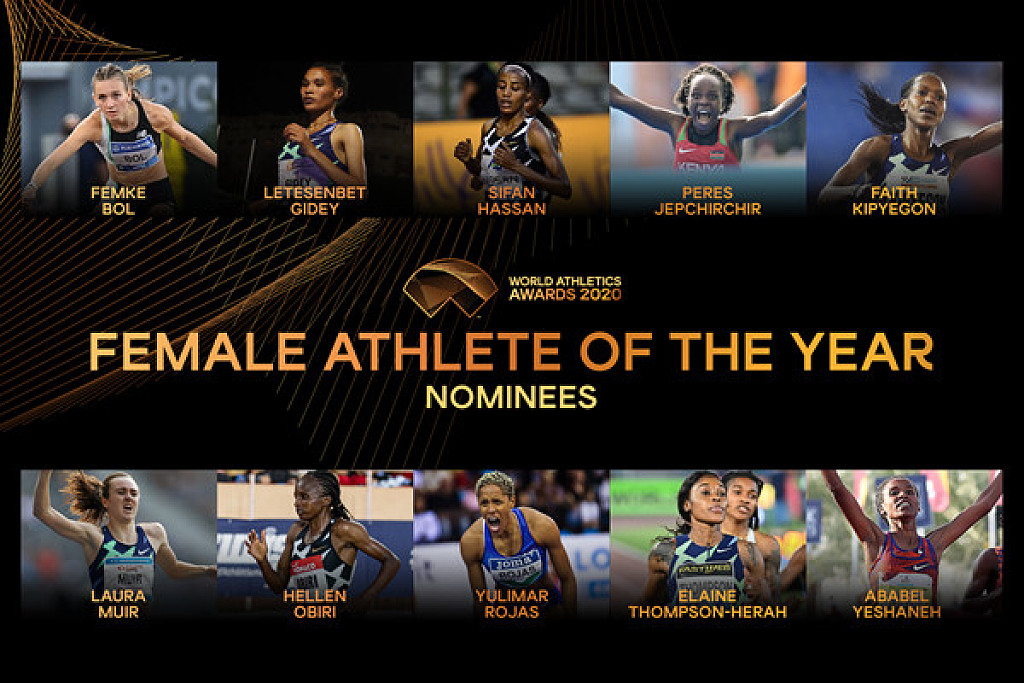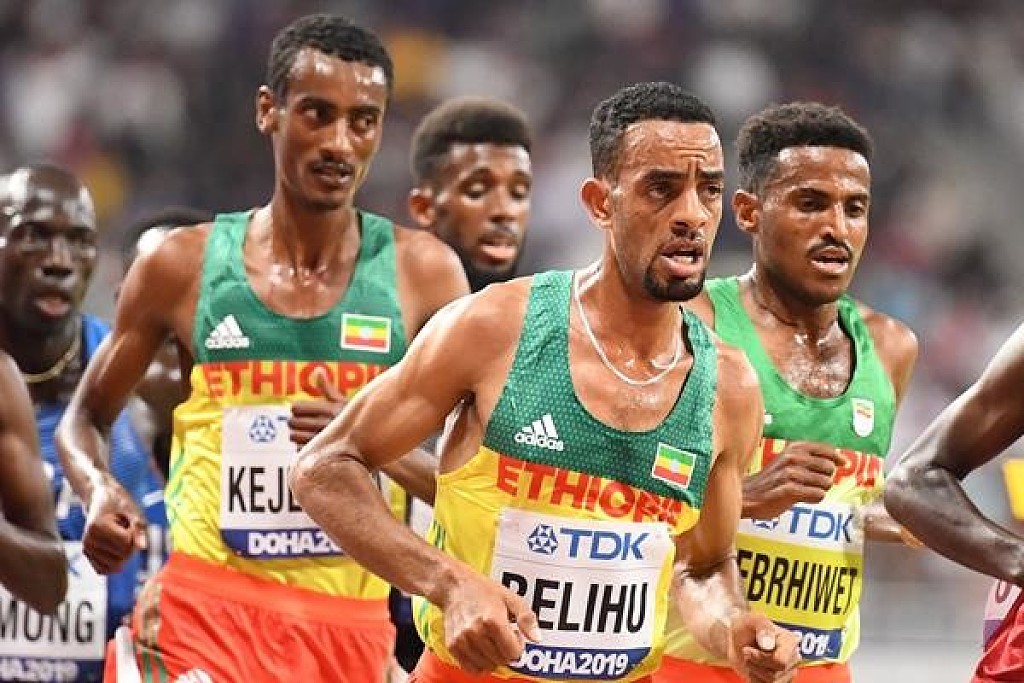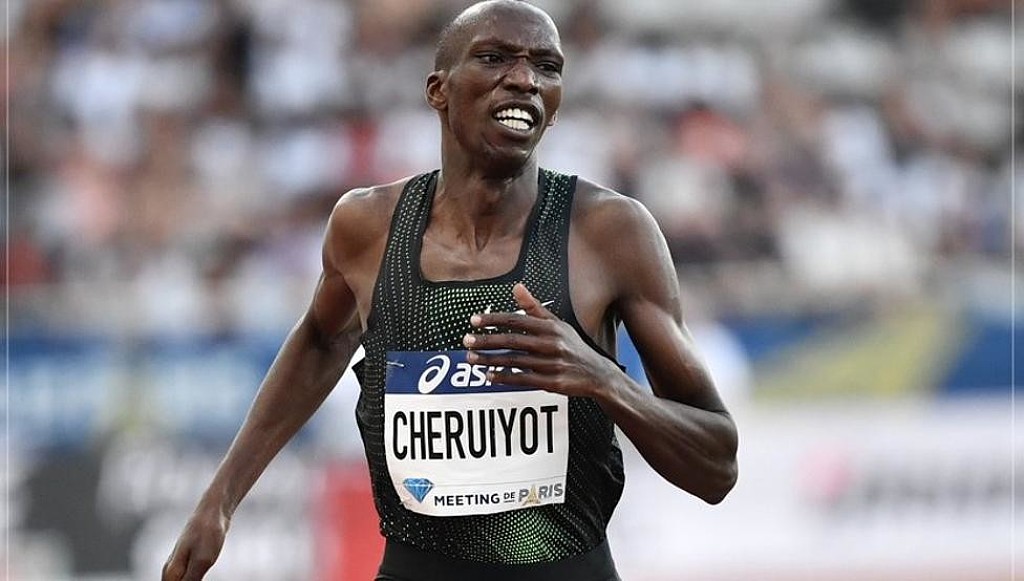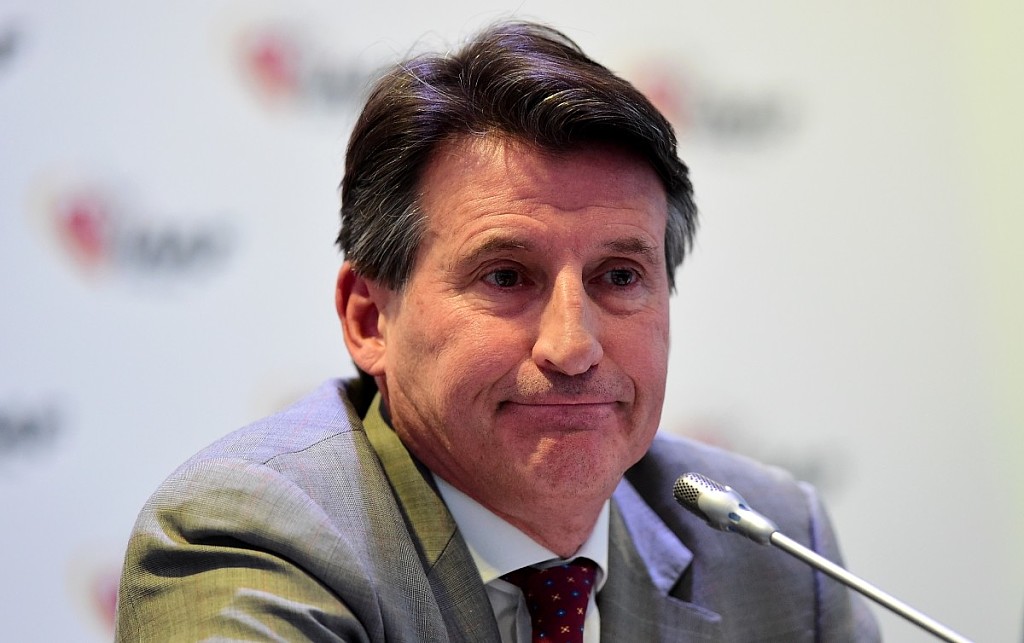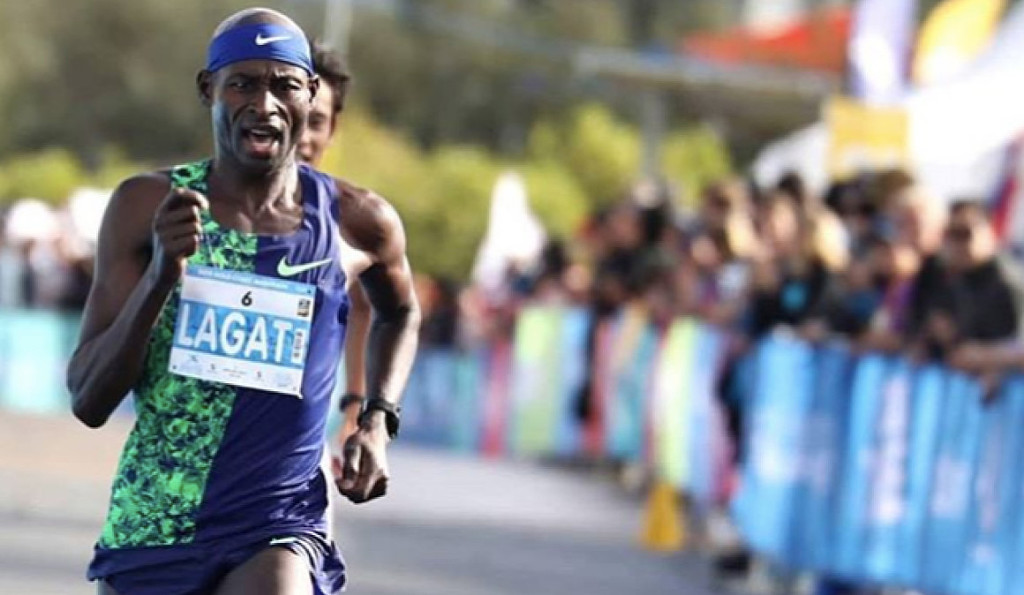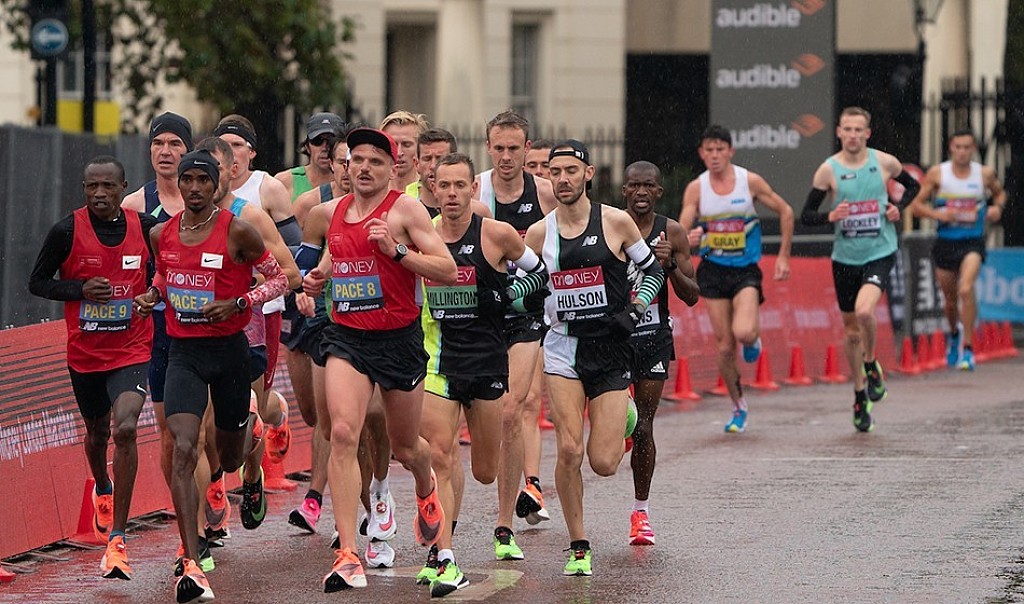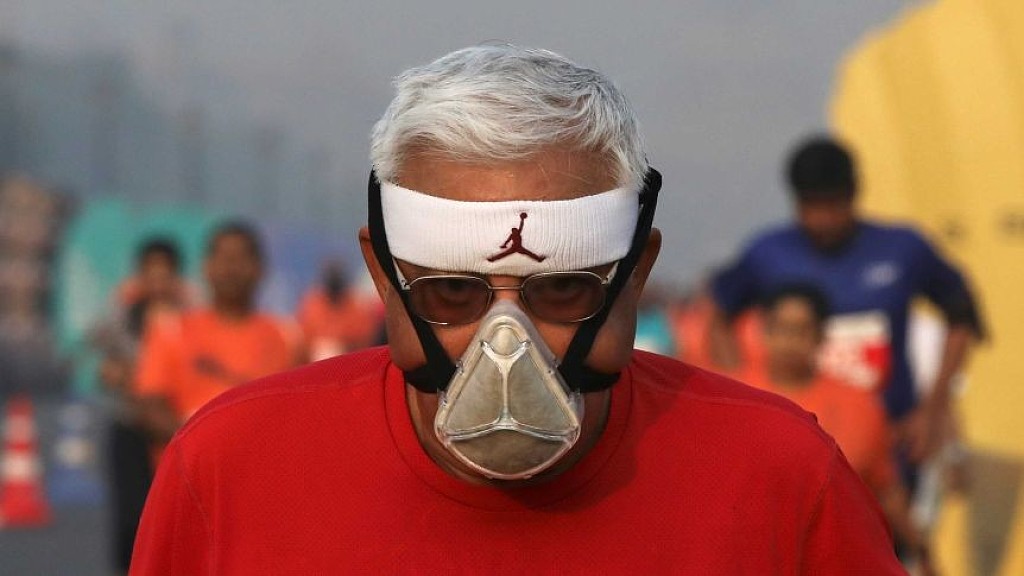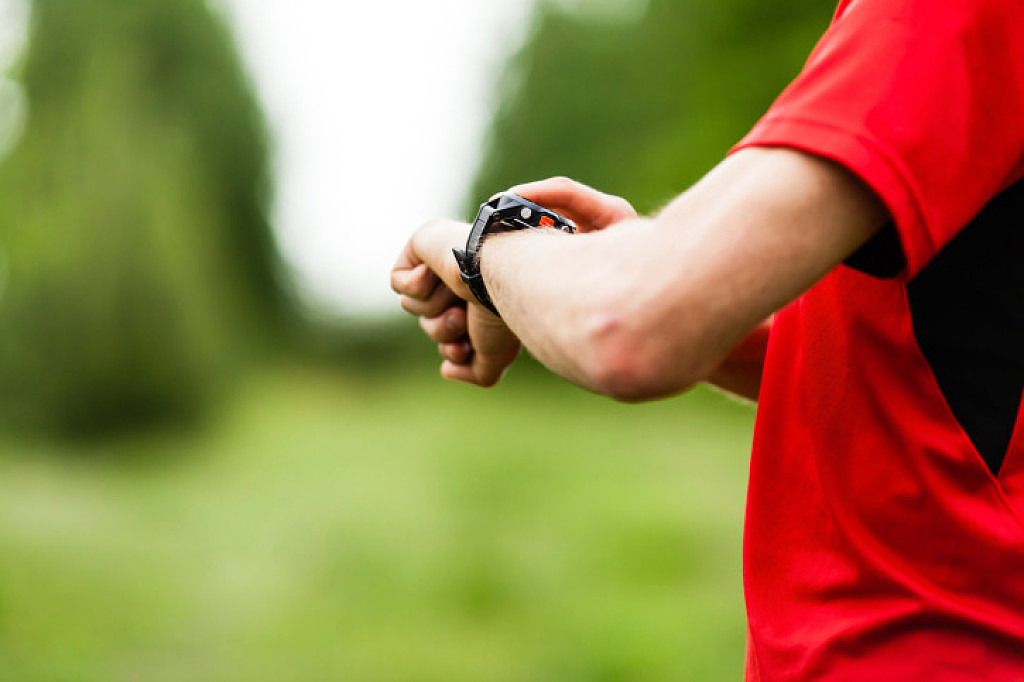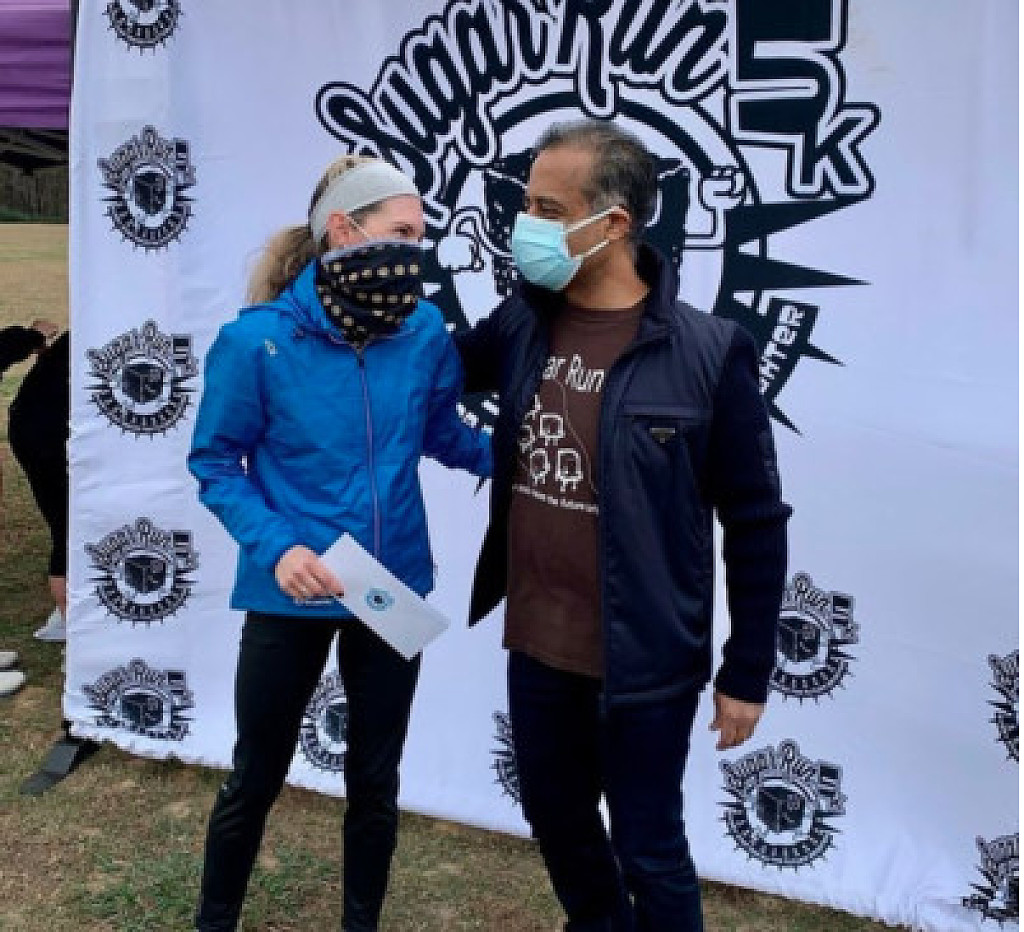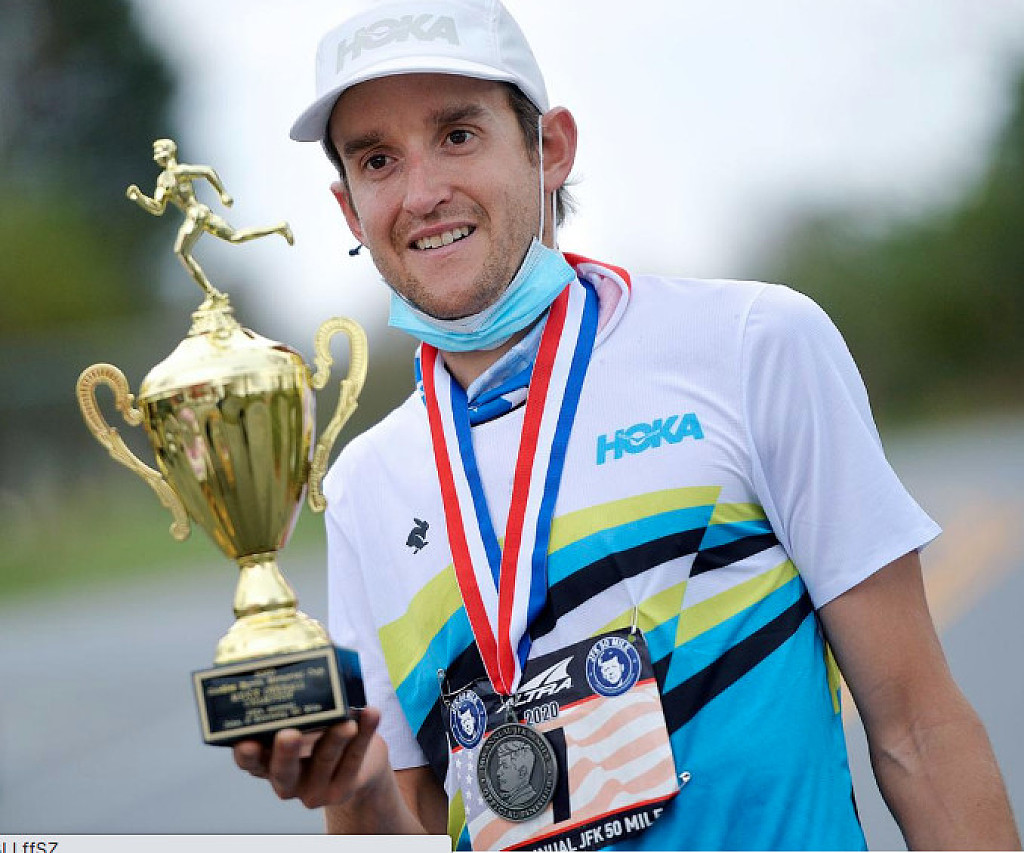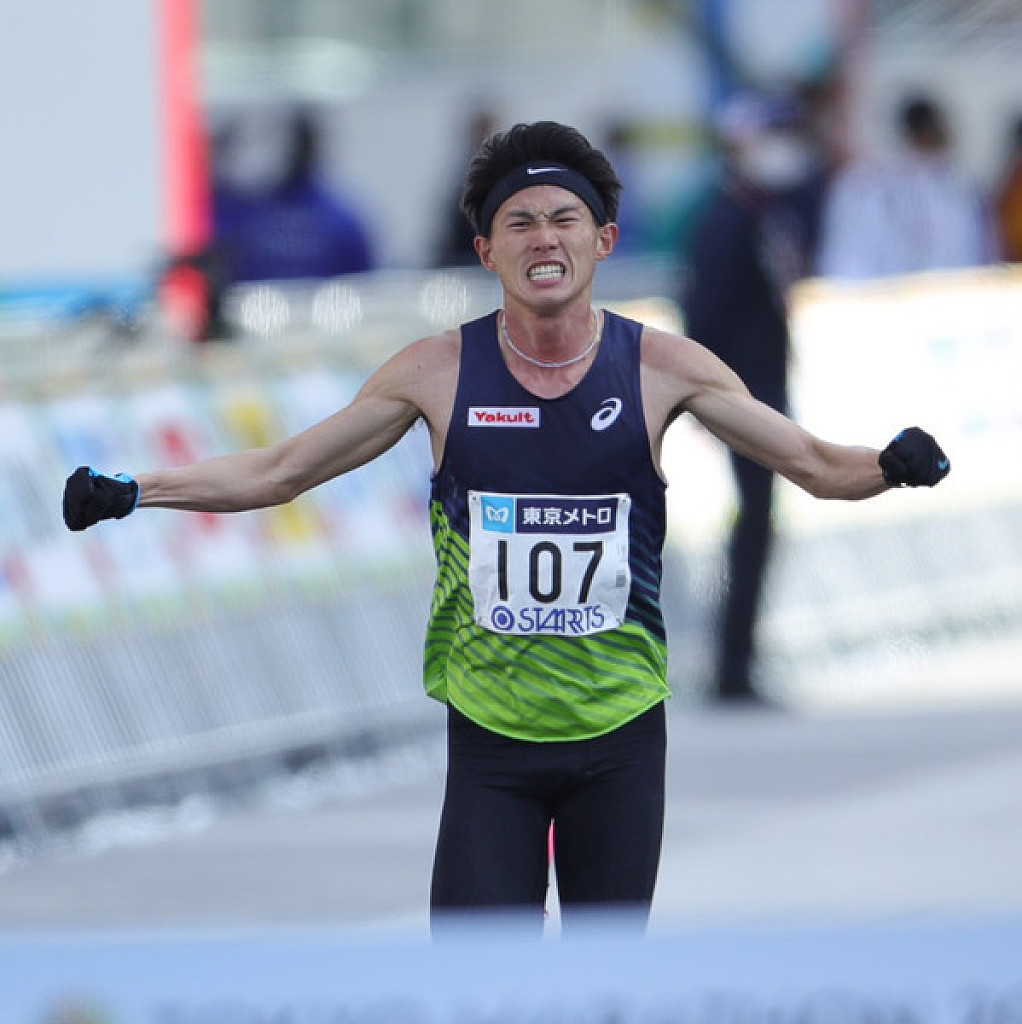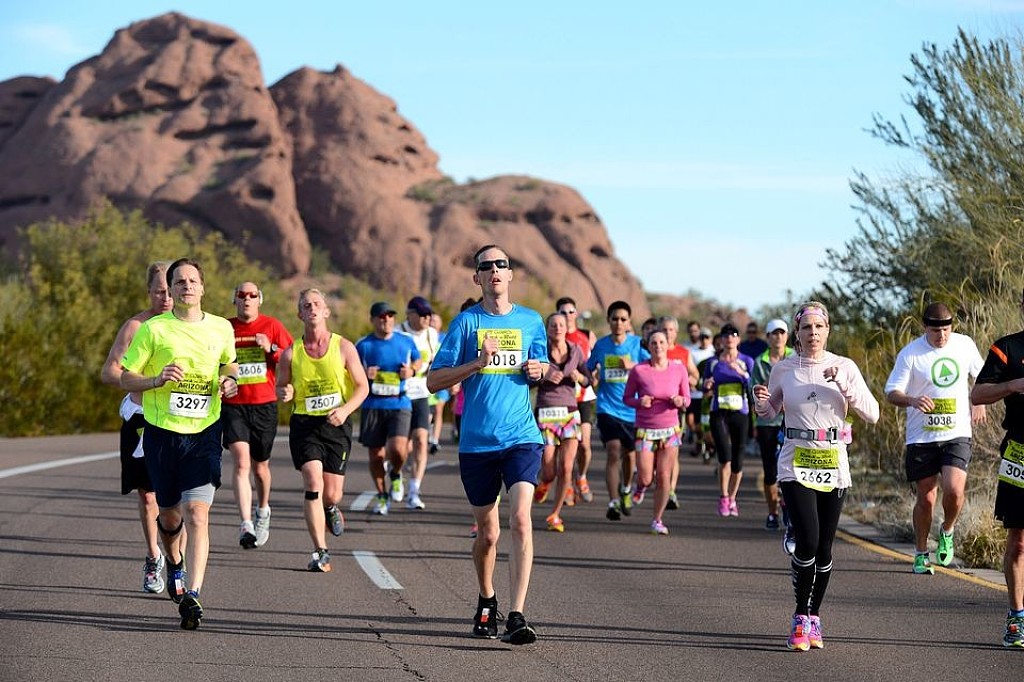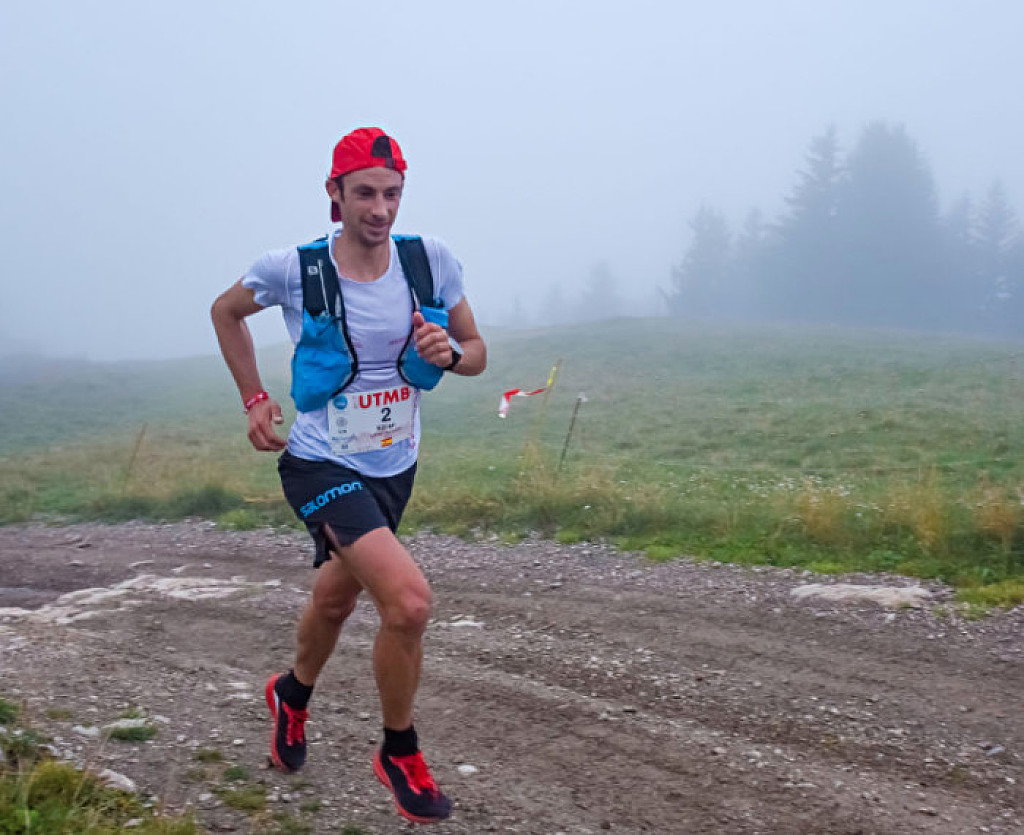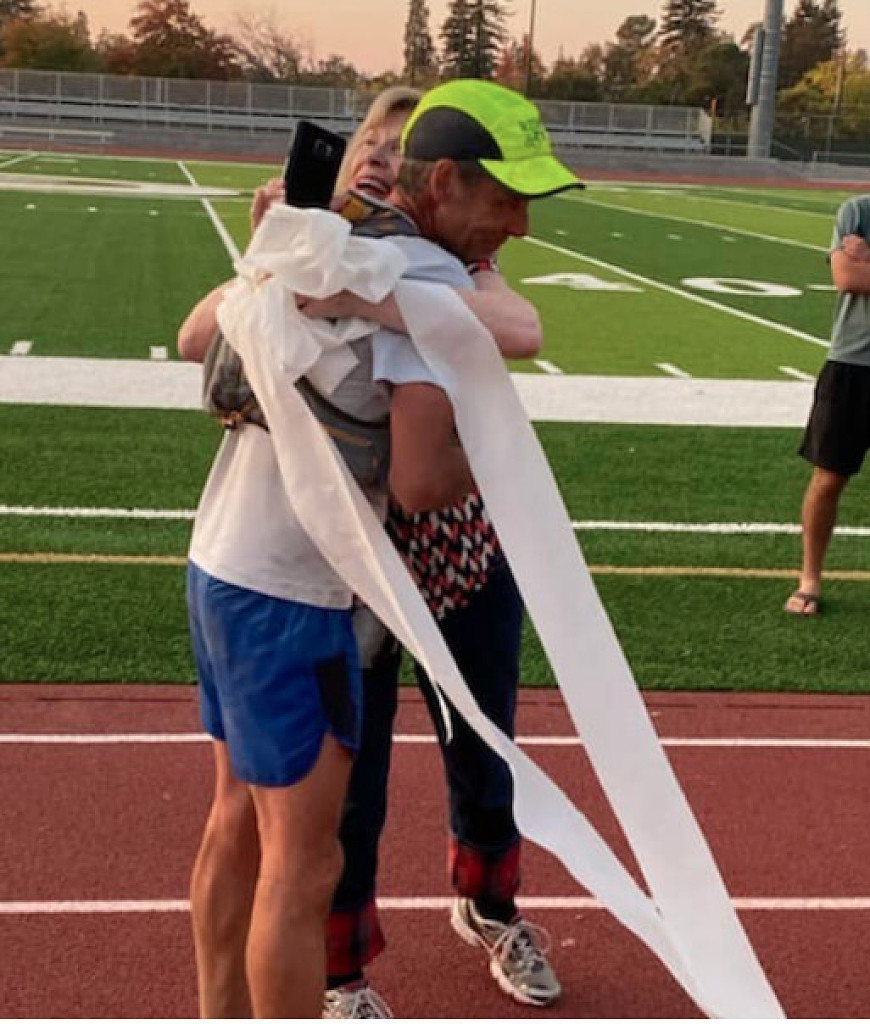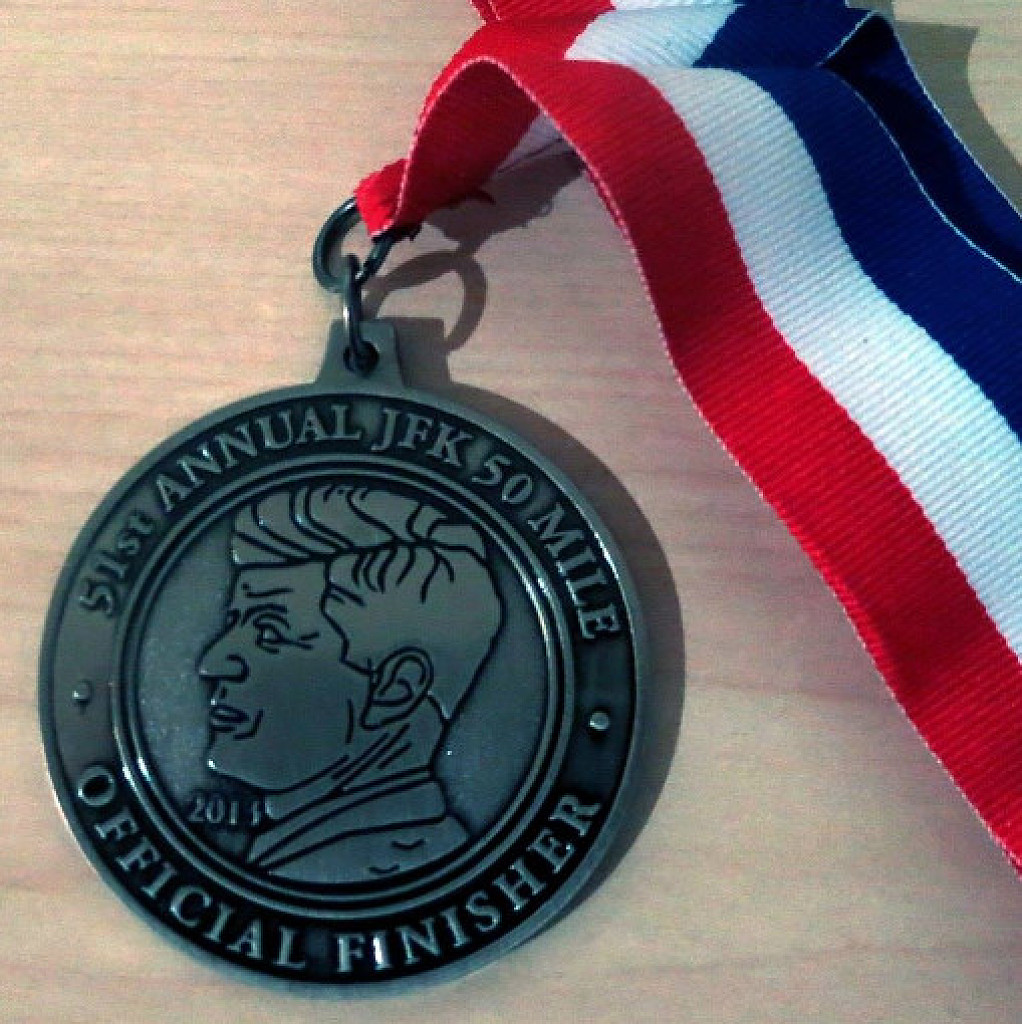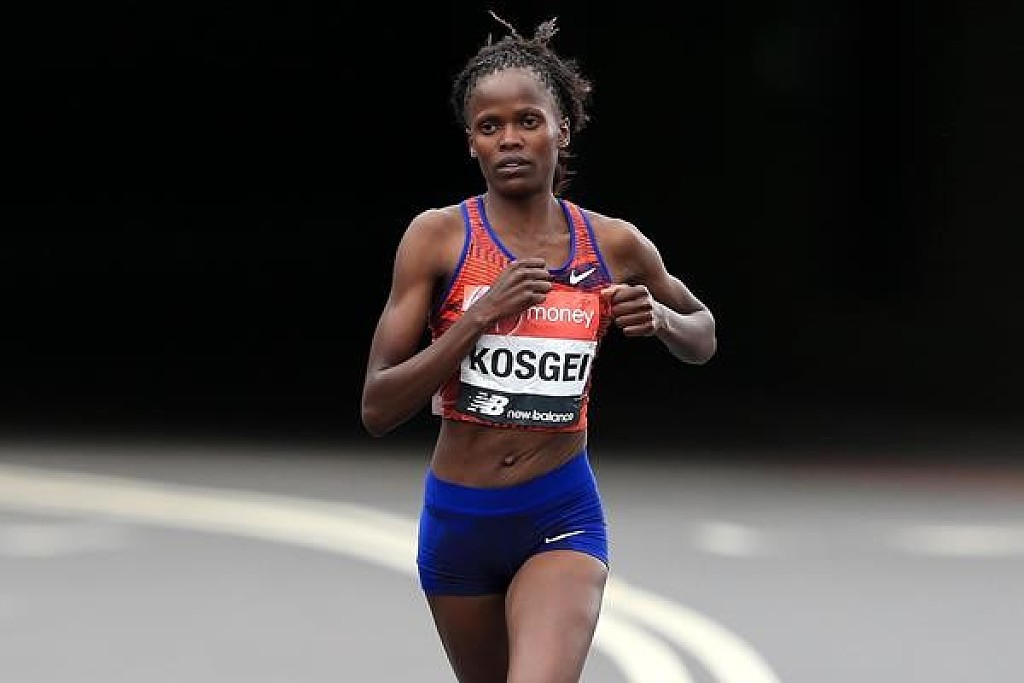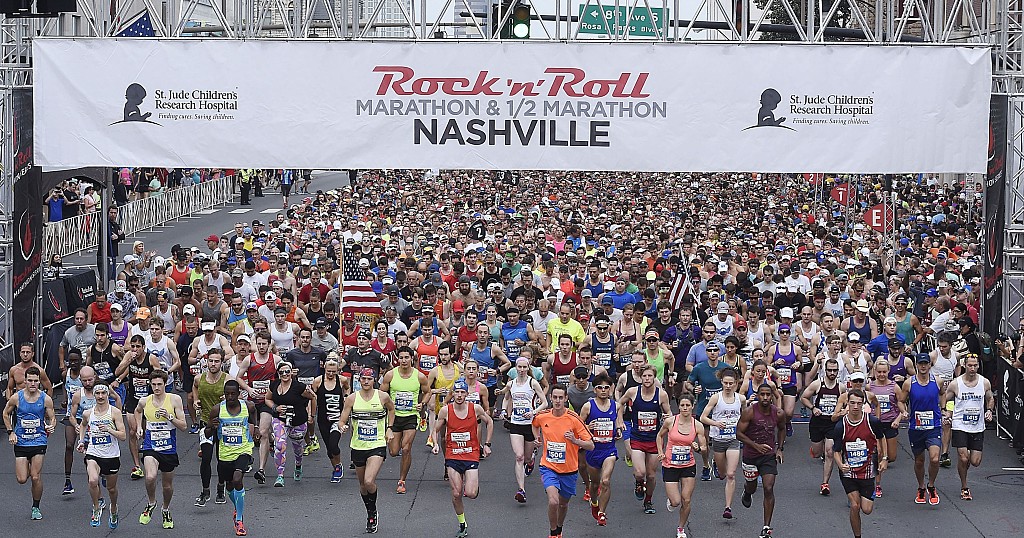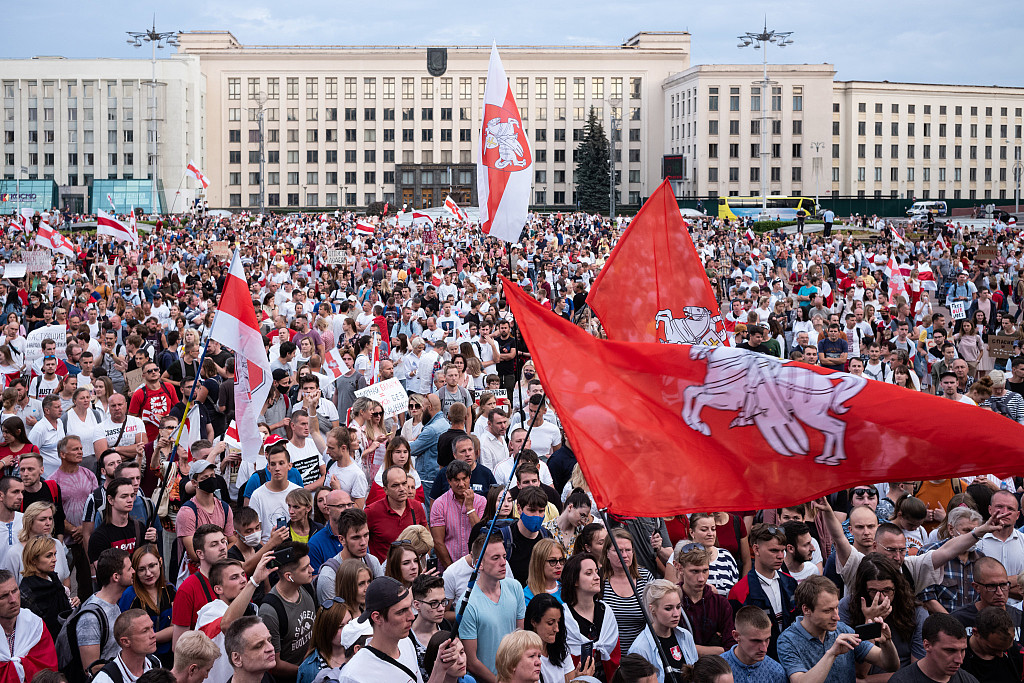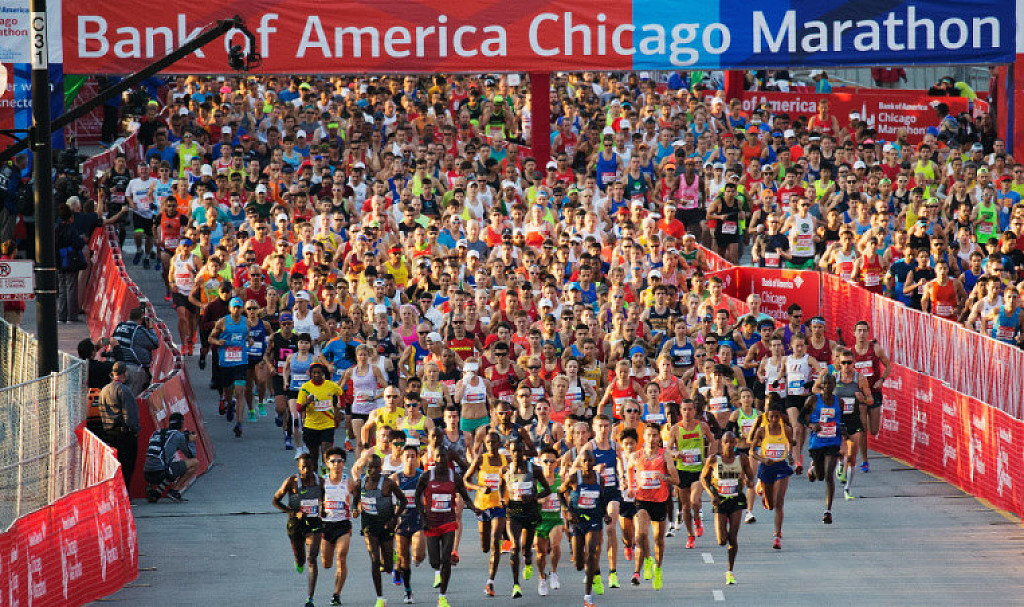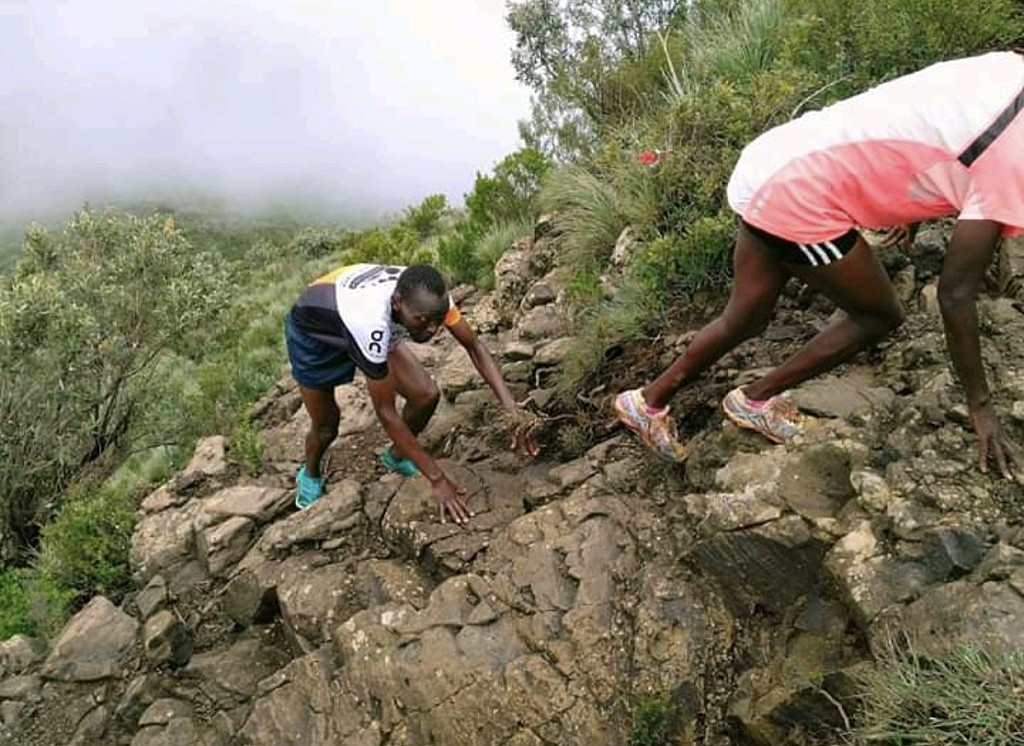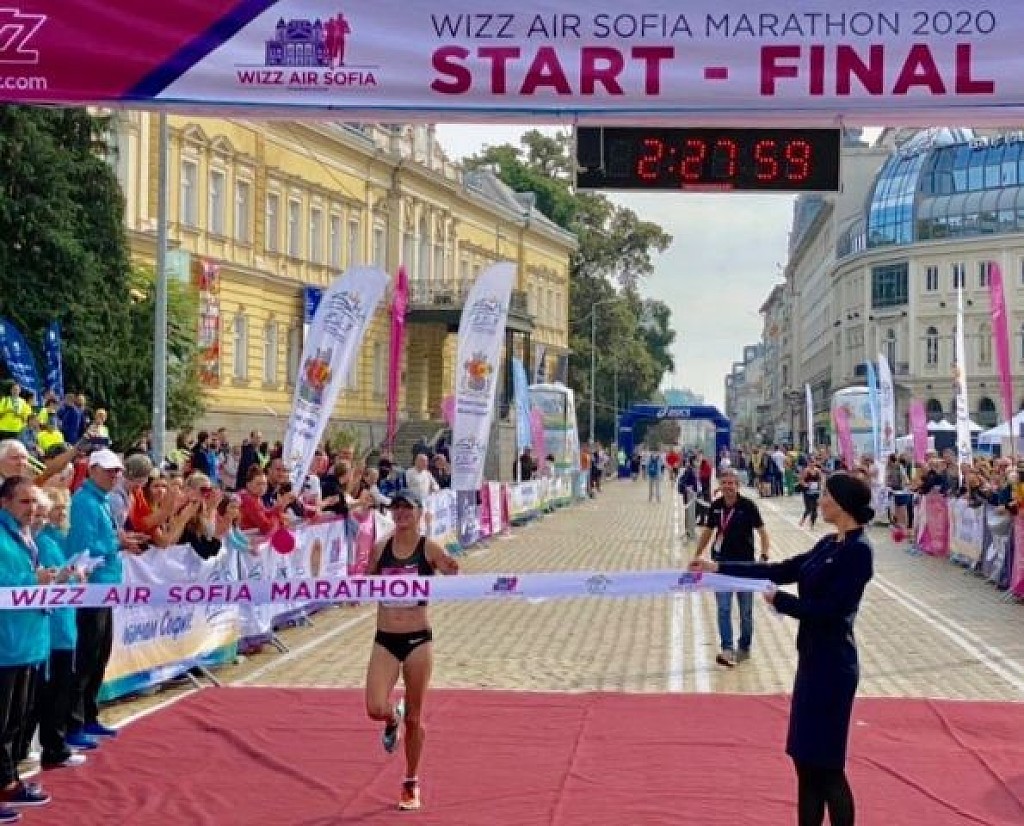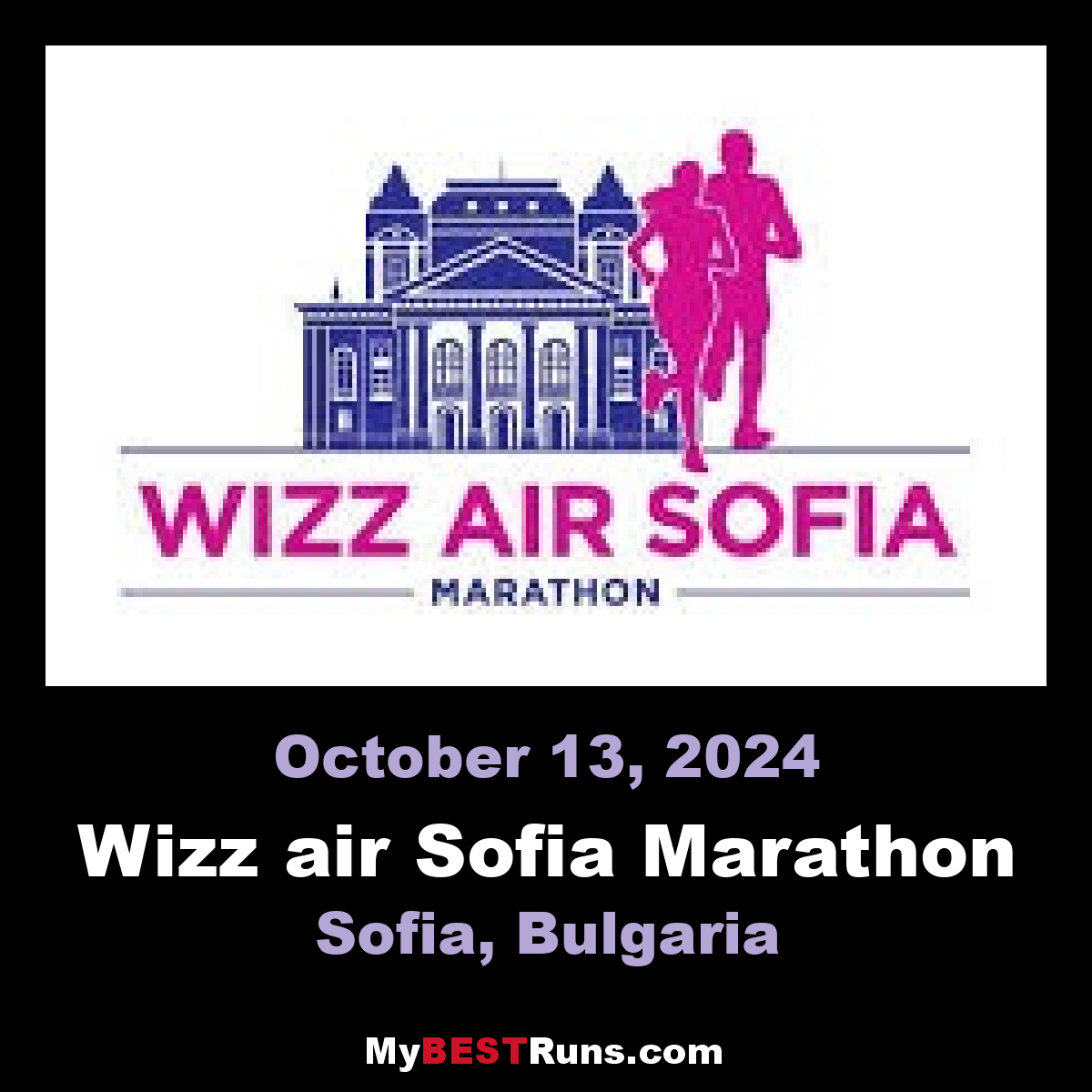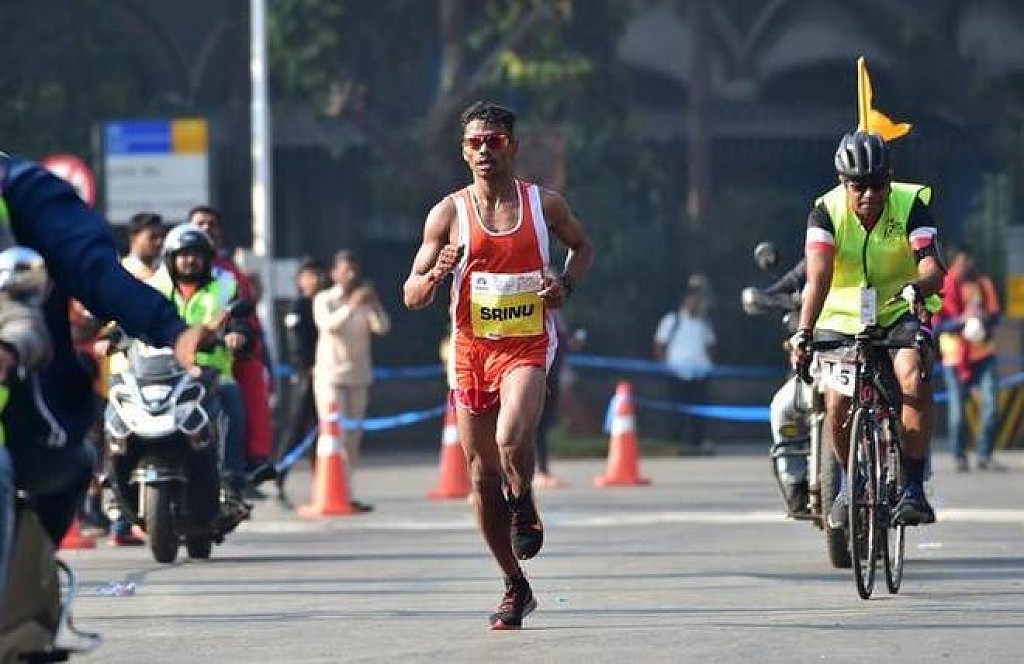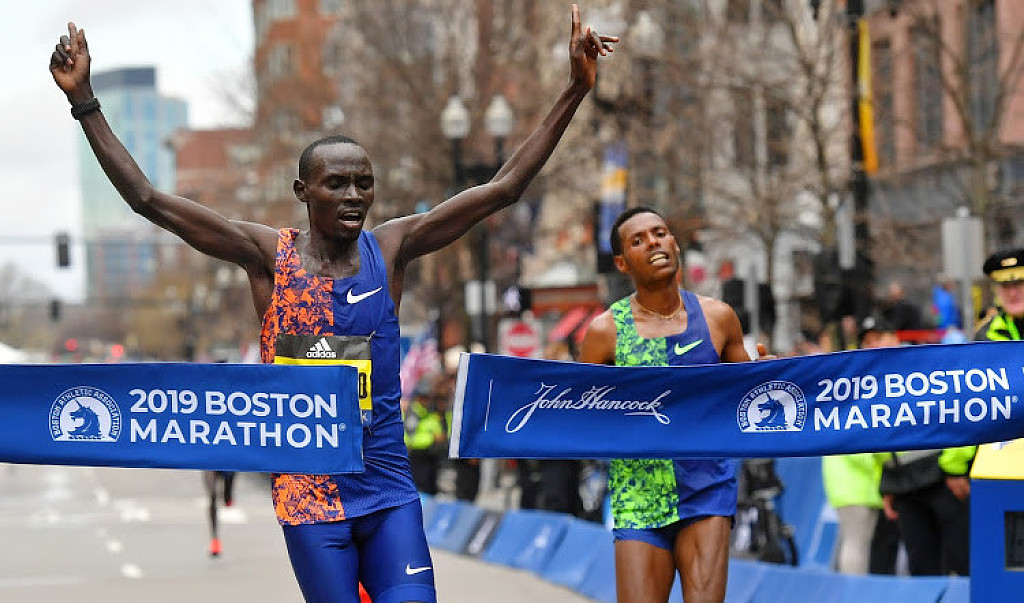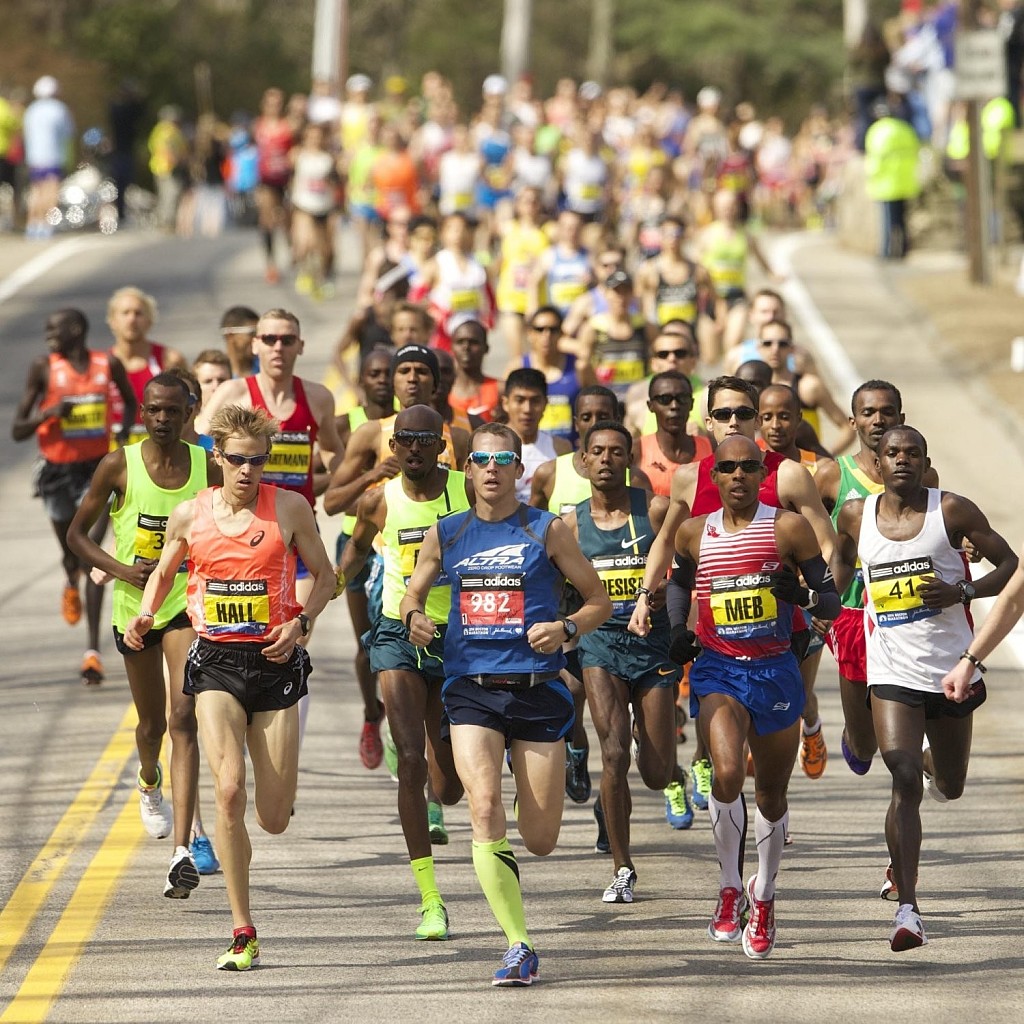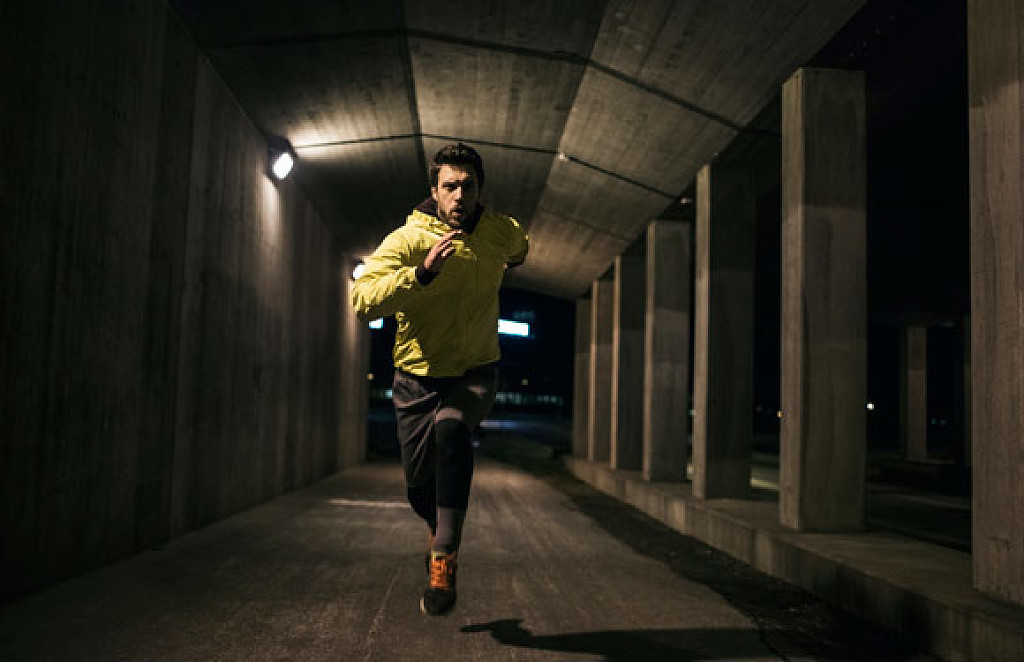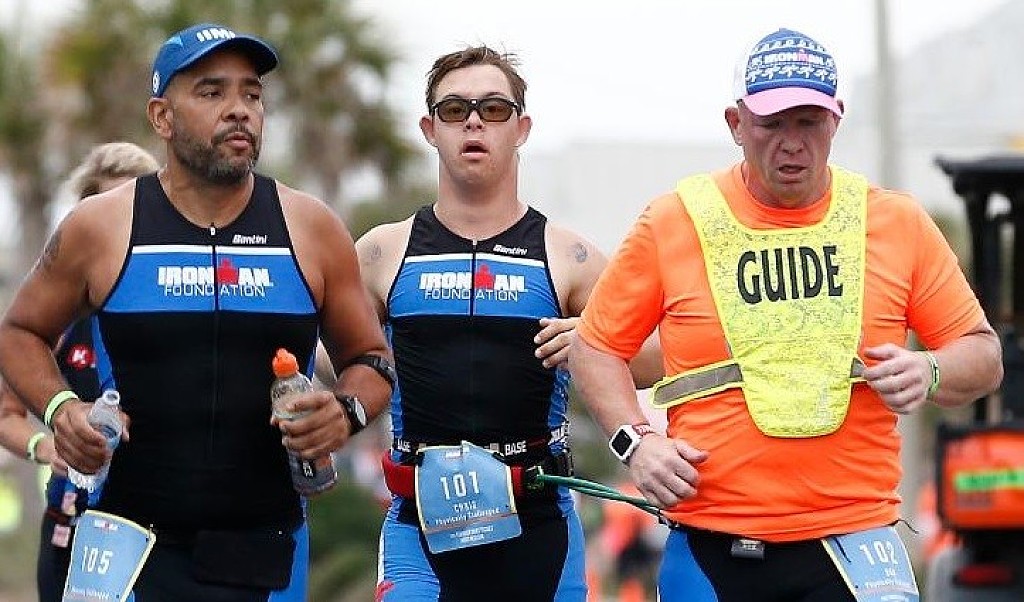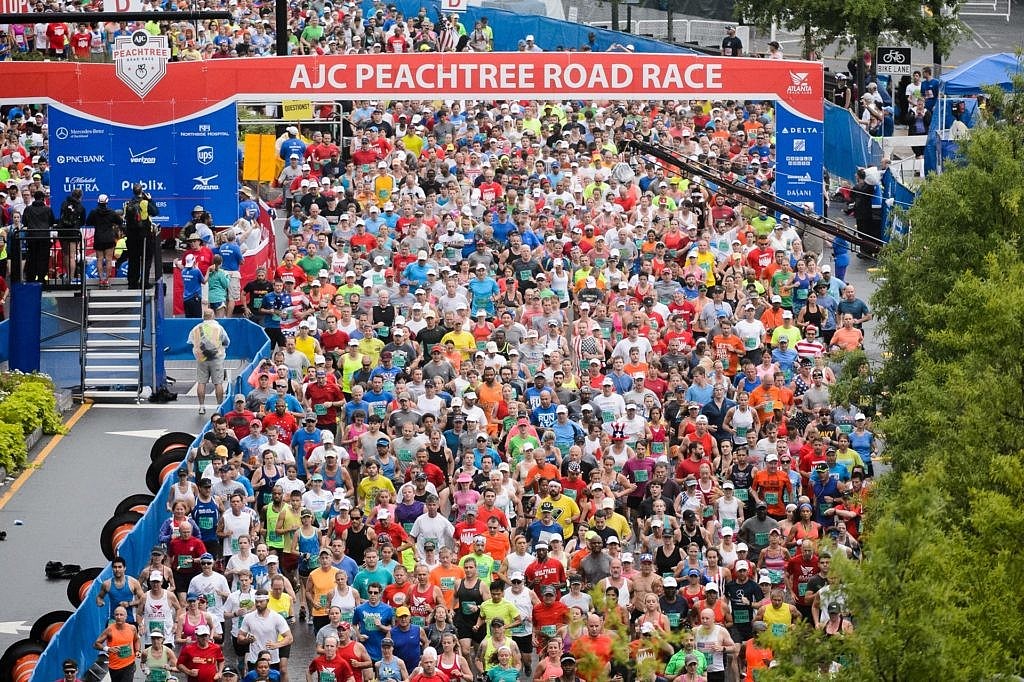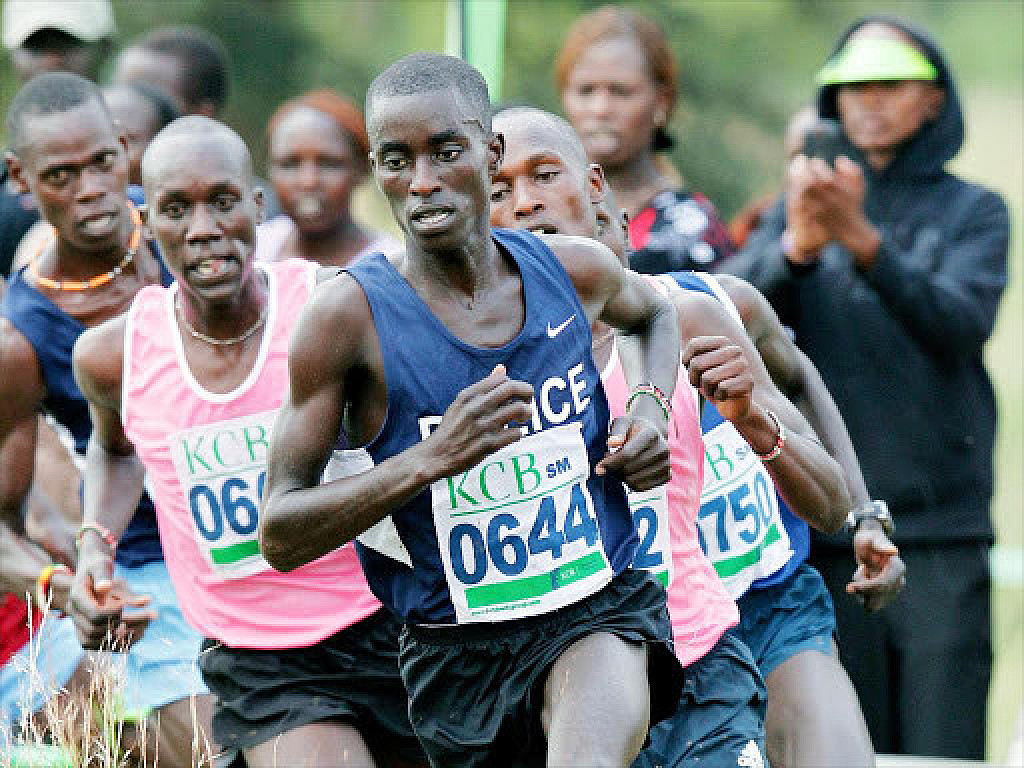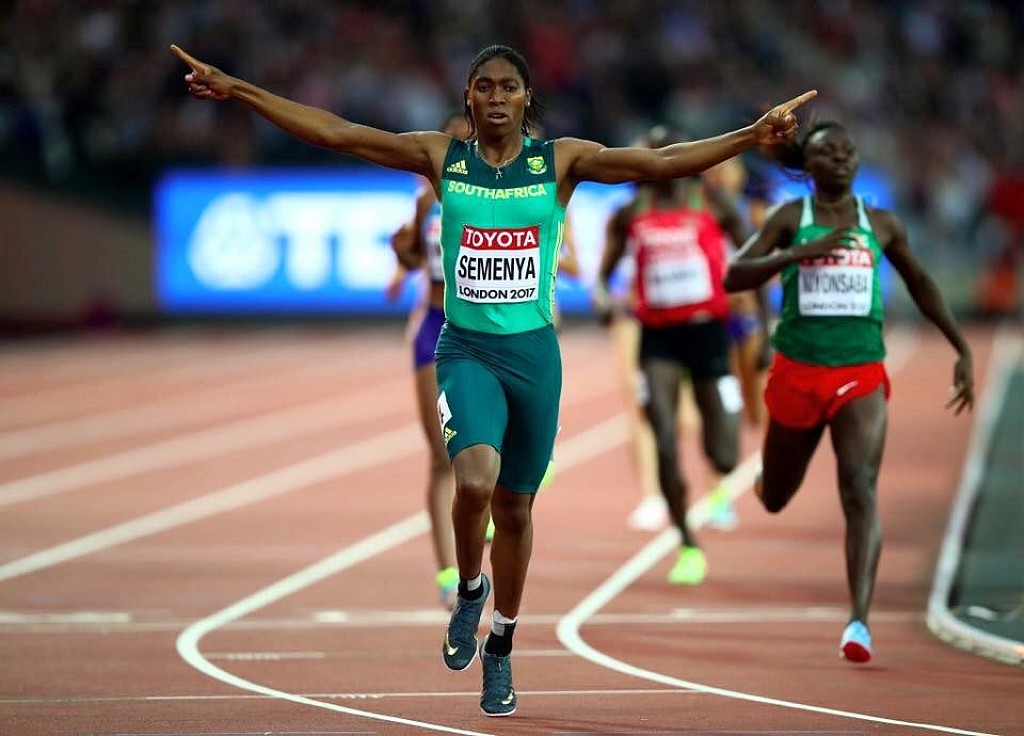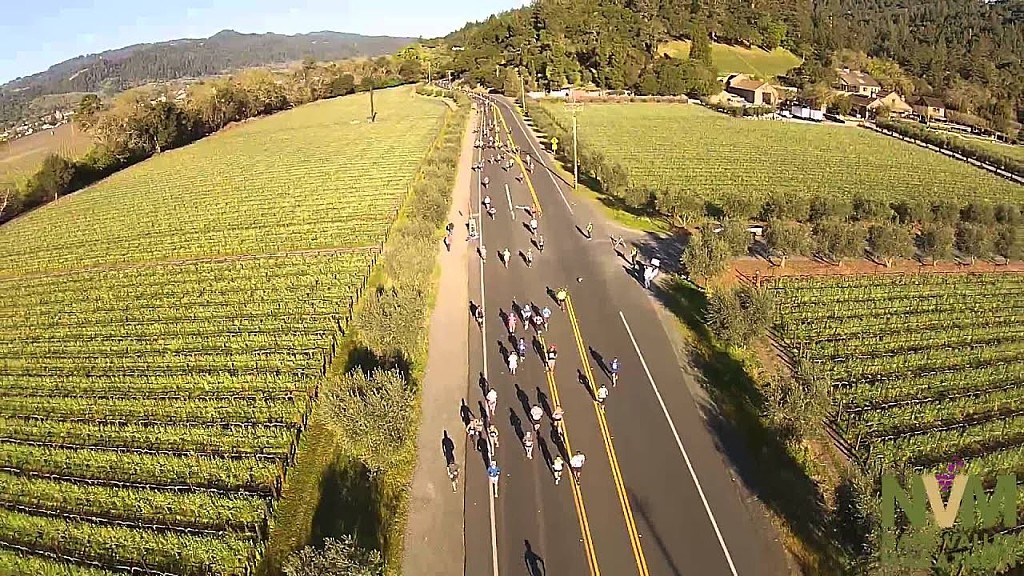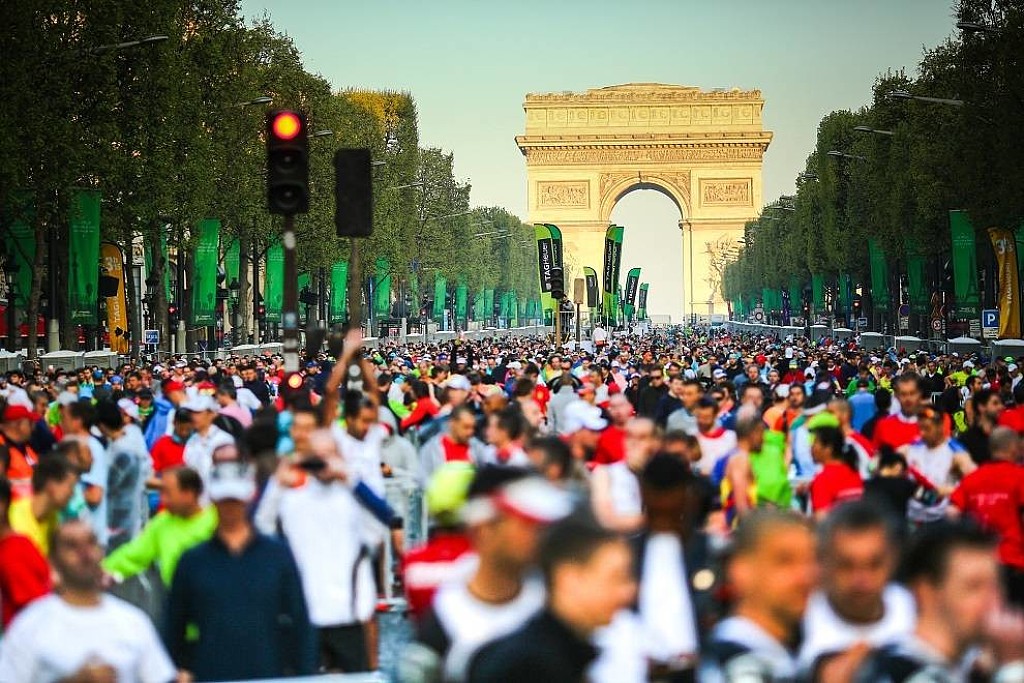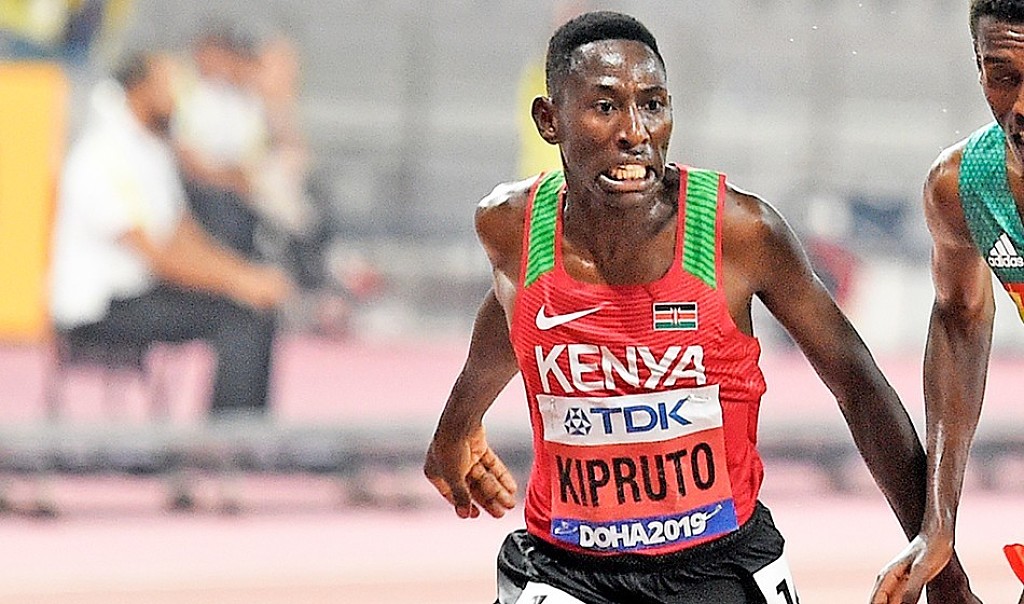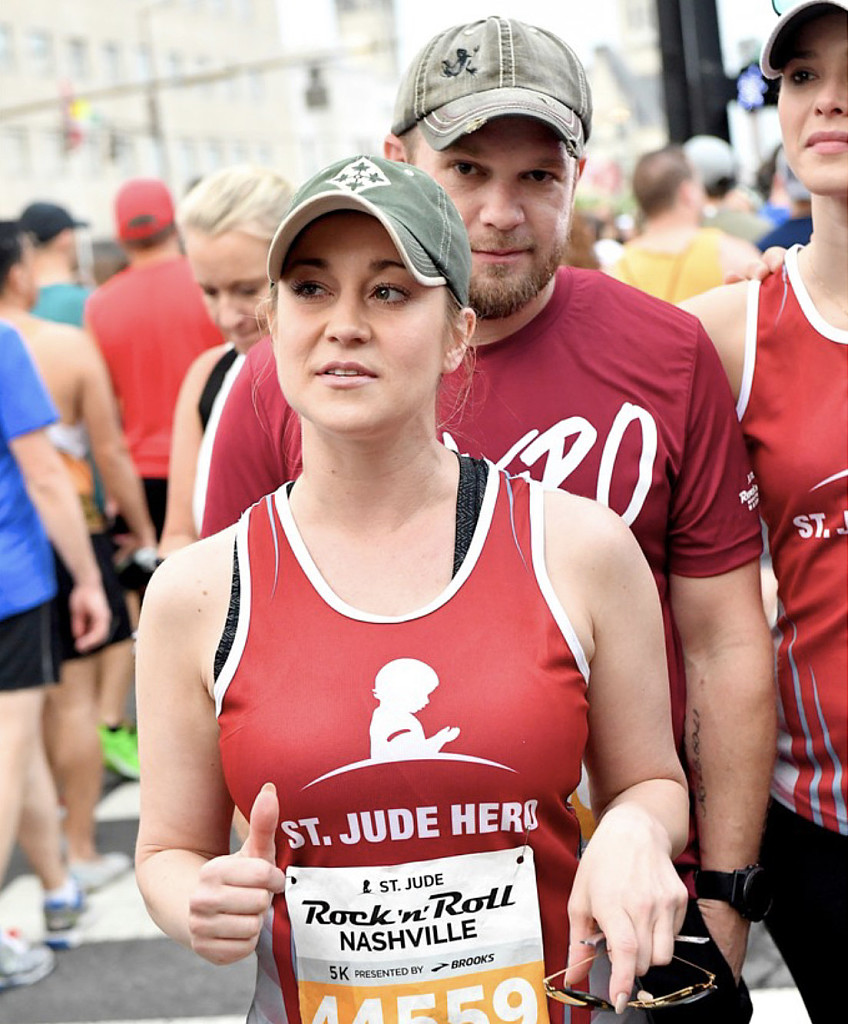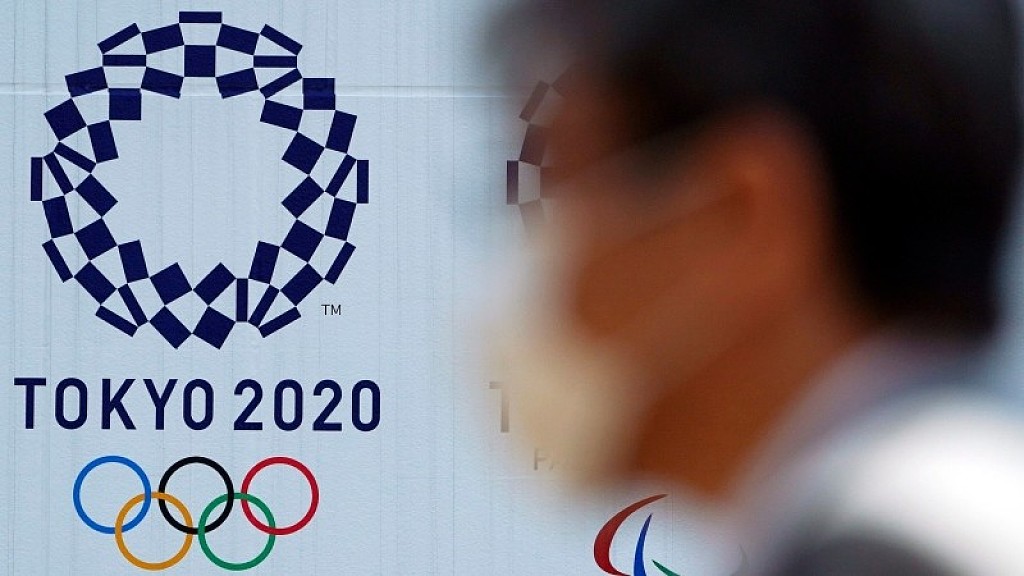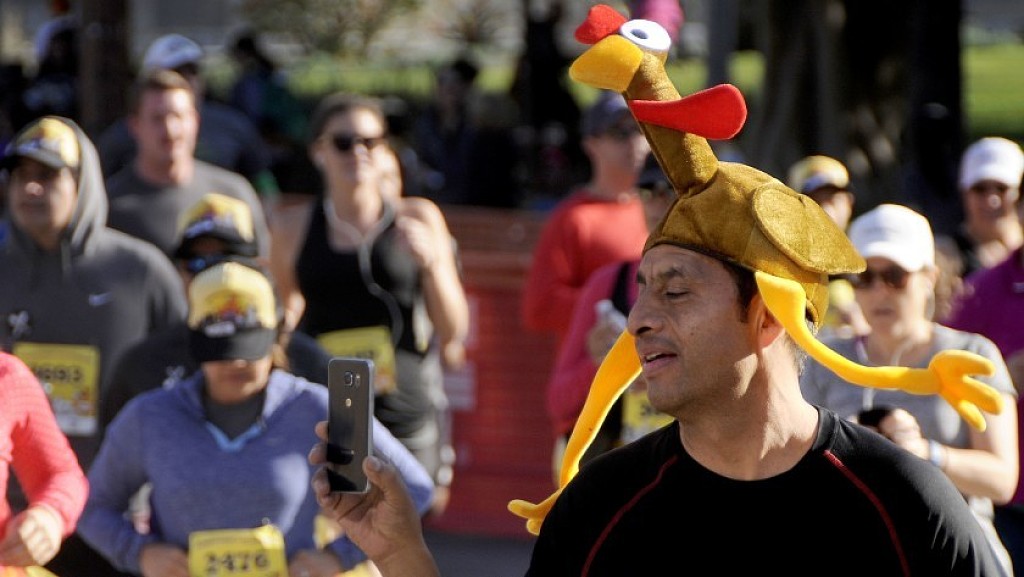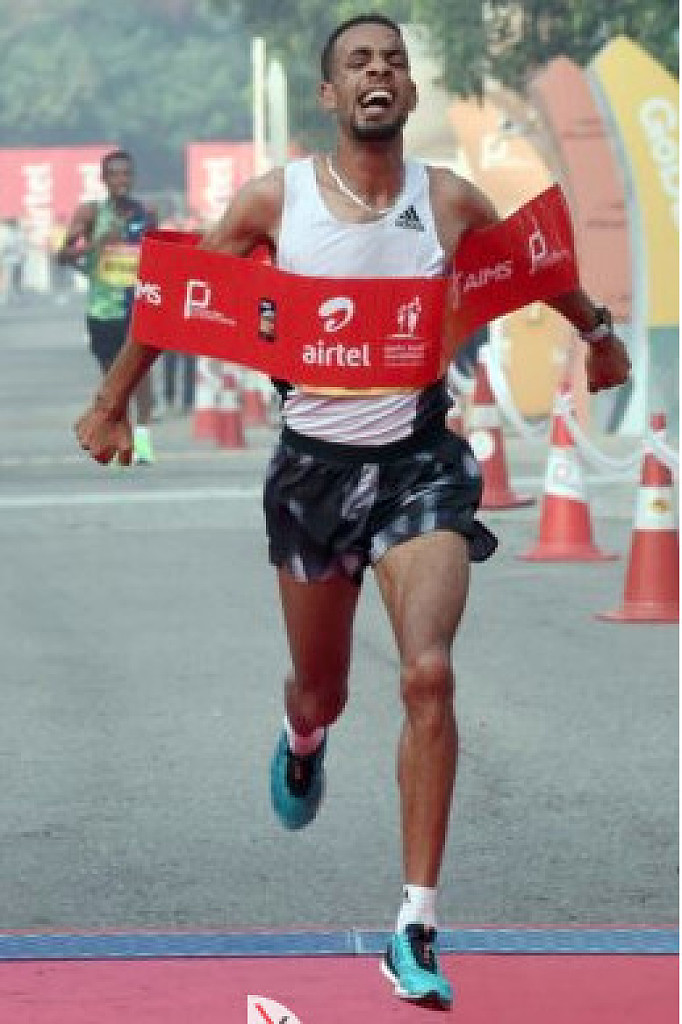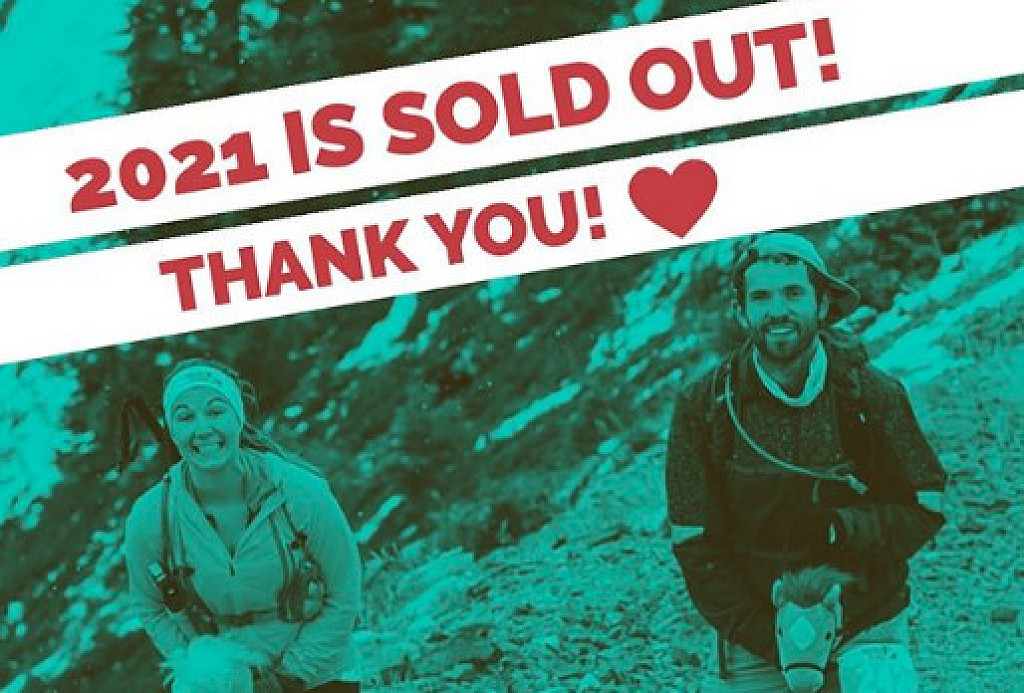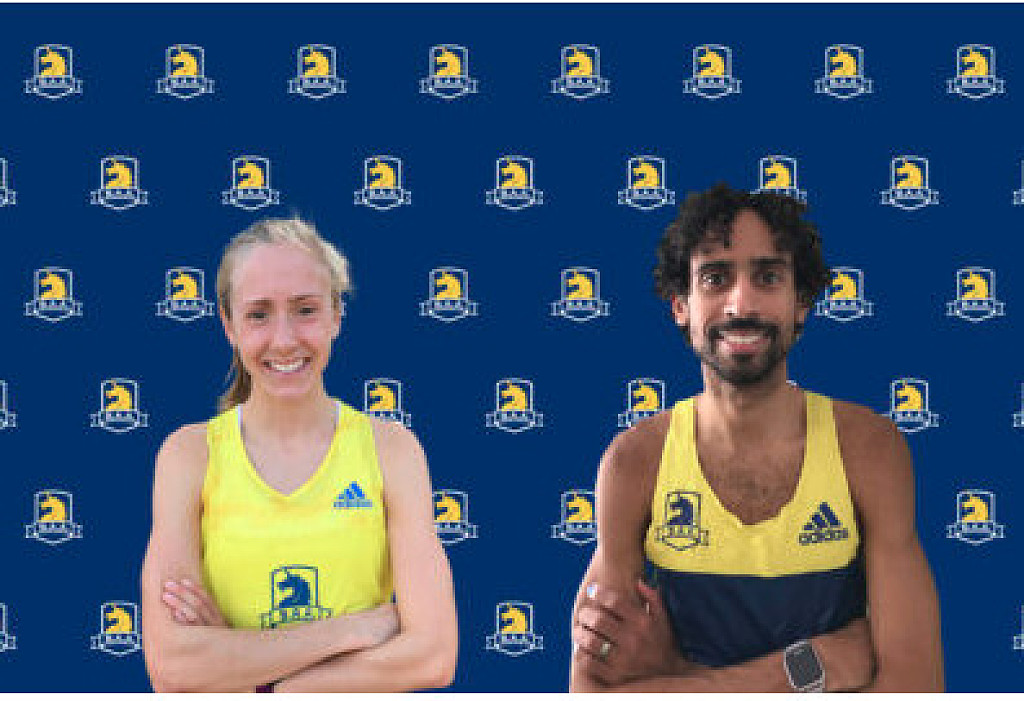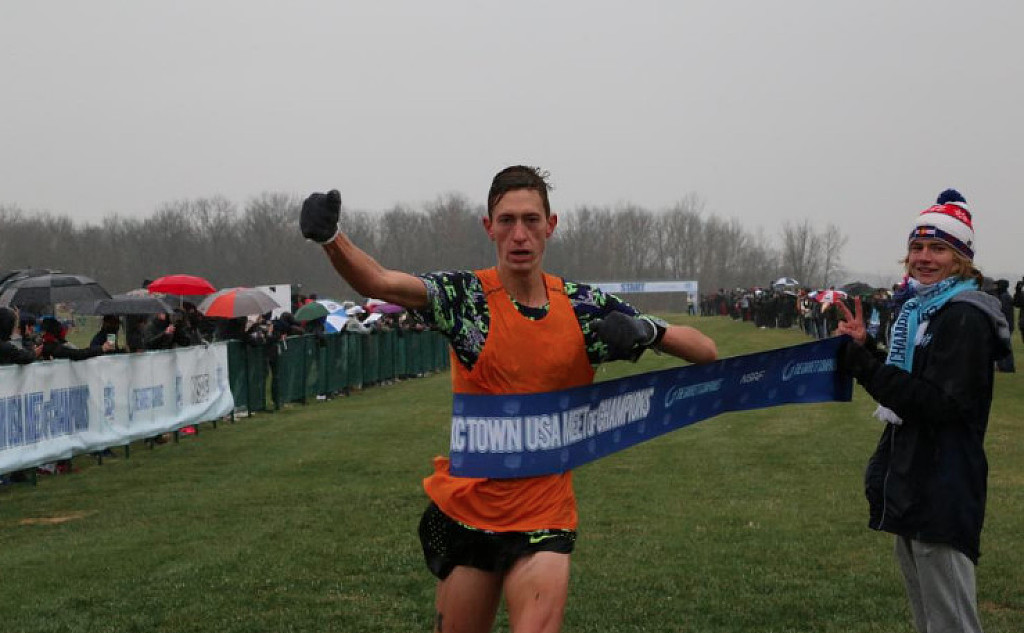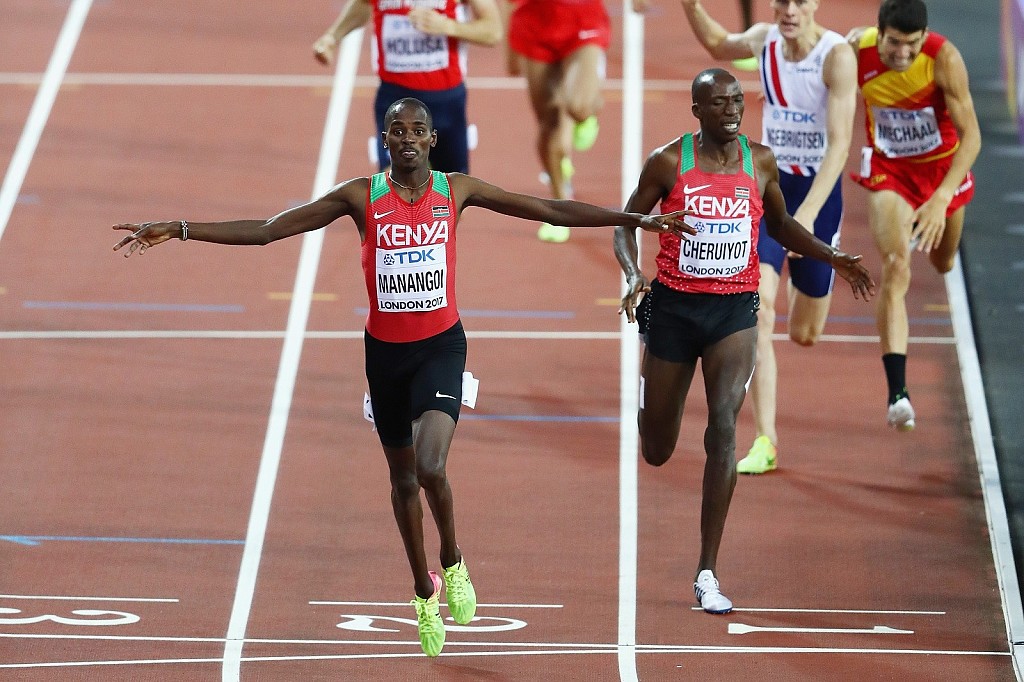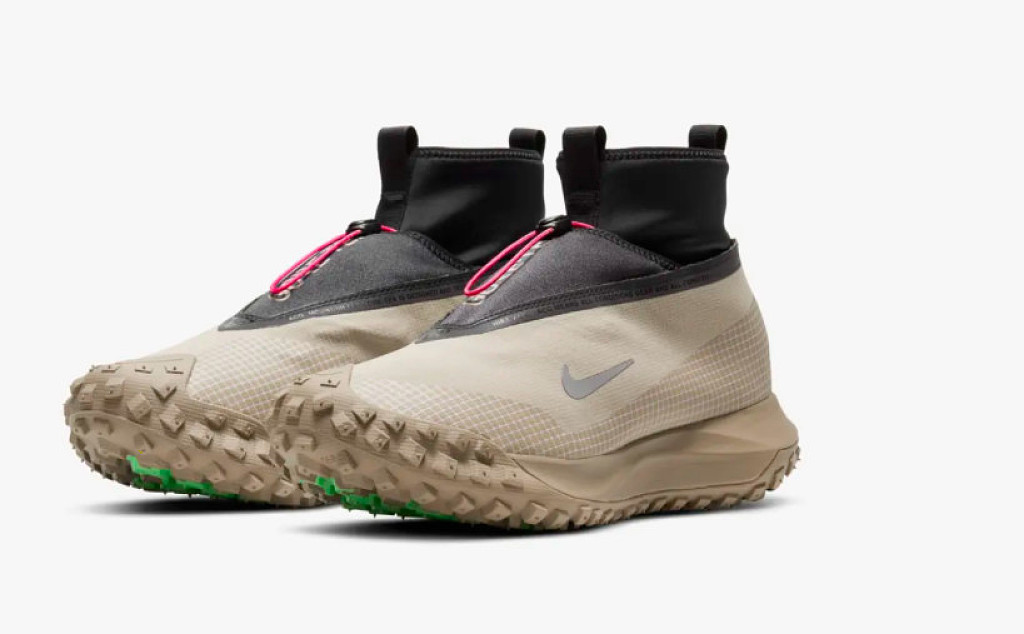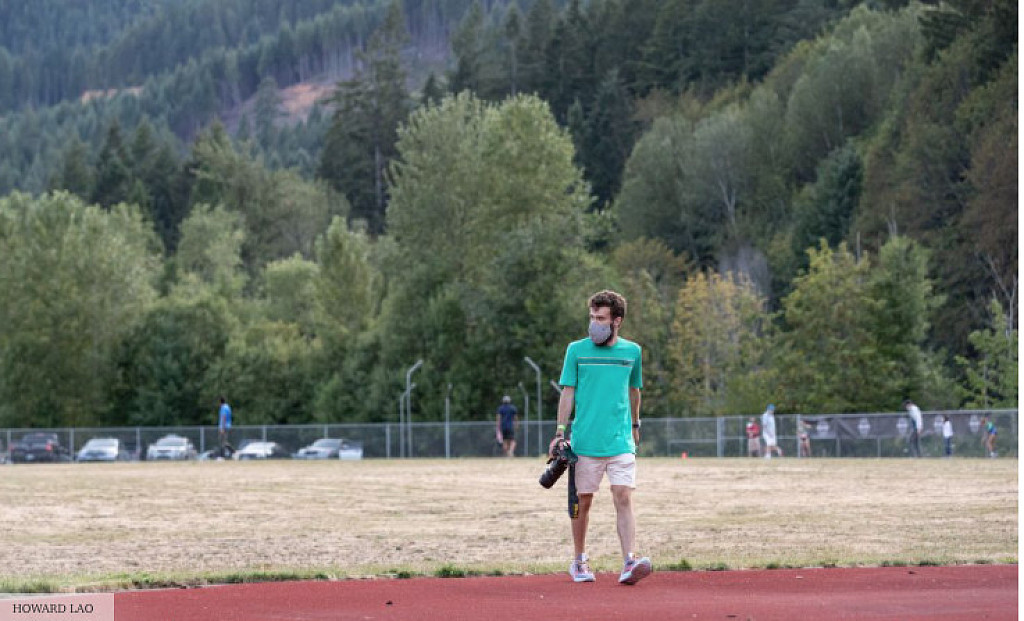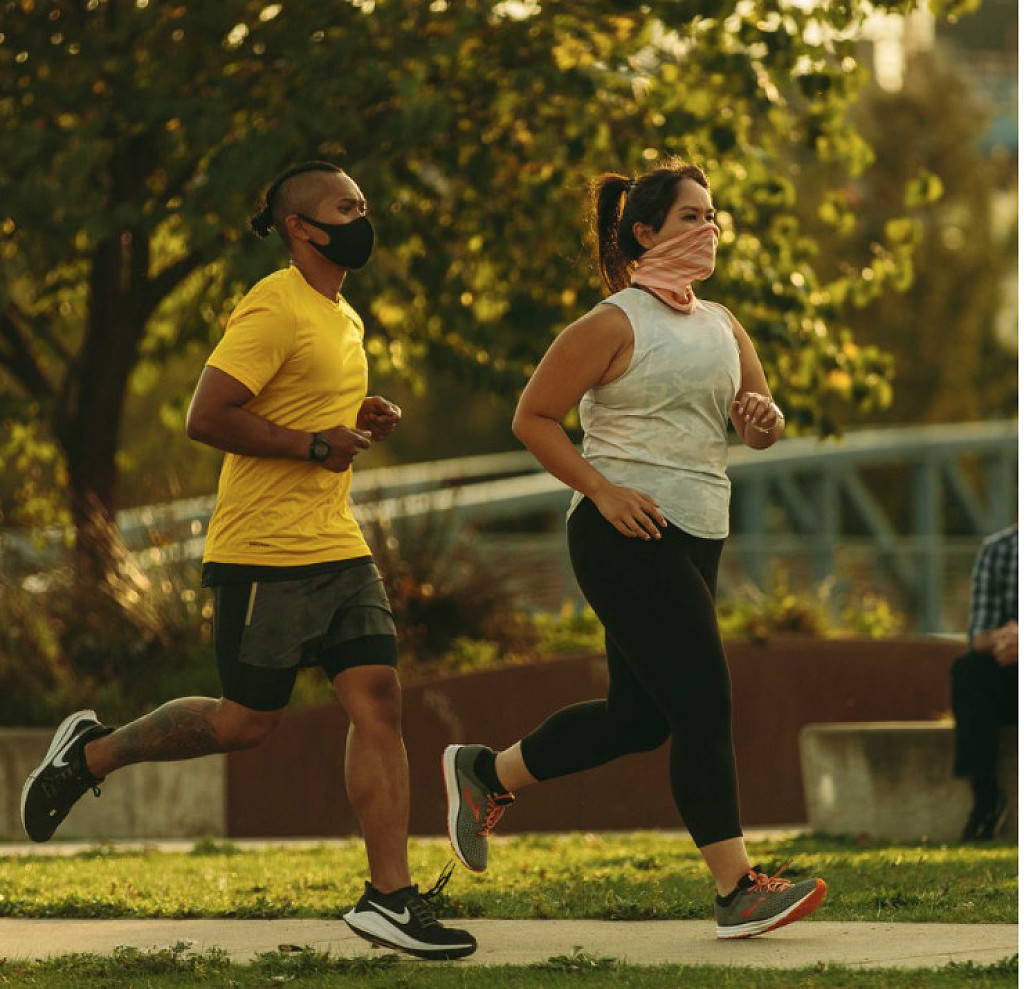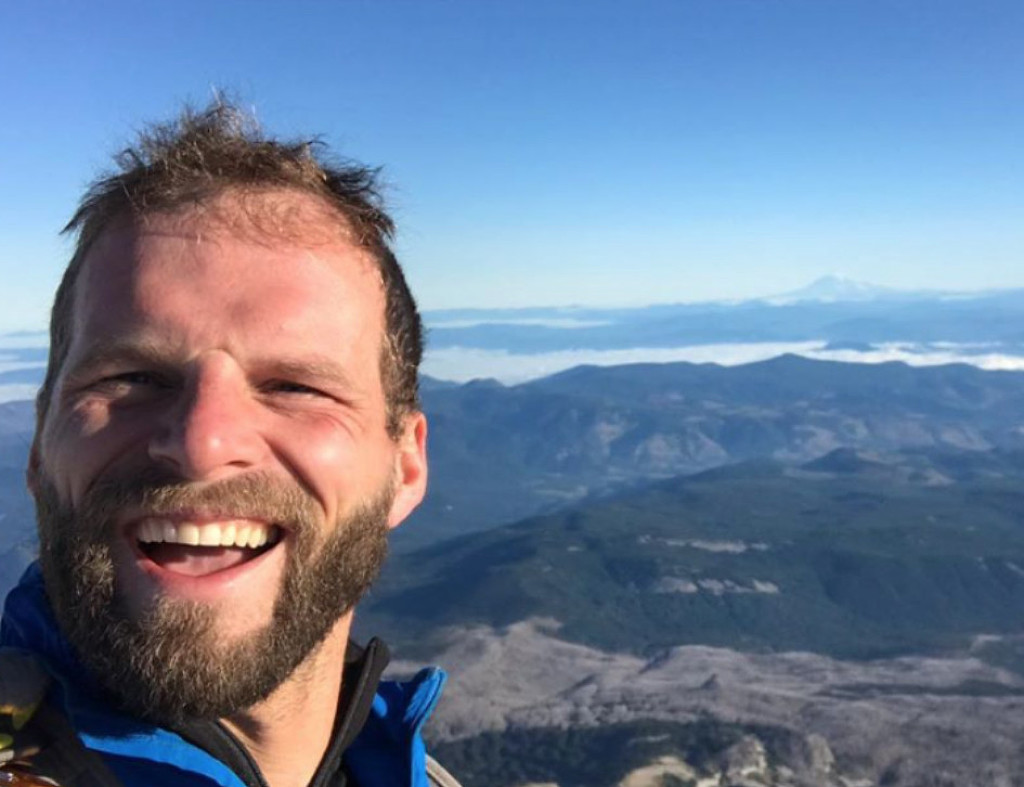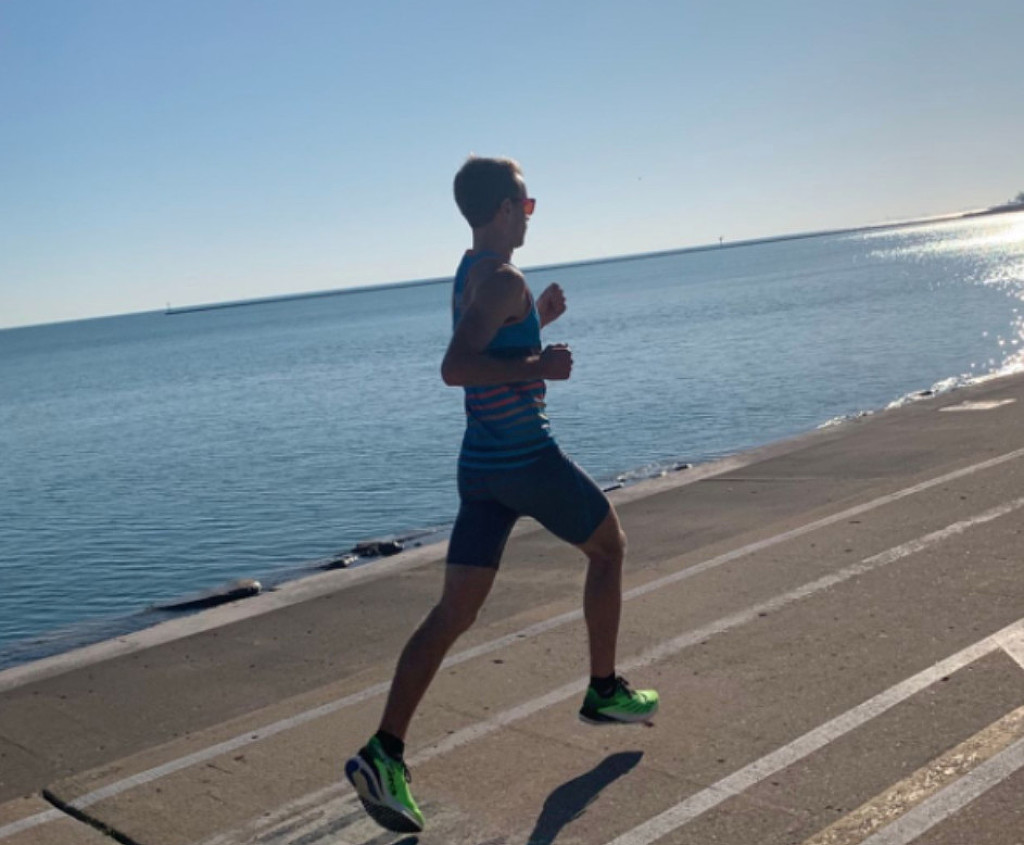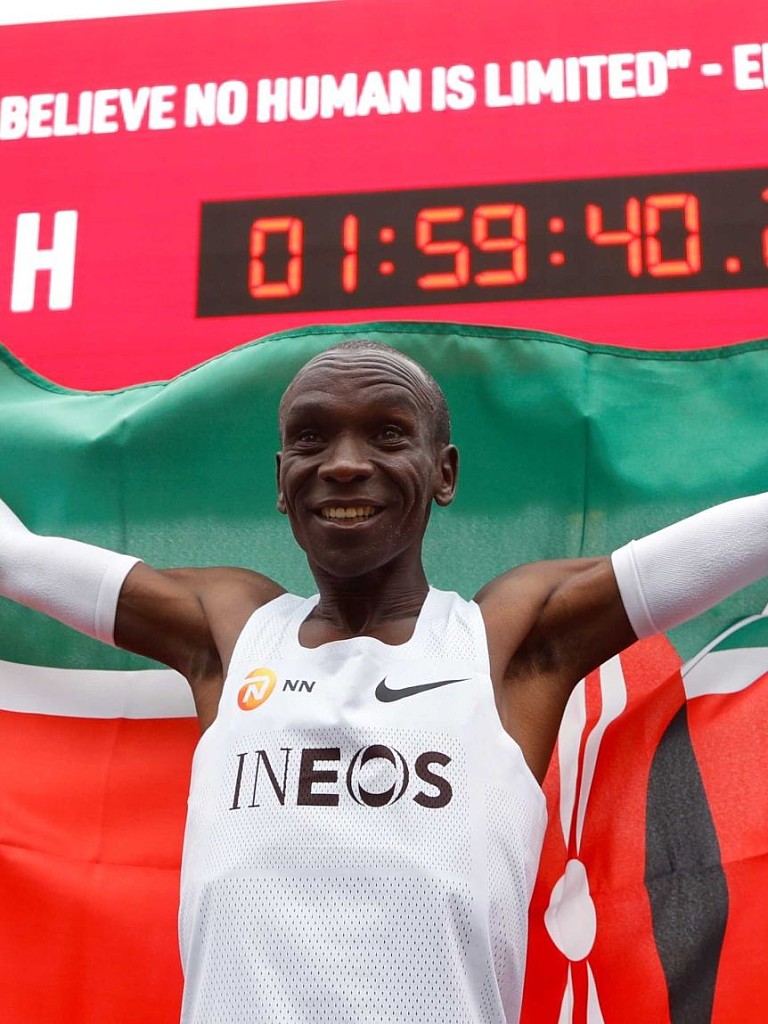Running News Daily
Running News Daily is edited by Bob Anderson. Send your news items to bob@mybestruns.com Advertising opportunities available. Train the Kenyan Way at KATA Kenya and Portugal owned and operated by Bob Anderson. Be sure to catch our movie A Long Run the movie KATA Running Camps and KATA Potato Farms - 31 now open in Kenya! https://kata.ke/
Index to Daily Posts · Sign Up For Updates · Run The World Feed
Finalists for Female Athlete of the Year 2020
With just 11 days to go until the World Athletics Awards 2020, the names of the five finalists for the Female World Athlete of the Year 2020 have been confirmed.
In spite of the many challenges presented by the global Covid-19 pandemic this year, the five athletes, who represent five countries and four area associations, have excelled, producing brilliant performances across a range of athletics disciplines in 2020.
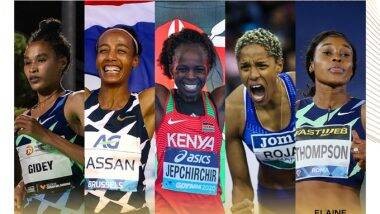
The finalists are (in alphabetical order):
Letesenbet Gidey, Ethiopia- set a world record of 14:06.62 over 5000m- was second in the 5000m at the Wanda Diamond League meeting in Monaco
Sifan Hassan, Netherlands- set a world record of 18,930m in the one hour run- set a European record of 29:36.67 over 10,000m, the fourth fastest performance in history
Peres Jepchirchir, Kenya- won the world half marathon title- twice broke the world half marathon record for a women-only race (1:05:34 and 1:05:16)
Yulimar Rojas, Venezuela- undefeated in four triple jump competitions indoors and outdoors- broke the world indoor triple jump record with 15.43m
Elaine Thompson-Herah, Jamaica- undefeated in seven 100m races- ran world-leading 10.85 over 100m
The male and female World Athletes of the Year will be announced live at the World Athletics Awards 2020 to be staged as a virtual event on Saturday 5 December and streamed live on the World Athletics YouTube channel, its Facebook page and via Twitter.
(11/24/2020) ⚡AMPby World Athletics
Ethiopia’s Andamlak Belihu eyeing course record at 2020 Airtel Delhi Half Marathon
This year has been tough for all of us, especially athletes since we have not been able to train at our optimum level due to the circumstances.
However, it's always exciting to come back to the Airtel Delhi Half Marathon and I have trained to the fullest in the last one month for the race.
The World Half Marathon Championships in October was really difficult for me. With the training areas closed for a considerable amount of time, it was hard for me to get the desired result.
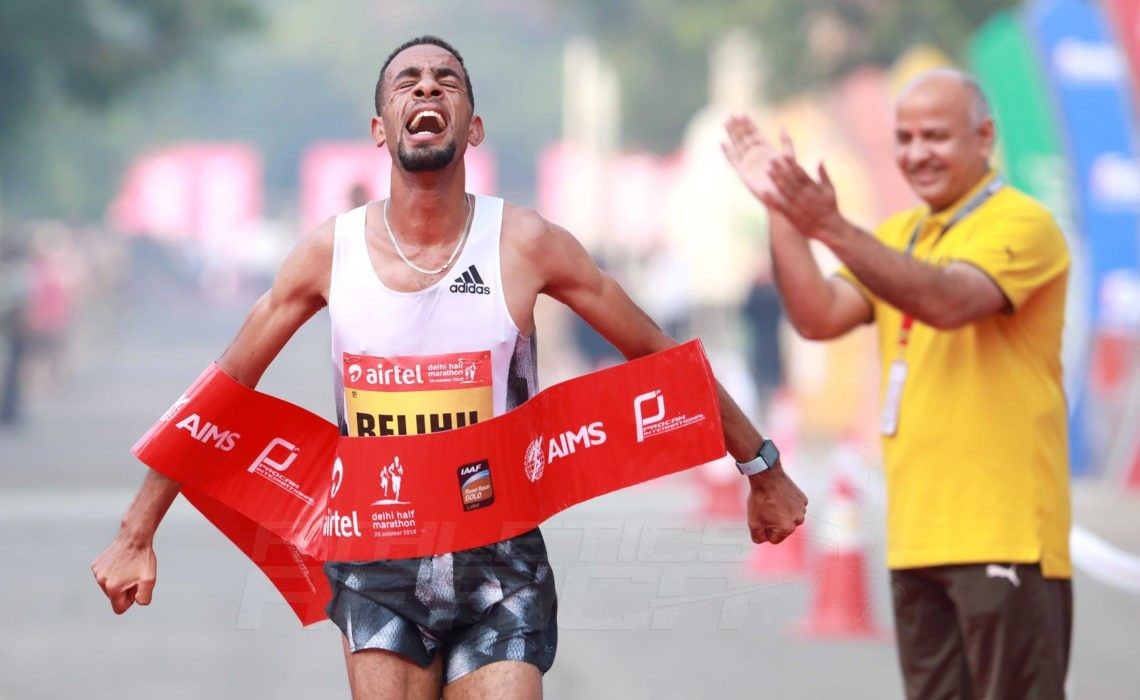
But my fitness levels are really good and I am feeling confident. The feeling about myself is brilliant at the moment and I am coming not just to win, but to aim for the course record timing as well.
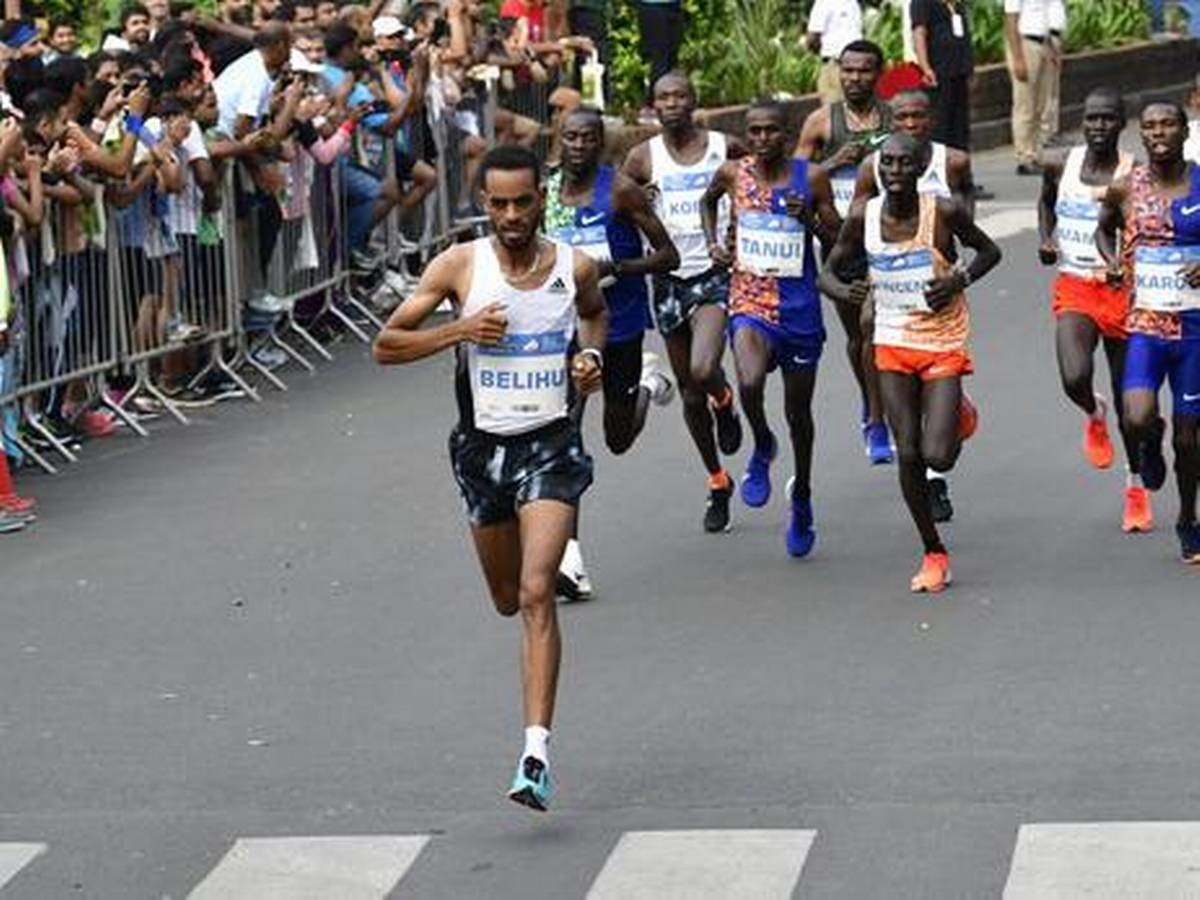
The Airtel Delhi Half Marathon is the most prestigious half marathon for a reason. The course is exquisite and India is a beautiful country with a rich culture much like Ethiopia.
I am really looking forward to a cracking race and I am very confident about improving my timing this year.
All the athletes in the race are going to bring out their A-game and that's what will make the contest all the more exciting.
It's going to be a bit different this time though, as the people of Delhi will not be able to cheer us on. However, safety ensured for everyone involved in the event is important.
Extremely grateful to know all teams involved have worked hard to detail out various Covid-secure protocols and better running conditions have been given topmost priority.
(11/24/2020) ⚡AMPby Andamlak Belihu
Vedanta Delhi Half Marathon
The Airtel Delhi Half Marathon is a haven for runners, creating an experience, that our citizens had never envisaged. The streets of Delhi converted to a world-class running track. Clean, sanitized road for 21.09 kms, exhaustive medical support system on the route, timing chip for runners, qualified personnel to ensure smooth conduct of the event across departments. The race...
more...World 1,500m champion Timothy Cheruiyot has missed out on the World Athletics Male Athlete of the Year Award
Cheruiyot was Kenya's sole flagbearer for the coveted award. World Athletics has released the final five nominees for the award with the winner expected to be announced virtually on December 5.
Uganda's world record holder in the 5,000m and 10,000m Joshua Cheptegei is the favorite for the gong. He broke world records at 5,000m (12:35.36), 10,000m (26:11.00) and 5km on the roads (12:51) and was fourth at the World Athletics Half Marathon Championships on his debut over the distance.
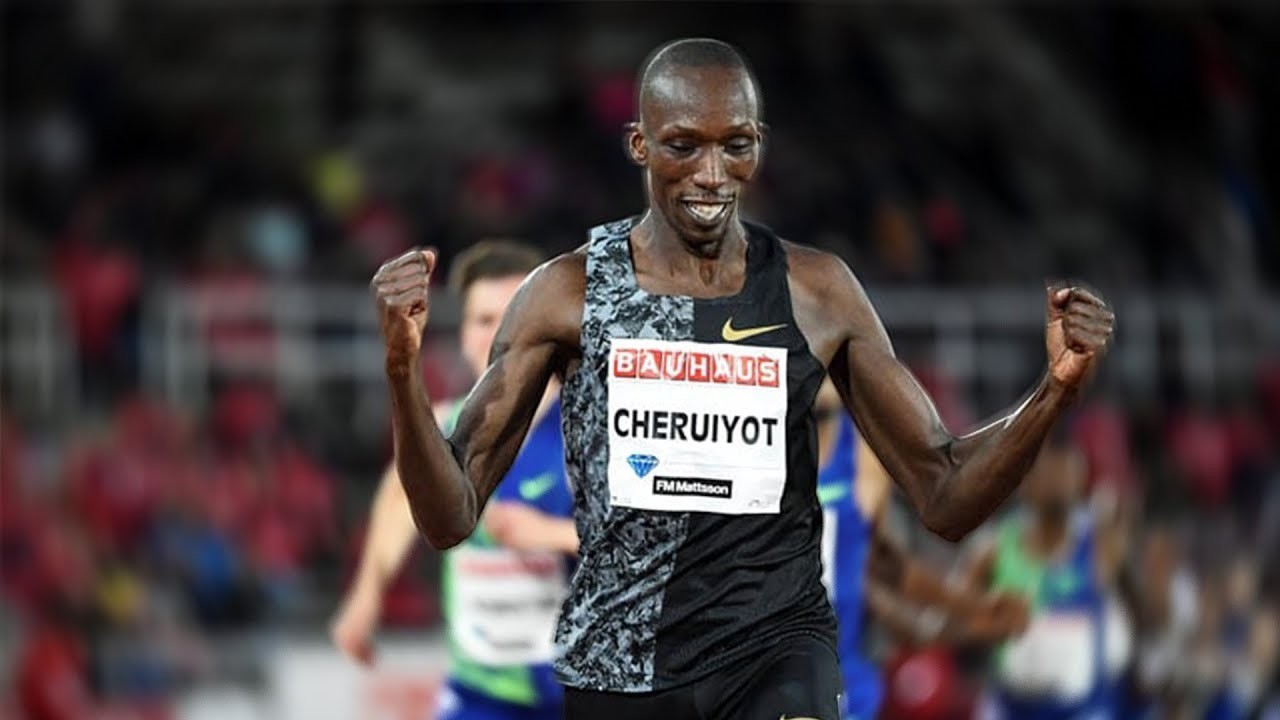
Two-time 400m hurdles world champion Karsten Warholm of Norway makes the cut for the award after a stellar season on the track.
He ran a world-leading 46.87 in the 400m hurdles, the second-fastest performance in history, and was undefeated in nine 400m/400m hurdles races and set a world best of 33.78 in 300m hurdles
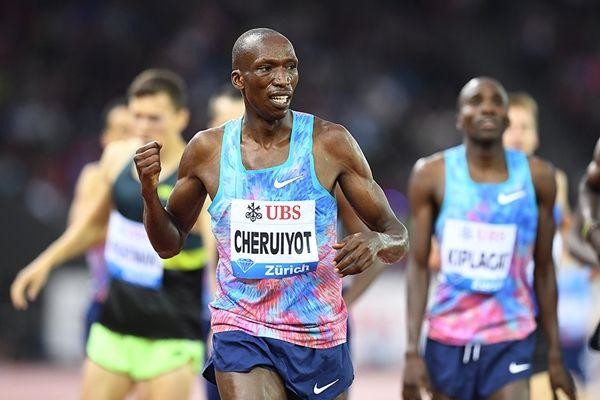
Former world javelin champion Johannes Vetter, of Germany, is in the mix after winning eight of his nine javelin competitions and throwing world-leading 97.76m, the second farthest throw in history
World Pole vault record holder Mondo Duplantis of Sweden makes the shortlist. He broke the world record in the pole vault twice (6.17m and 6.18m) and produced the highest outdoor vault of all time (6.15m) and was undefeated in 16 competitions.
USA'S Ryan Crouser will be e hoping to break the trend and win the award. He was undefeated in 10 shot put competitions and his 22.91m world-leading performance moved him to equal third on the world all-time list
A three-way voting process determined the finalists. The World Athletics Council and the World Athletics Family cast their votes by email, while fans voted online via our social media platforms.
The Council’s vote counted for 50 per cent of the result, while the Athletics Family’s votes and the public votes each counted for 25 per cent of the final result.
(11/24/2020) ⚡AMPby World Athletics
Sebastian Coe has urged the Government to act now and get children back playing sport
If schools can open then why can't clubs? Sport can save our children and Prime Minister Boris Johnson must act now!
The Covid-19 pandemic is a watershed moment in our times. The pandemic has not only upended the way we live our daily lives but it has also become a catalyst that has led us to prioritise health and safety above all else.
In the process, unprecedented measures have been implemented and England is now in the throes of another nationwide lockdown, with families again forced to keep their distance, households prevented from mixing, and people unable to work.
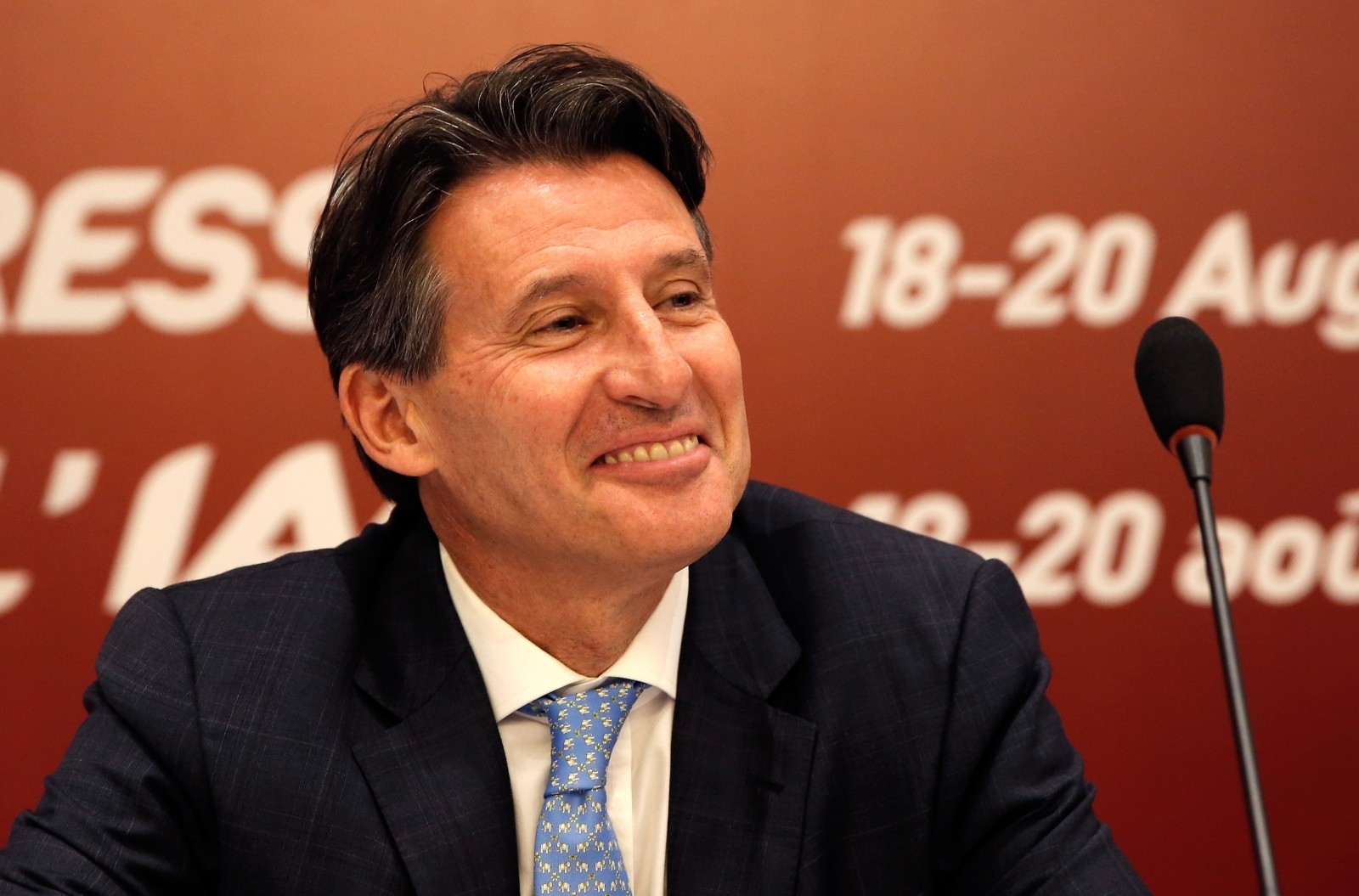
While the restrictions are intended to curb the spread of the virus, they are also producing dire and unintended consequences.
Perhaps we all assumed that everyone across the nation would face the same hardships during the lockdown. However, many didn’t fully appreciate that it would end up hitting hard some of our poorest communities, particularly children living in poverty.
A study by UCL found that a fifth of schoolchildren had done little to no home learning over the summer term, perhaps because of a lack of access to the internet, laptops or computers at home.
What has now begun to emerge, is a mental health epidemic among our children, which we can’t afford to ignore. The NSPCC recently revealed that calls to ChildLine reached nearly 43,000 between March and October, with counsellors supporting children who were feeling isolated, anxious and insecure after being cut off from their networks of social support such as friends and teachers.
It is these sobering statistics that should spur us into action. We, and in particular the Government, have an opportunity to fix the problem before it becomes overwhelming. We must find ways to balance the restrictions with solutions that can help preserve the mental health and wellbeing of our youngest and most vulnerable.
Sport is an obvious solution. Ensuring children receive regular physical education, structured exercise and a means to run around and play during the lockdown can lead to unquestioned mental health benefits; improving self-confidence, nurturing positive relationships among peers, bolstering their mood, fostering social cohesion in communities and of course staying fit and healthy.
I’ve said it before. Sport is the hidden social worker in many of our neighbourhoods. Disadvantaged families often rely on support that sport gives them, whether it’s in the form of an after-school club, or a charity that caters for the young in the community.
Unfortunately, current Government restrictions have meant that many charities and community clubs have been restricted or prevented from providing that support to the people that need it most at a time when they need it the most.
(11/24/2020) ⚡AMPBernard Lagat Completes Interim Coaching Staff at Arizona Cross Country
Arizona cross country has completed its staff for the 2020-21 season as the program will be led by the trio of Dave Murray, Bernard Lagat and Doug Keen.
Lagat, one of the most decorated distance runners of all time, has been a volunteer assistant coach at Arizona for 15 years. The 11-time All-American and two-time medalist at the Olympic Games is considered an American distance running legend as he has competed in five Olympic Games and qualified for the 2020 Olympics earlier this year.
"I am honored to join Fred Harvey and be a part of the Arizona cross country and track & field program," Lagat said. "Having been a volunteer assistant coach for the last 15 years, I have gotten to know many of the great student-athletes that continue to proudly represent the University of Arizona.
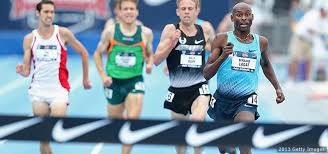
I look forward to passing on the knowledge and experiences that I have gained as a student-athlete and professional. It is a privilege for me to follow in coach Li's footsteps and lead the next generation of Wildcats to success on and off the track."
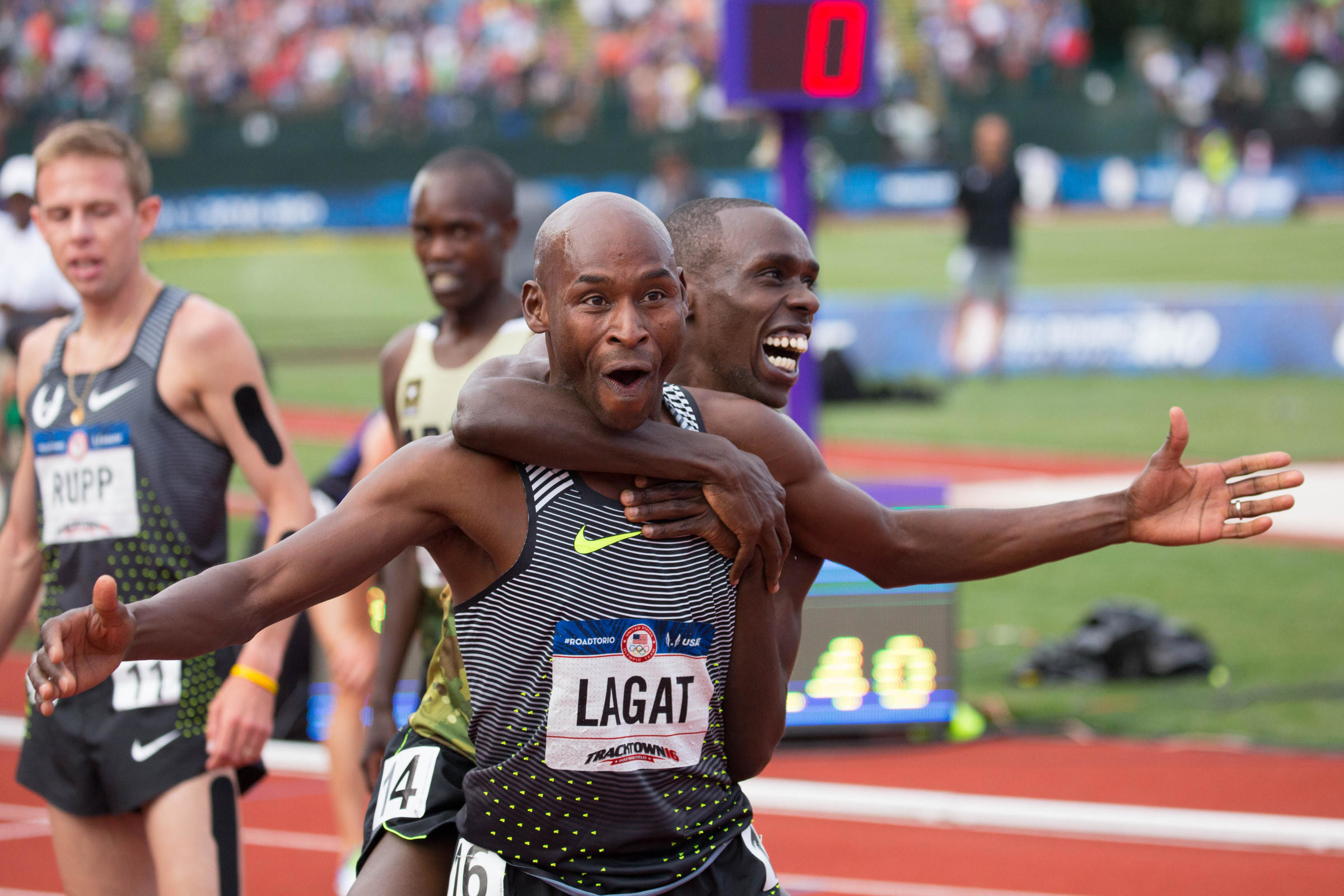
Lagat won a silver medal in the 1500m at the 2004 Olympics and won a bronze medal in the 1500m at the 2000 Olympics while finishing in fourth in the 5K at the 2012 Olympics and fifth in the 5K at the 2016 Olympics. He has also won two gold medals, three silver medals and one bronze medal at the World Championships.
Off the track, Lagat has served as a chair member of the International Amateur Athletic Federation (IAAF) and the United States Track & Field Advisory Boards.
"Coach Dave Murray will be a great mentor to not only the student-athletes, but the coaches as well," said director of track and field & cross country Fred Harvey. "His knowledge of Arizona Track & Field and Cross Country is priceless. Bernard Lagat is one of the world's all-time great distance runners and will bring a level of comfort and confidence to our student-athletes since he has been in the program for over 15 years and understands their training methodology. Doug Keen brings a level of excitement as well as an understanding of building cross country teams.
His ability to structure four Arizona High School State Cross Country Championship teams will be instrumental as we prepare for an upcoming spring cross country and track & field season."
(11/23/2020) ⚡AMPby Arizona Athletics
British marathon trials for Tokyo 2020 to be held at Kew Gardens
The British Olympic marathon trials for Tokyo 2020 are scheduled to take place at Kew Gardens on March 26 next year.
British athletes usually fight for their spot on the GB team at the London Marathon, but after the 2021 event was postponed due to the coronavirus pandemic, British Athletics have decided to stage a new event.
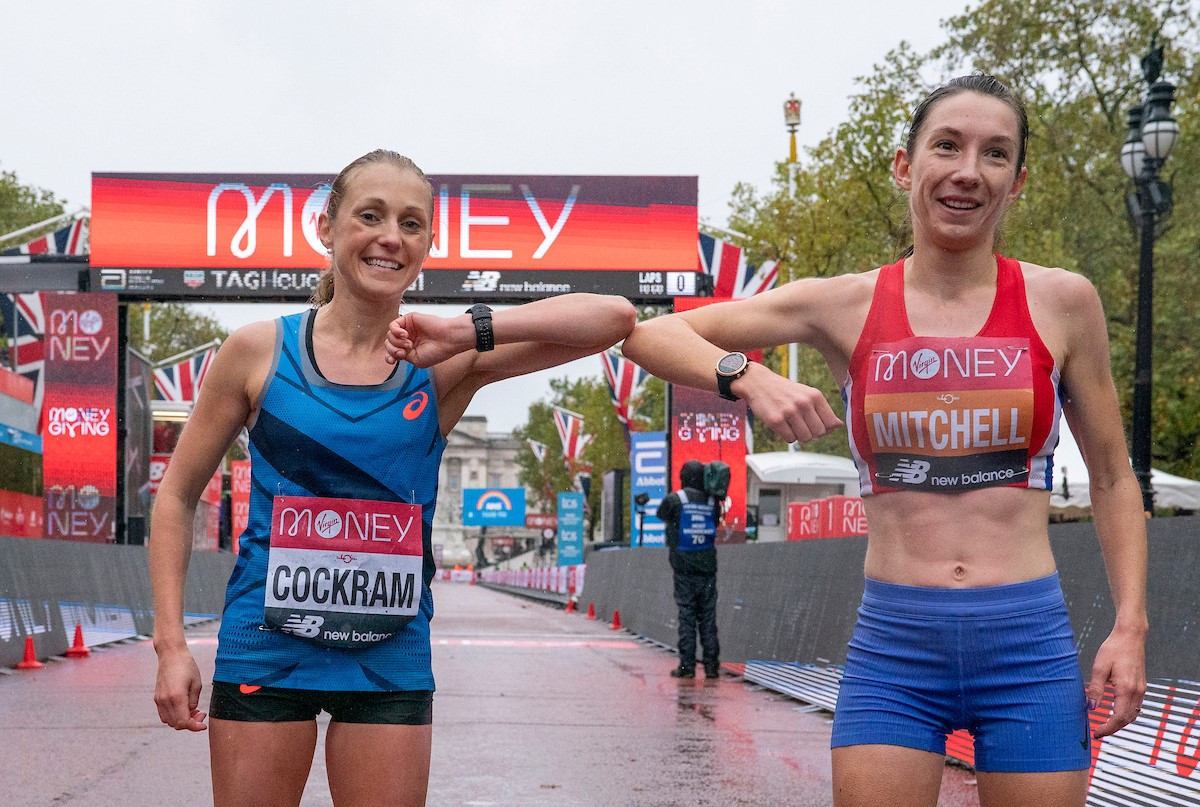
The Olympic qualifying marks are 2:29:30 for the women and 2:11:30 for the men.
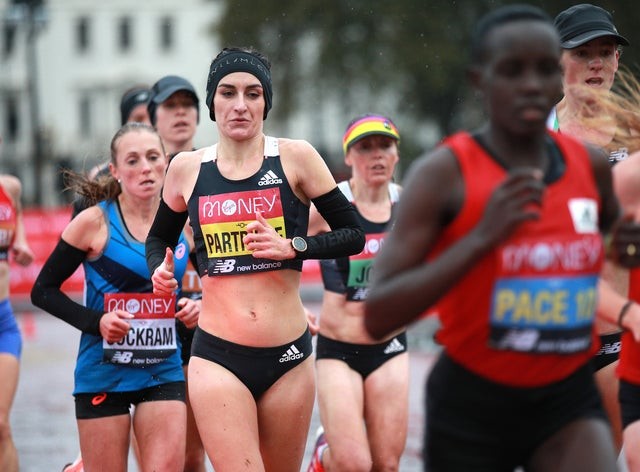
The new marathon trial event will also act as the British Marathon Championships for 2021.
Major events director of UK Athletics said: "We're delighted to confirm the British Championships incorporating the Olympic Marathon Trial race is to be held at Kew Gardens.
“It is an iconic venue and lends itself well to a marathon course over multiple laps.”
The Tokyo 2020 Olympic Games are due to take place on July 23-August 8.
(11/23/2020) ⚡AMP
by Alicia Turner
Tokyo 2020 Olympic Games
Fifty-six years after having organized the Olympic Games, the Japanese capital will be hosting a Summer edition for the second time, originally scheduled from July 24 to August 9, 2020, the games were postponed due to coronavirus outbreak, the postponed Tokyo Olympics will be held from July 23 to August 8 in 2021, according to the International Olympic Committee decision. ...
more...Strict Covid protocols will be included in 2020 Delhi half marathon
The Delhi Half Marathon is going ahead as per schedule on November 29 with a star-studded field of foreign athletes as well as a strong Indian line-up despite the rising number of coronavirus cases in the national capital. The organizers have planned a slew of safety measures to ensure safety for all.
Significantly, the 15 elite women and 18 men will be applying online for an exemption from quarantine before arriving in the country. That procedure can be initiated only post a negative RT-PCR test result obtained not earlier than 72 hours before traveling to India. All participants will also have to fill in and submit a health declaration form. All 33 were self isolating for 15 days prior to their flight as instructed by the race organizers.
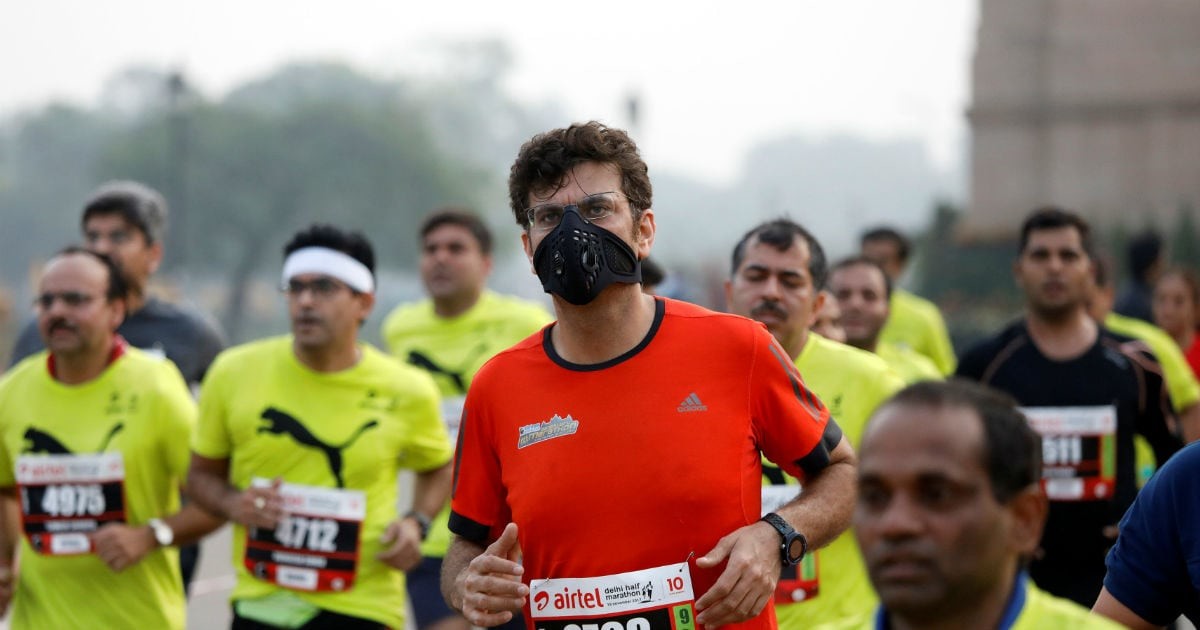
Once the athletes start arriving in Delhi on November 23, they will be stationed at an upscale hotel which will be a bio-secure zone. They will also be issued with a list of SOPs. These include restricted movement access and social distancing protocols. All the racers including Indians will be subject to two further RT-PCR tests prior to race day and only if they test negative will they be allowed to run.
Apart from the COVID-19 threat, Delhi is also reeling under poor air quality conditions. To tackle this, low power-pulsed Wifi waves will be used to clear air pollutants and ecologically safe reagents will be sprayed at strategic points.
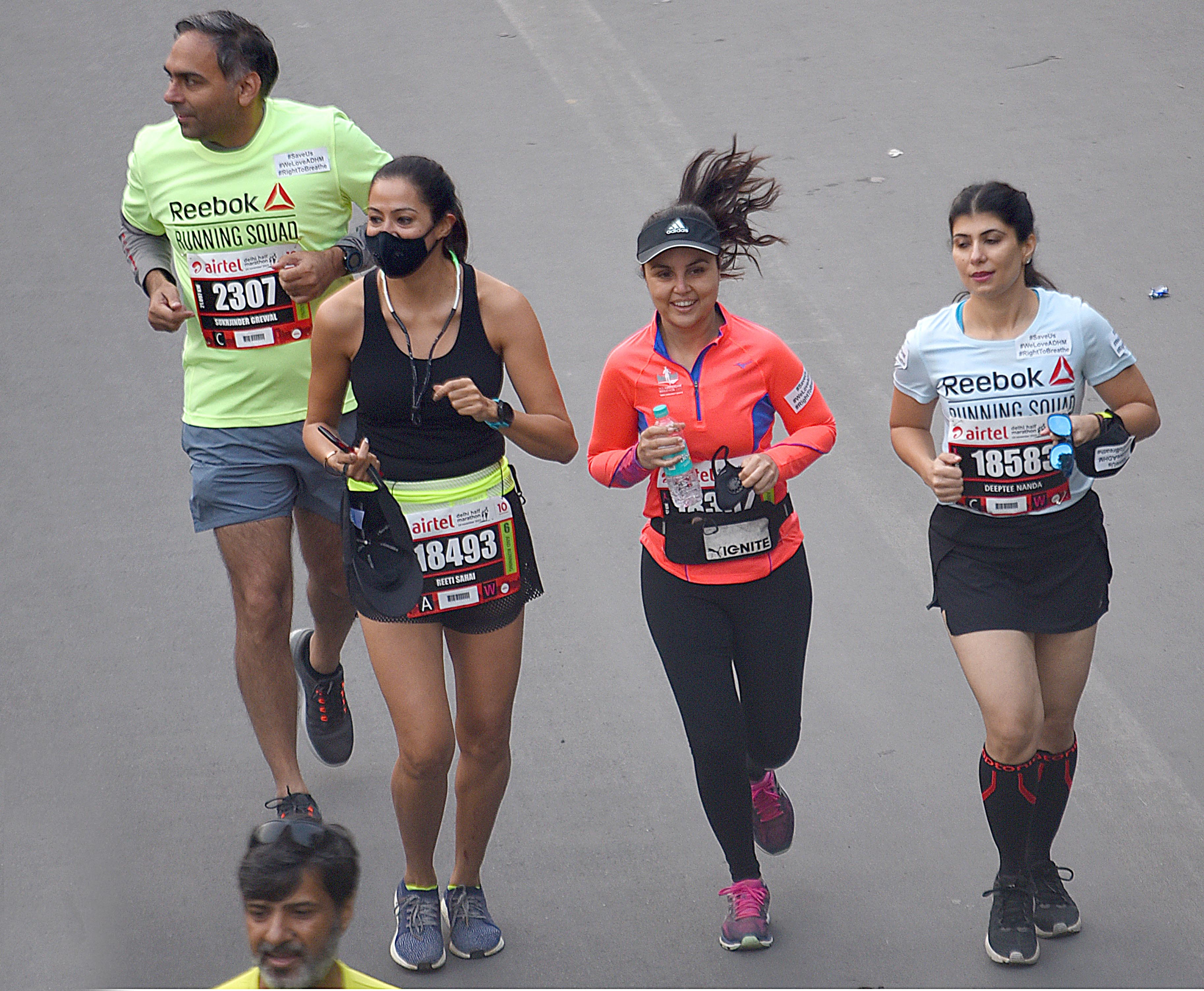
Star-studded fieldThe 16th edition of the World Athletics Gold Label Race will see one of the strongest line-ups in its history. Marathon world record holder Brigid Kosgei and Ababel Yeshaneh, World Half Marathon record holder will join the fray apart from defending champions Tsehay Gemechu and Andamlak Belihu.
Among Indians, Avinash Sable, Srinu Bugatha and Abhishek Pal will be in focus among the men while Parul Chaudhary, will lead the Indian women’s category along with Sanjivani Jadhav, Monika Athare and Chinta Yadav.
“It is a star-studded field and most athletes have not competed in a long time and it will be a great opportunity to test ourselves against the world’s elite athletes in our own backyard,” Avinash, who has already qualified for the Tokyo Olympics in 2021, opined.
Govt to launch fitness app in Jan: Sports secyNew Delhi: Sports secretary Ravi Mittal revealed on Saturday that the government is planning to launch the Fit India app next year which would help users evaluate and improve their fitness levels. “We are developing the Fit India app next year. We will be launching this app sometime in January. It will be like other health apps but the main thing will be that everyone will be able to evaluate their fitness,” Mittal said during Airtel Delhi Half Marathon press conference. The secretary also praised the race organizers and extended his best wishes. “Events like this will help us to understand that things are slowly getting normal. So these events will help in strengthening our mind. I would like to request Procam to organize more such marathons before the Olympics, so we can strengthen the mind.”
(11/23/2020) ⚡AMPby Ayantan Chowdhury
Vedanta Delhi Half Marathon
The Airtel Delhi Half Marathon is a haven for runners, creating an experience, that our citizens had never envisaged. The streets of Delhi converted to a world-class running track. Clean, sanitized road for 21.09 kms, exhaustive medical support system on the route, timing chip for runners, qualified personnel to ensure smooth conduct of the event across departments. The race...
more...How to spot cheating on Strava
The (intentional and unintentional) cheating runners will see on Strava
As the pandemic continues, and in-person racing remains scarce, Strava has become many runners’ competition outlet. With its challenges, CRs and virtual racing facilitation, the app has millions of members looking to race each other from afar. However, as with all things tech-related, it’s easier to covertly cheat, beg, borrow and steal than it was at in-person events. And while most virtual racing participants are doing it honestly, some are not. Below are some ways to identify accidental and purposeful cheating, and how to flag these activities.
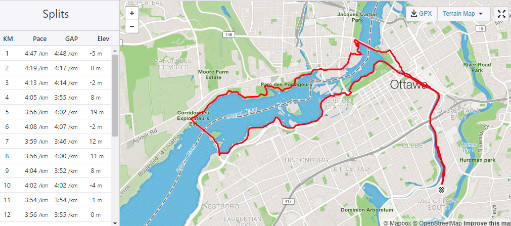
Elapsed time
An egregious amount of elapsed time is a sure-fire way to spot some intentional cheating. When running a virtual race, your watch starts and it doesn’t stop until you’re done the required distance – just like in a real race. You can see elapsed time by clicking on someone’s activity and looking at the stats on the right side, below elevation and calories burned. If someone’s elapsed time is significantly different than their run time in a virtual race, we’ve got a problem.
Bike or car
While an elapsed-time infraction is likely intentional cheating, this one is probably a mistake. If you’ve ever gotten an “Uh Oh” email from Strava, alerting you that your CR has been stolen and their time seems outlandishly fast, it’s because it probably is. If runners forget to pause their watch post-run and hop on their bike or in their car to travel home, they can accidentally record their commute as a world-record paced run and nab several unearned CRs.
A spotty GPS file
Occasionally, GPS signals can act up mid-run, dropping the signal and then picking it up again. Sometimes this slows down a runner’s data, and other times it makes their run look even faster than it actually was. This is totally out of a runner’s control, but nevertheless, bad GPS data happens.
The easiest way to prevent this is by waiting for your signals to load before you start running, preferably while you stand outside. Post-run, look at your map for a “drift” from your path, meaning your GPS route and the actual road or trail don’t line up, or some funny straight lines that suggest your signal was dropped temporarily.
(11/22/2020) ⚡AMPby Running Magazine
Keira D’Amato Is Trying to Break the American 10-Mile Record on Monday. It Could Cost Her Thousands of Dollars.
Since 2011, Keira D’Amato has been part of the race committee for the Credit Union Cherry Blossom Ten Mile Run, the famous Washington, D.C. road race held along the banks of the Potomac River. She’s held a few different roles over the years; recently she’s been responsible for coordinating speakers for clinics at the race expo. This year, Molly Huddle was one of the scheduled speakers, and D’Amato told her she believed Huddle could break the women’s-only American record of 52:12, set by Janet Bawcom at Cherry Blossom in 2014 (coincidentally, D’Amato held the finish line tape for that race). After telling Huddle about the record, D’Amato realized something: I can run that fast too.
Over the following six months, as D’Amato has risen from obscurity to one of the best distance runners in the United States, that statement has become blindingly obvious. After running a personal best 2:34:24 to finish 15th at the Olympic Marathon Trials in February, the 36-year-old has spent the summer and fall demolishing her pbs, from a 15:04 time trial 5,000 on the track in June to a 32:33 10,000 at the MVMNT Race Series in July to a 68:57 to win the Michigan Pro Half Marathon on October 28.
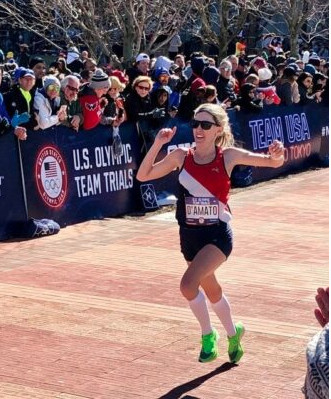
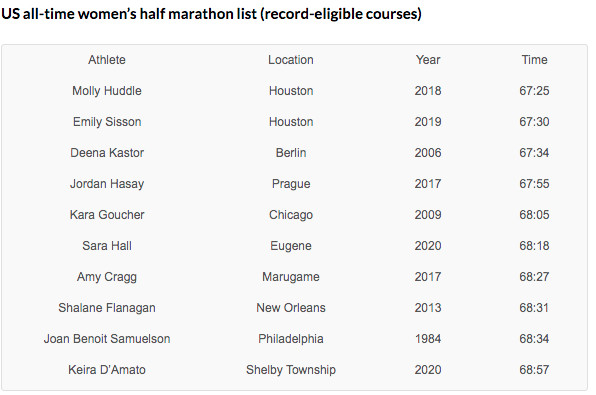
On Monday, D’Amato will try to back up her claim from the spring: she’s going for Bawcom’s record at the Up Dawg Ten Miler, where she’ll face a five-woman professional field that includes Olympian Molly Seidel. And that leads into one of the oddest statistics of a very odd year.
If D’Amato had broken the record at Cherry Blossom in April (which cancelled its 2020 edition due to COVID-19), she would have earned a $10,000 bonus.
If D’Amato breaks the record on Monday — or even if she doesn’t — she could end up out around $8,000.
That’s because D’Amato is covering most of the costs of the Up Dawg Ten Miler, which will take place in an undisclosed location in the DC area. Even though D’Amato is staging a race for five athletes rather than Cherry Blossom’s typical 17,000, several key expenses remain: getting the course USATF-certified and measured, securing park permits and road closures. It can add up quickly.
And then there is drug testing. USATF rules state drug testing is only required to ratify American records in events for which World Athletics recognizes an official world record. Since 10 miles is a “world best” distance, that means drug testing isn’t required to ratify an American record at the Up Dawg Ten Miler — but D’Amato is leaning toward including it anyway to avoid all doubts. However, based on the quote she received from USADA, it would run her an extra $3,000-$3,500. She hasn’t made a final decision yet.
There is an online store selling race merchandise to help offset the cost of the event. And around 20 members of the CUCB organizing committee have also chipped in a total of $2,000 — and, more importantly, their time — so that D’Amato can chase the record.
“If there was a way to measure intensity per person, this race would be much more intense [than the Cherry Blossom Ten Mile Run],” says CUCB event director Phil Stewart. “We’re not dealing with getting 17,000 people entered in the race and moving them around or ordering as many porta potties or things like that, but this is a group of special individuals. I’ve spent a lot of time being consumed by making sure that we have all of the conditions set for the record to be accepted if the record is broken. If Keira or anybody breaks the record here, the worst nightmare would be that there was some little USATF rule that I didn’t know about that was required for an American record to be set.”
Stewart knows that feeling all too well; last year, Stanley Kebenei thought he had broken Greg Meyer‘s American 10-mile record at Cherry Blossom, only for it to be revealed that a set of cones had been improperly placed, making the course 240 feet short (CUCB still paid Kebenei the $10,000 bonus).
With no mass race entries to fund the Up Dawg Ten Miler, CUCB will lose money on the event. But it’s worth it to Stewart to support D’Amato, whose meteoric rise he has followed first-hand — Stewart was among a group of CUCB committee members who traveled to Atlanta to support her in the Trials in February.
“One of the things that has been fun about [this event] is that in a time when there’s so much downbeat news, I think a lot of people have gotten excited about working on something that’s upbeat,” Stewart says.
And D’Amato? Well, in keeping with her carefree, laid back demeanor, she’s trying not to think about the cost and electing to focus on the positives. Five fast women (Susanna Sullivan, Bethany Sachtleben, and Emily Durgin round out the field) are gathering on Monday at 8 a.m. to race 10 miles. There will be a free live stream, with commentary, on the CUCB Facebook page. This should be fun, right? No. This will be fun.
“For me, it’s not about the money at all,” D’Amato says. “Right now when everyone’s starving for motivation and opportunity, I felt like this would be a service to the running community. And it fell in line really perfectly with my training too.”
Keira D’Amato’s return to competitive running began with a joke. Which, if you know anything about D’Amato, could not be more fitting.
D’Amato loves all things humor. The name of Monday’s race, Up Dawg, was her idea — a nod to a joke from The Office. When D’Amato joined Strava a few years ago, she began using jokes or puns to title her runs. Sample entry: November 16. My cousin, a magician, decided to incorporate the use of trapdoors in his shows. But I think it’s just a stage he’s going through. She used to rely on her children’s popsicle sticks for material or by asking her Amazon Alexa, “Tell me a joke.” As she amassed Strava followers (she’s over 2,600 now), she began receiving suggestions from fans — which delights her to no end.
“You have no idea how awesome it is that when people hear a funny joke, they think, Oh, I need to send this to Keira,” she says.
D’Amato’s impishness was on display during Christmas 2016, when she decided to gift her husband, Anthony, an entry to the 2017 Shamrock Marathon, held in March in Virginia Beach.
“Who gives someone a gift of a marathon entry?” D’Amato says. “Because that means you have to start training a lot. It’s kind of a backhanded compliment gift, I guess. But then I felt a little bad, so I signed up too.”
D’Amato was no stranger to running. A four-time All-American at American University under coach Matt Centrowitz, she finished 6th at the 2005 NCAA XC champs as a senior, ahead of future stars Amy Cragg, Molly Huddle, and Jenny Simpson. She remains friendly with the Centrowitz family, and is even in a fantasy football league with Olympic 1500 champ Matthew Centrowitz — let’s just say both D’Amato and Centro are better runners than fantasy football managers.
“I think at one point, I was in second-to-last and he was dead last,” D’Amato says. “But I also think Centro does a whole bunch of them, so maybe in his other leagues he’s doing better. But it was either the first or second week, I played him, and I crushed him.”
After graduating in 2006, D’Amato (then known as Keira Carlstrom) spent a few years running for DC Elite, a post-collegiate group coached by Scott Raczko — better known as the coach of Alan Webb. By 2008, she had lowered her 1500 personal best to 4:22, but was in constant pain, beset by a series of stress fractures and ankle pain. Her issues were the result of a condition known as a tarsal coalition — an abnormal bridging of bones in the foot — but the surgery to correct it was not covered by her insurance.
So D’Amato “retired” and got a job at mortgage giant Freddie Mac. Even after undergoing surgery to correct her condition in 2009 (her new job had better insurance), D’Amato ran sparingly for the next seven years. In her first run back after giving birth to her daughter, Quin, in August 2016 (she also has a six-year-old son, Tommy), D’Amato couldn’t make it through a three-minute run without walking. Yet she steadily built up ahead of Shamrock, and despite hail, sleet, and brutal winds on race day, D’Amato blew past her pre-race goal of 3:25.
“I couldn’t run slow enough to do that pace,” says D’Amato, who ran 3:14.
D’Amato felt there was a lot left in the tank, and took her next marathon, in Richmond in November, more seriously. After running 2:47 there — just two minutes off the Olympic Trials standard — she knew it was time to return to serious training. She reunited with Raczko, and steadily dropped her times while balancing running with her career as a realtor. When she ran a pb of 2:34 to finish 15th at the Trials at age 35, it looked like the culmination of a remarkable three-year journey.
In reality, D’Amato was just getting started.
Since the Trials, D’Amato has run personal bests over almost every distance. Her 15:04 5,000 doesn’t officially count because it came in a time trial rather than a race, but it’s faster than the Olympic standard of 15:10 and would have ranked her 6th in the US during the 2020 outdoor season.
Her most impressive performance came in last month’s Michigan Pro Half Marathon, where she clocked 68:57, 47 seconds ahead of runner-up Emma Bates, a 2:25 marathoner who finished 7th at the Olympic Trials. That made D’Amato the second-fastest American half marathoner on the year, behind Sara Hall, and 10th on the US all-time list. She is now in very elite company.
(11/22/2020) ⚡AMPby LetsRun
Hawks soars to JFK 50 victory in record time
With most major running events having been canceled this year due to the COVID-19 pandemic, opportunities were not to be wasted at the 58th annual JFK 50 Mile ultramarathon in Washington County.
No one seized the chance to showcase their fitness quite the way Hayden Hawks did Saturday.
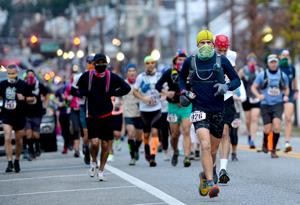
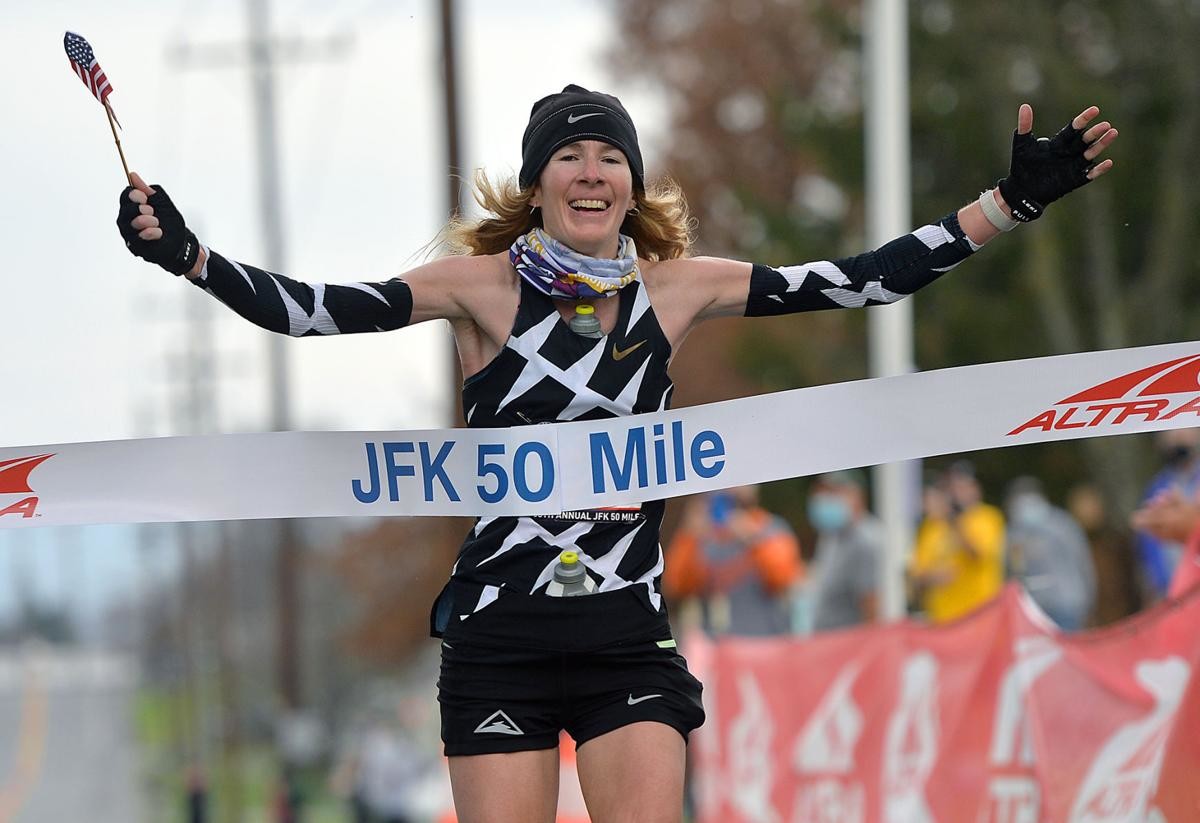
In his debut at the race, Hawks, 29, of Cedar City, Utah, turned in a stunning performance, winning in a course-record time of 5 hours, 18 minutes and 40 seconds — an average of 6:21 per mile.
The women’s title was captured by pre-race favorite Camille Herron in 6:31:14.
“I just really wanted to come out here, have fun and see what I could do. It just all clicked today,” Hawks said. “I kept thinking the whole time during the race how grateful I was to be out here.
“You know, it’s been a hard year for a lot of people, including us as professional athletes. My whole schedule was changed this year. I had all these big plans, competing at all these big things. Of course, all that got canceled, so I just took advantage of the time I had and really dialed everything in — my nutrition, my strength training, my running training — coming into this.
“I was like, you know, I need to be grateful and have gratitude because, really, this might be the first and the last race for a while for me. I was just really fortunate and really happy out there.”
The previous course record was 5:21:29, set by Jim Walmsley in 2016. That was a momentous achievement, as before Saturday, no one else had ever run faster than 5:34:22 in the first 57 years of the event.
“I fully expected Walmsley’s record to stand well into 2040, maybe even 2050,” JFK 50 director Mike Spinnler said. “It was just such a big quantum leap.”
With some help from Walmsley, Hawks took it a step further.
“Jim and I are really good friends. We talk all the time,” Hawks said. “Jim actually gave me some advice coming into this. I was texting him back and forth, asking for shoe advice and what I should do. And he gave me advice.
“He’s a really class-act guy, a really great competitor, and I’m really fortunate to have him as a friend. That’s what we do as competitors. We’re always trying to push each other and reach that next goal. I’m sure Jim is happy for me today to take this course record to the next step, just like I’d be happy for him if he did that as well.”
Stephen Kersh, 29, of Flagstaff, Ariz., placed second in 5:27:07 — the No. 3 performance in race history — in his first JFK.
“I’m definitely pretty happy,” he said. “It was just about as good as it could have been.”
Kersh’s training partners in Flagstaff include Walmsley and two other recent JFK champions, Jared Hazen (2018) and Eric Sensmen (2017).
“I’ve been picking their brains for the last couple months, so I didn’t come into this as green as some people. I knew what to expect,” Kersh said. “Training with those guys, this isn’t as unexpected as maybe some people think, because I’m not really a big name in the sport.”
After the first 15.5-mile segment of the race, mostly comprised of the rocky Appalachian Trail, a lead pack of four — Hawks, Matt Daniels, Hazen and Kersh — took the title fight to the flat C&O Canal towpath for the next 26.3 miles.
“Once we hit the canal path, Matt and I took off,” Hawks said. “We actually train a lot together and are really good friends.
“We talked beforehand about working together on the canal path, and then it would be every man for himself at the end, so that’s what we did. We started clicking off sub-6-minute miles and were feeling very comfortable, having a conversation and feeling really good.
“At Mile 27, I kind of broke Matt a little bit. I think maybe he had a calf injury. He’s been dealing with a lot of injuries over the past few months. Matt on his ‘A’ game would have been hard to beat today.”
Daniels ended up dropping out, and Hazen fell back to a 13th-place finish (6:36:13).
Jonathan Aziz, 29, of Colorado Springs, Colo., finished third in his ultramarathon debut in 5:37:14 — the No. 6 performance in JFK history.
Anthony Kunkel, 28, of Durango, Colo., placed fourth in 5:45:31, and Geoffrey Burns, 30, of Ann Arbor, Mich., took fifth in 5:52:51.
Herron adds to her résumé
In the women’s competition, Herron, 38, of Alamosa, Colo., showed why she was the overwhelming pre-race favorite, leading from start to finish as she won by nearly a half-hour in her first JFK.
Although Herron’s personal record for 50 miles (5:38:41) is an all-time world best, she specializes in even longer events, also owning world-best performances for 100 miles (12:42:40) and 24 hours (167.842 miles).
“Because I was coming down in distance, I felt a little slow and rusty today,” she said.
She had her sights set on the JFK women’s record — 6:12:00, set by Ellie Greenwood in 2012.
Although Herron was off course-record pace on the Appalachian Trail, she had hoped to make up for it on the C&O Canal towpath.
“I was trying to chase time the whole way, and I just didn’t have it. This was the best that I could do today,” she said. “Buy hey, I won. I’m not disappointed for such a crazy year. It’s awesome to even have a race.
“I definitely want to come back,” she said. “I think I have it in me to go for the course record — just keep trying. It’s a stout course record, I can tell you that.”
Sarah Cummings, 31, of Park City, Utah, was the runner-up in 6:57:11, while Haley Moody Gilpin, 31, of Chattanooga, Tenn., placed third in 7:00:52, Alicia Hudelson, 36, of Roswell, Ga., took fourth in 7:14:02, and Sarah Biehl, 26, of Hilliard, Ohio, was fifth in 7:22:32.
(11/22/2020) ⚡AMPRyu Takaku Withdraws from Fukuoka International Marathon
On Nov. 20 the organizers of the Dec. 6 Fukuoka International Marathon announced that invited athlete Ryu Takaku (Yakult), the fastest man in the field with a PB of 2:06:45 from this year's Tokyo Marathon, has withdrawn.
The statement said Takaku is suffering fasciitis of the adductor longus muscle in his right thigh.
(11/21/2020) ⚡AMP
by Brett Larner
Fukuoka Marathon
The Fukuoka International Open Marathon Championship is one of the longest running races in Japan, it is alsoan international men’s marathon race established in 1947. The course record is held by Tsegaye Kebede of Ethiopia, running 2:05:18 in 2009. Frank Shorter won first straight years from 1971 to 1974. Derek Clayton set the World Record here in 1967 running 2:09:37. ...
more...2021 Rock ‘n’ Roll Arizona Marathon cancelled due to COVID-19
The 2021 Rock 'n' Roll Arizona Marathon and half-marathon have been cancelled, organizers said on Friday.
It was originally scheduled to take place Jan. 16-17.
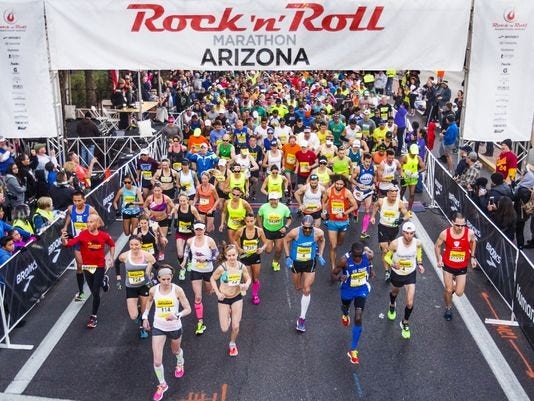
"With the health and safety of our community being an utmost priority, and in alignment with local authorities in relation to the ongoing COVID-19 pandemic, the 2021 Rock ‘n’ Roll Arizona Marathon & ½ Marathon cannot take place as originally scheduled for Jan. 16-17," organizers announced in an email.
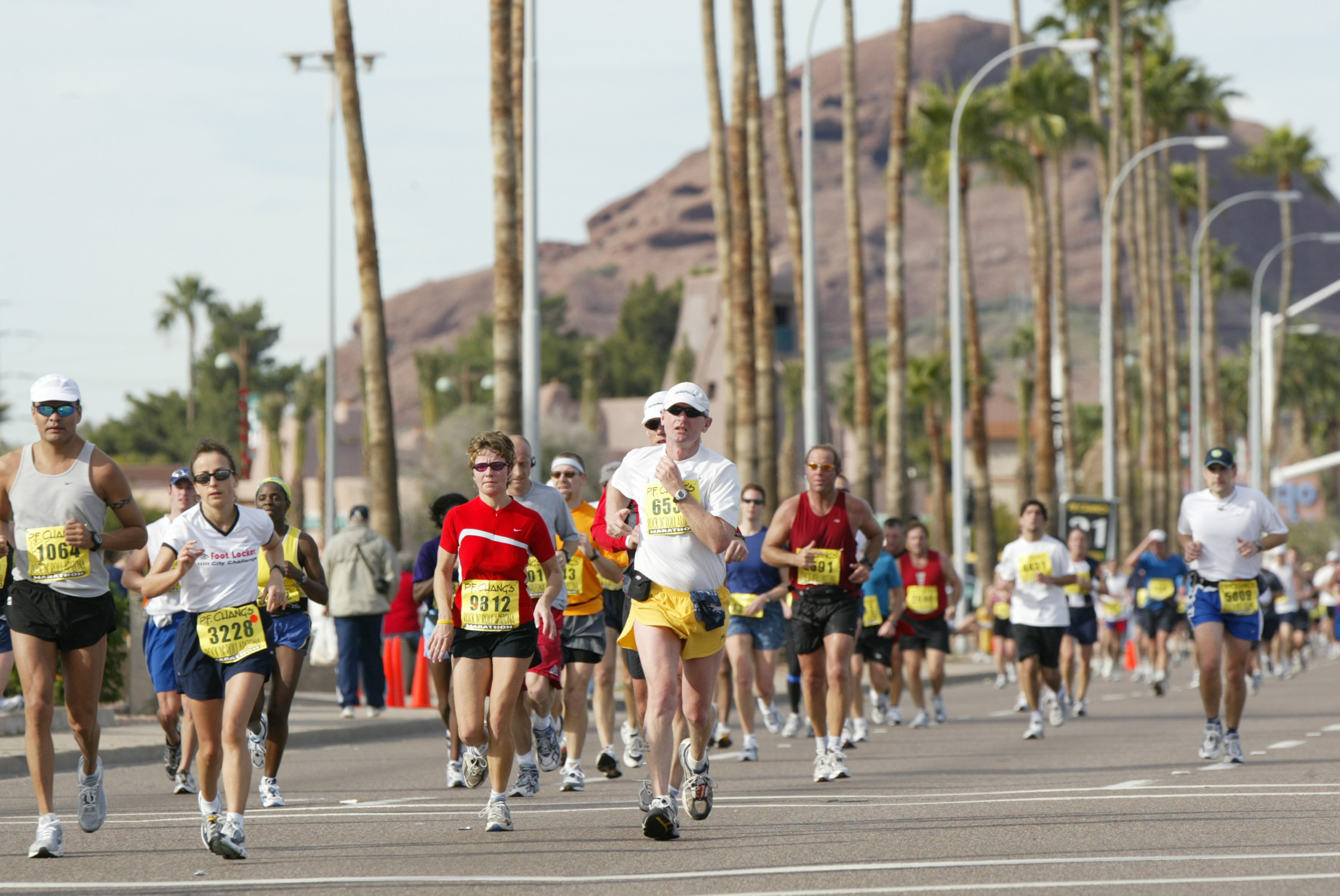
The race is scheduled to return Jan. 15-16, 2022.
The Rock 'n' Roll Arizona Marathon consists of a marathon and half-marathon as well as 10K, 5K and "kids rock" races.
The 2020 events were held on Jan. 18-19, with an estimated 25,000 runners making their way through the streets of Phoenix, Scottsdale and Tempe throughout the weekend.
(11/21/2020) ⚡AMPby Kimi Robinson
Rock N Roll Arizona Marathon
The Marathon and Half-Marathon courses or the new Mini- Marathon or Bike Tour courses take you through the three host cities of Phoenix, Scottsdale and Tempe! The Marathon and Bike Tour start at CityScape in downtown Phoenix, while the Half-Marathon and Mini-Marathon are loop courses launching from downtown Tempe. All the courses end in Tempe at ASU’s Sun Devil and...
more...These Turkey Trot Alternatives May Help You Create New Thanksgiving Traditions
Now is the time to show off your race-directing skills to your household.
In many U.S. households, Thanksgiving isn’t Thanksgiving without a pre-feast turkey trot. In 2018, more than 1.17 million runners registered to run or walk one such race, making the fourth Thursday of November the most popular day of road racing all year. There’s something uniquely satisfying about kicking off the holiday season with a good sweat, alongside family members, running friends, local rivals, and hordes of costumed strangers.
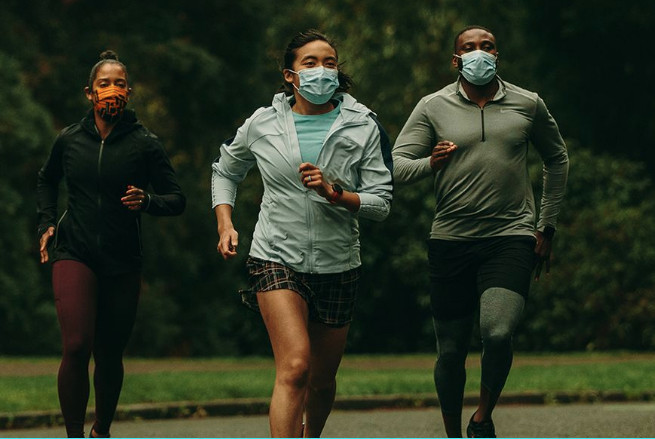
This year, needless to say, will be different. With mass events off the table, large gatherings and travel discouraged, and a global pandemic to respect, turkey trots as we know them won’t be part of the Thanksgiving agenda like usual.
But that doesn’t mean we have to table the trot entirely until 2021. We’ve seen Zoom concerts, balcony celebrations, and drive-by birthday parties; all we need to keep the tradition alive is creativity and a willingness to adapt.
Here are some ideas for a 2020-style turkey trot.
Register for a Virtual Race
What they lack in atmosphere, virtual races make up for in their ability to get runners out the door on a set day in pursuit of a completed distance or fast time. Many of the biggest and longest-running races are going virtual this year, giving runners more flexibility and options than ever.
Keep your local turkey trot streak alive, if you can and want to, or choose one elsewhere that sounds like a fun shake-up of tradition. Some, like America’s Turkey Trot, are sending registrants pumpkin-pie-inspired medals and other swag. Others, like Dallas YMCA Turkey Trot, feature timed and untimed options over multiple distances. Most races donate a portion of their proceeds to a charity, whether that’s a food bank, rehab center, or youth running program.
If there ever were a year to branch out, this is it! Here are some virtual turkey trots that we recommend:
Slow Down With a Walk
From our earliest jogs, many runners are taught that walking is an inferior activity, reserved mostly for elderly people and out-of-shape athletes. Why walk when you can run? There are plenty of reasons to keep moving even if you slow your roll, including aerobic work without much impact, an immune system boost, and improved cognitive functioning.
Most importantly in the context of a national holiday, walking is more inclusive than its quicker counterpart. Grandparents, children, pregnant sisters, and arthritic mothers can all participate—and that alone is reason enough.
An outdoor walk is an especially good option this year, as it gives families a safer way to get together than a close-quartered, indoor gathering. Grab a mask, pick a place to meet, socially distance, and savor this Thanksgiving like you may not have before.
Stage an Intrasquad Competition
Some families take their Thanksgiving Day races seriously: dedicated training, months of smack-talking, sneaky racing tactics, and firmly enforced bets on who will finish first and what the stragglers will owe them. If any of that sounds like the turkey trot you know and love, you may be a good candidate for an intrafamily competition. Depending on how many runners will be present and what your family’s style is, that could take the form of a head-to-head contest or a relay race.
For the first option, map out a course, clarify the rules (e.g., determine how much jostling is allowed), and battle it out for a year-long reign as family champion. If you go the relay route, divide your teams as evenly as possible, determine the distance of each leg, grab a baton-like object for each team, and save your ringers for last. Just don’t blame me if the dinner table conversation is a little more heated than usual this year.
Run a Time Trial
If you’re craving competition but prefer the internal type, there’s always the old-fashioned (and free!) time trial. With this option, you’re not only the racer, but also the race director, course marshal, and fluid-station volunteer. You decide when and where to run—track, trail, road, or treadmill, plus exactly how you want to test yourself.
Though time trials are traditionally run over a set distance, this Thanksgiving is your oyster: you could cover as much ground as possible in a certain amount of time, run maximal efforts over a few different distances (like a one-person track meet), or time your ascent up the biggest hill in town.
Whatever you choose, know that you’re still contributing to the nation’s biggest running holiday, official results or not.
Relish the Rest
Just because racing on Thanksgiving is something you’ve always done doesn’t mean it’s something you have to try to replicate this year—especially if it’s going to add to the stress or sadness of this already tumultuous time.
Maybe you can’t bear the thought of carrying on the family tradition without your typical tribe, isolated as everyone is. Or maybe, after nearly nine months of pandemic life plus an attempt at creating a “normal” holiday, the only reps you feel like doing are those between the couch and the table. Either way, honoring those feelings and relishing this rare opportunity to take a Thanksgiving off is as good a move as any of the racing alternatives above.
(11/21/2020) ⚡AMPby Runner’s World
Kilian Jornet eyes 24-hour world record
The Spanish mountain runner will shift to the track as he attempts to run more than 300K in just 24 hours
Spanish ultrarunning champion Kilian Jornet is known for his feats in the mountains and on the trails, but 2020 is turning out to be a year of firsts for him. In October, he ran the first road 10K of his career, and now he is set to tackle a race on the track. While a track run is certainly out of character for Jornet, he’ll be sticking to his ultrarunning roots as he attempts to break the 24-hour world record of 303.506K. Salomon, Jornet’s main sponsor, has organized the event, which they have titled Phantasm24. The run is slated for some time later this week in Norway, although due to unpredictable weather, Salomon and Jornet have yet to nail down an exact day.
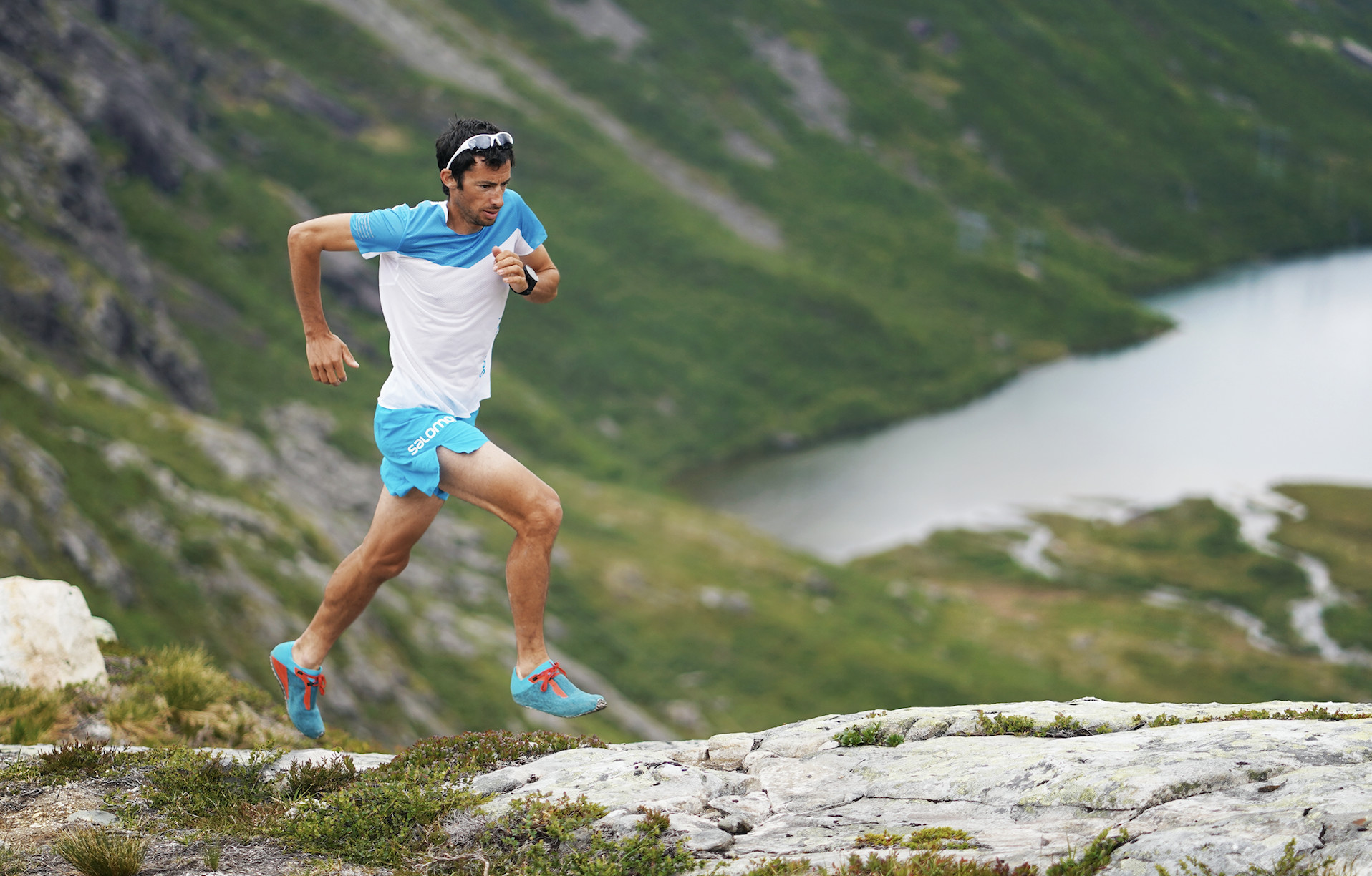
In 1997, Greece’s Yiannis Kouros, arguably the best ultrarunner of all time, set the 24-hour record that Jornet will chase in the Phantasm24 challenge. In the buildup to the run, Salomon is publishing short videos of Jornet explaining how he has prepared for the 24-hour event. In a video posted on Tuesday, Jornet says he has two main concerns going into the record attempt: fuelling and whether his legs will hold up for the entire run.
“To get energy, to be able to eat a lot and not have any gastro problems,” he says, is very important. “And the second one is the legs. I know I can be 24 hours in this effort … but I don’t know … if I will have any problems. Those are the two things I have doubts about.” Jornet has raced and won some brutal races in his career, including the Ultra-Trail du Mont-Blanc and Western States 100, but he has never faced a challenge like the one he’ll encounter in the Phantasm24, which will be a full day of hard laps around a flat track.
“When racing in mountains, it’s easy for me,” Jornet says in another video. “I know how to pace myself, I know how to push, how my muscles will react, how my cardio will react, but on flat, it’s completely different.” He continues to express his doubts later on in the video, saying, “I know [racing on flat ground] is something that I’m not good at, but it’s always important to find new challenges, I think, and to get out of the comfort zone is always good.”
To beat Kouros’s record, Jornet will have to average at least 4:44 per kilometre for the entire run. This is a pace many people struggle to hold for just 5K, and Jornet is hoping to run it for a minimum of 304K. It’s a tall order, and no one has been able to meet it for the past two decades, but if anyone can reach the same heights as Kouros did in 1997, it’s Jornet.
(11/21/2020) ⚡AMPby Running Magazine
California runner doubles up Western States 100 course for 200-mile FKT
The point-to-point Western States 100 route wasn't long enough for Dan Barger, so he turned it into an out-and-back run instead
Auburn, Calif., runner Dan Barger, 55, recently completed an out-and-back variation of the traditionally one-way Western States 100 course, completing the 200-mile (321K) run in the fastest (and only) known time (FKT) of two days, 11 hours, 48 minutes. The Western States race finishes at Placer High School in Auburn, which is where Barger started his run and eventually returned almost 60 hours later. His triumph on the route comes just a few months after a failed attempt to run the same FKT back in August, when extreme heat forced him to call it quits.
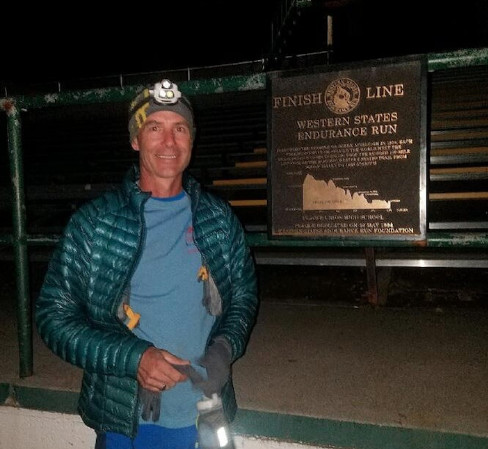
Barger is a seasoned ultrarunner, and he has run the official Western States 100 12 times, first running the storied race back in 1987. His best result came in 1998, when he finished ninth overall in 19:46:32, and his PB for the course is a 17:36:34 from 2010, which was good enough for 10th place. Barger has also raced the UTMB, the Leadville 100 and well over 100 other trail and ultra races dating back to the early ’80s. With close to four decades of trail running experience, it’s no wonder that Barger managed to set the Western States 200 FKT.
n his post-run report on fastestknowntime.com, Barger writes that “The Sierra did not give up this FKT easily.” Following the cancellations of the Tor des Géants and the real Western States 100, he explains, he was looking for a new challenge to test his fitness. “I made an attempt [August 1], throwing in the towel at [Mile 125].”
Undeterred, he planned to give the run another shot in September, but wildfires throughout California made the “air quality hazardous and the [United States Forest Service] closed the trails to all for two weeks.” Knowing that another runner, Scott Sambucci, had an attempt planned for early October, Barger scheduled his for the end of the month. Sambucci’s run, like Barger’s first time on the route, was unsuccessful, leaving the door open for Barger to grab the FKT.
Barger started his second attempt at the Western States 200 on October 30, succeeding in the repeat run and crossing the finish line on the Placer High School track on November 1. In total, he covered 12,515m of elevation gain over the 320K route, which is the equivalent of scaling Mount Everest one and a half times. His average pace for the two-day affair was a little over 11 minutes per kilometre, which, considering the enormous elevation gain and extreme length of the route, is wildly impressive.
(11/21/2020) ⚡AMPby Running Magazine
JFK 50 Mile criticized for COVID risks as cases surge in rural Maryland
The oldest ultramarathon in American is taking heat for running a mass-participation race as COVID cases swell
Tomorrow, American’s oldest ultramarathon will be held in Boonsboro, Md., with close to 1,200 runners set to race. The JFK 50 Mile is an event with a storied history and an impressive lineup for this year’s race. But the event is getting negative press this week due to the local surge in COVID-19 cases, and its existence is being questioned within the ultratrail community as well as the wider public.

Race organizers have acknowledged the necessity of making the event safe, and even published a COVID-19 Action Plan on the event’s website, but public health officials told The Washington Post they believe an event like this is posing an unnecessary risk, both for competitors and also for local residents. Maria Valeria Fabre, an infectious disease expert, told The Post, “I know it is hard to cancel an event that takes so much time and effort to prepare, but this doesn’t seem to be the best time to hold such an event. We know a lot more now than we knew in March about how Covid-19 is transmitted, and we know that people gathering in this way is a major factor in transmission.”
The point-to-point course starts in Boonsboro and heads south to the Maryland-Virginia border before taking runners north to the finish in Williamsport, Md. The route begins on the road and after 4K of running, transitions onto the Appalachian Trail. Saturday will be the event’s 58th year running.
The event will run waves of 250 runners at a time, which is the state’s limit for outdoor gatherings. All runners must wear a mask at the start of the race until they can safely distance. While the current plan is in line with government orders, the out-of-state travel for the event is a concern. A quick glance at the team lists shows runners coming from Florida, Maryland, New York, West Virginia, Colorado and North Carolina to race.
The event was planned earlier this year when numbers were settling and the future was looking more promising. However, as the fall draws on, cases and hospitalizations continue to rise. The event website states they have every intention of going forward with tomorrow’s race (and, since everyone has already travelled there, it may already be too late to mitigate any effects).
The first wave will be sent off at 6:30 a.m. local time.
(11/21/2020) ⚡AMPby Running Magazine
World record holders Brigid Kosgei and Ababel Yeshaneh are set to clash at Delhi Half Marathon
World record holders Brigid Kosgei and Ababel Yeshaneh have been added to the Airtel Delhi Half Marathon women's ï¬eld, making the 16th edition of this World Athletics Gold Label race on 29 November the strongest in the history of event - and one of the strongest half marathon contests in the world in 2020.
At the Chicago Marathon in October 2019, Kenya’s Kosgei stunned the world when she broke the long-standing women’s world marathon record by more than a minute, clocking 2:14:04. Yeshaneh was a distant second on that occasion but nevertheless still ran a superb personal best of 2:20:51.
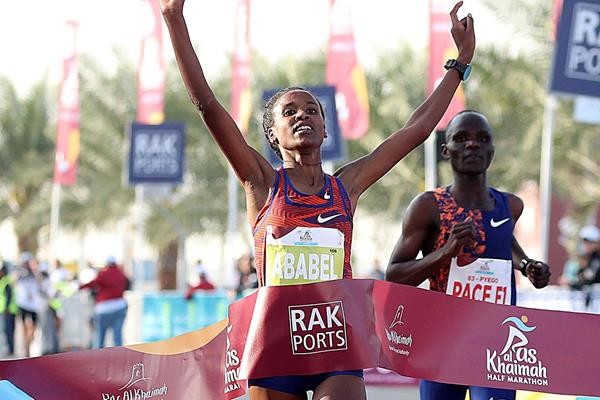
However, the tables were turned at the Ras Al Khaimah Half Marathon in February this year when a head-to-head contest in the final stages of the race saw Ethiopia’s Yeshaneh prevail in a world record 1:04:31 with Kosgei second in 1:04:49.
In their most recent outings last month, the 26-year-old Kosgei won the rescheduled London Marathon in 2:18:58 while the 29-year-old Yeshaneh had to contend with misfortune and fell at the World Athletics Half Marathon Championships in Gdynia, Poland, with just over three kilometres remaining, which took her out of medal contention although she recovered quickly to finish fifth.
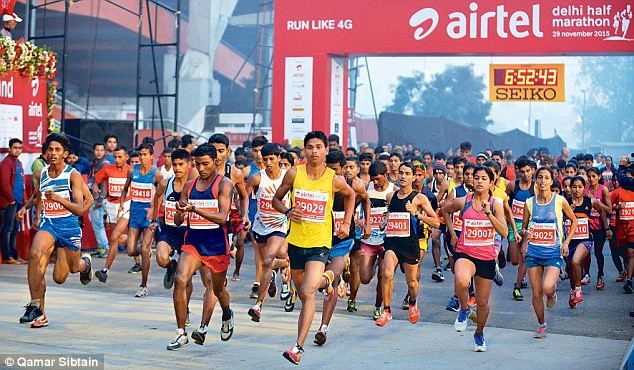
A trio of Ethiopian runners have already been announced that will provide stiff competition for Kosgei and Yeshaneh as well as a host of other world class athletes.
Women's course record holder Tsehay Gemechu is seeking an unprecedented third successive victory. In 2019, Gemechu improved her own course record from 12 months earlier by no less than 50 seconds when she stopped the clocking 1:06:00.
Yeshaneh and Gemechu's compatriots on the start line in in the Jawaharlal Nehru Stadium include Yalemzerf Yehualaw and Netsanet Gudeta.
Yehualaw ï¬nished second in the ADHM 2019, just one second behind Gemechu, and third at the 2020 World Championships last month in a personal best of 1:05:19 while Gudeta finished eighth in Poland but was the 2018 world half marathon champion.
Both the men's and women's races have first prize cheques of US$27,000, part of a total prize money purse (combined men and women) of US$233,270.
Strict safety measures in place
This year's race will be unlike any previous edition with only an estimated 60 elite international and Indian runners in action on the Delhi roads, with the traditional start and finish still in the Jawaharlal Nehru Stadium. The event will follow the highest level of safety standards, with bio-secure zones to ensure a COVID-free race for the runners. All mandatory protocols in line with the advisories issued by the Government of India have been established for the event crew, vendors and suppliers, elite athletes, media and all guests.
(11/21/2020) ⚡AMPby World Athletics
Vedanta Delhi Half Marathon
The Airtel Delhi Half Marathon is a haven for runners, creating an experience, that our citizens had never envisaged. The streets of Delhi converted to a world-class running track. Clean, sanitized road for 21.09 kms, exhaustive medical support system on the route, timing chip for runners, qualified personnel to ensure smooth conduct of the event across departments. The race...
more...Participants able to take part in St. Jude Rock ‘n’ Roll VR Nashville despite cancellation
Despite not being able to physically join each other at the Rock ‘n’ Roll Nashville Marathon and ½ Marathon start line for the first time in over 20 years due to the recent impacts of Covid -19, the Rock ‘n’ Road Trip will bring Broadway to the global running community, offering five different distances to highlight one of the most iconic Rock ‘n’ Roll Marathon Series destinations.
Following a virtual stop in Vegas that saw over 10,000 participants lace up for Rock ‘n’ Roll VR Las Vegas, the Rock ‘n’ Road Trip makes its way to Nashville providing participants a virtual tour of Music City. St. Jude Rock ‘n’ Roll VR Nashville will offer participants a Marathon, Half Marathon, 6.15K, 5K, 1-Mile and Remix challenge options to participate in. Registration for the St. Jude Rock ‘n’ Roll VR Nashville remains open and available for FREE to the entire global community from Nov. 20 - Nov. 22. All Rock ‘n’ Roll® Virtual Running™ (VR™) Series races during the Rock ‘n’ Road Trip begin weekly on Fridays at 5 a.m. ET and close Sundays at 11:59 p.m. ET with participants being able to compete in the virtual tour stop anywhere, indoors or outdoors, as long as the distance of their choosing is completed in one session.
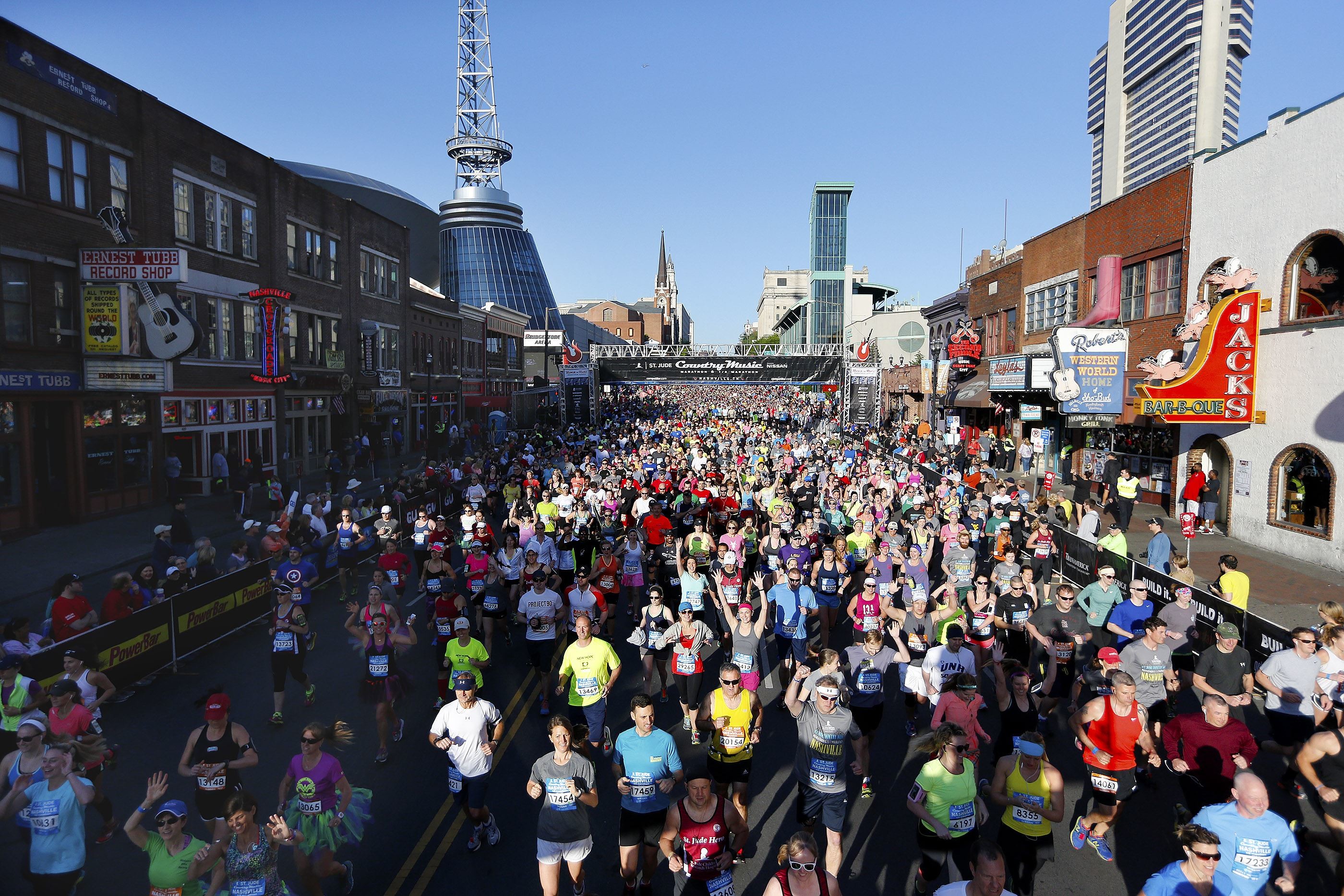
“While we were all looking forward to once again providing in-person racing options in Nashville, the Rock ‘n’ Road Trip on the Rock ‘n’ Roll Virtual Running Club platform continues to provide the global running community a way to be competitive, stay active and engaged in what makes our event locations so special,” said Elizabeth O’Brien, Managing Director for North America at the IRONMAN Group.
“The virtual Rock ‘n’ Road Trip will provide participants both in Nashville and across the globe an option to channel the best of what Music City has to offer.”
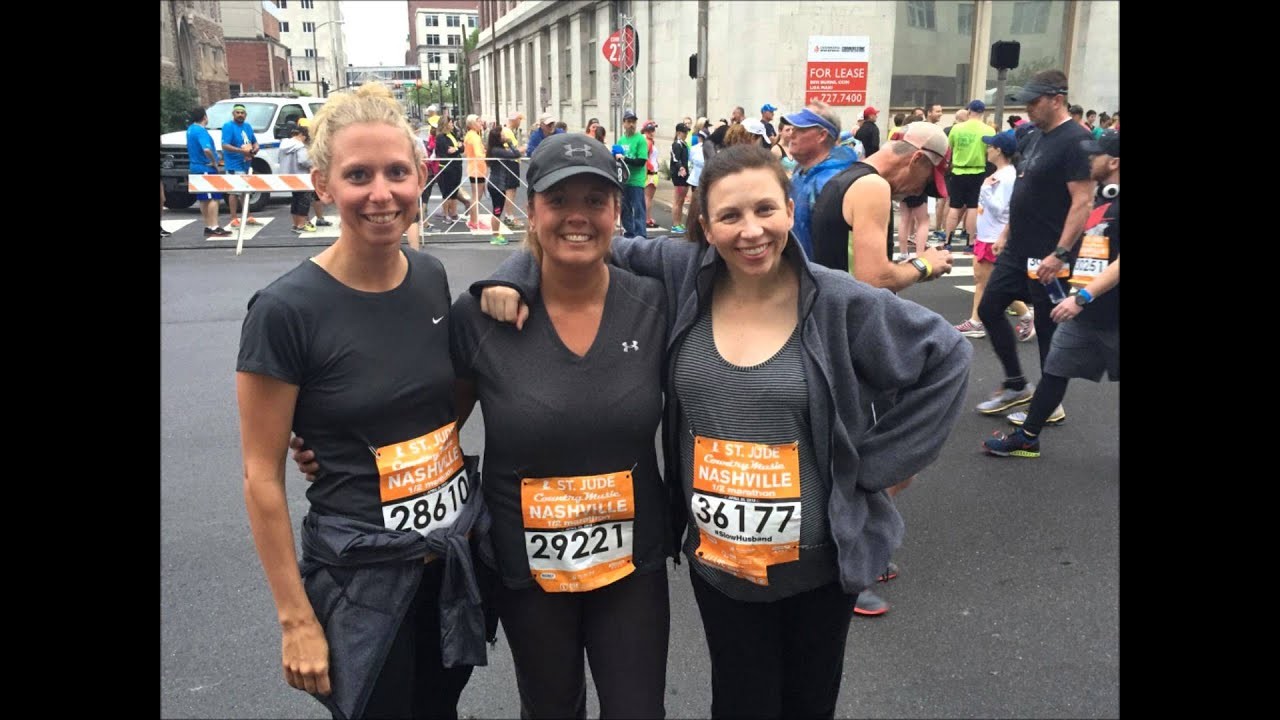
Nashville InspiredRock ‘n’ Roll Virtual Club participants are encouraged to be Nashville inspired in their virtual activities and share photos and videos on social media by tagging #RnRVRNashville. Don’t live along Broadway, no problem. Here are several reasons why we love Nashville as well as some Rock ‘n’ Roll Road Trip prep on how runners and walkers can experience the best of the Country Music Capital in their own communities.
Music every step of the way: The race features 26 stages featuring the same bands every year so runners can look forward to friendly faces and familiar tunes. Les Kerr has even played at Stage 1 with his band Les Kerr and The Bayou Band every year for the event’s 20-year legacy. There is more live music at this event than most other races, including at the Expo and at the Kid’s Race. Find a local concert venue and run past with your best tunes on, like the sounds of Nashville were just around the corner.
Run 32 Laps for All 32 Honky Tonks: Make your miles count, the miles you run correspond to the bars Nashville is famous for. So, queue up some country, bluegrass, and blues and crank out those kilometers as you pass the likes of Nashville Underground, Tequila Cowboy, Paradise Park and Tin Roof Broadway, among the 32 iconic Honky Tonks lining Broadway in downtown Nashville.
A Marathon for Music Nuts: The Rock ‘n’ Roll Nashville course, both 13.1 and 26.2 miles is a perfect run for the inner music lovers. Runners pass numerous famous recording studios, such as Dolly Parton’s rehearsal studio. Other highlights include running past the spot where Elvis Presley recorded “Ask Me” and “Memphis Tennessee,” and hearing the entire Belmont Church Choir serenade you from the steps of the church. Crank up the inspiration and high tail it past your favorite running locations as if you were running past a slice of music history.
(11/20/2020) ⚡AMPSt. Jude Rock N Roll Nashville Marathon & 1/2 Marathon
The St. Jude Rock ‘n’ Roll Nashville Marathon & 1/2 Marathon (formerly St. Jude Country Music Marathon & 1/2 Marathon) gives you the opportunity to enjoy an up close and personal tour of Music City, one of the New York Times’ top destinations in the world! Run through the Honky Tonks of Lower Broadway and take a musical tour through...
more...Sanya Richards-Ross and Ato Boldon will host the World Athletics Awards 2020
World Athletics is delighted to announce that legendary sprint stars Sanya Richards-Ross and Ato Boldon will host the World Athletics Awards 2020, to be staged as a virtual event on Saturday 5 December.
Richards-Ross, who raced to the world 400m title in 2009 and captured Olympic gold in the event in 2012, will host the event for the first time while Boldon, the 1997 world 200m champion and a four-time Olympic medallist in the 100m and 200m, will reprise his role, having hosted the event before.
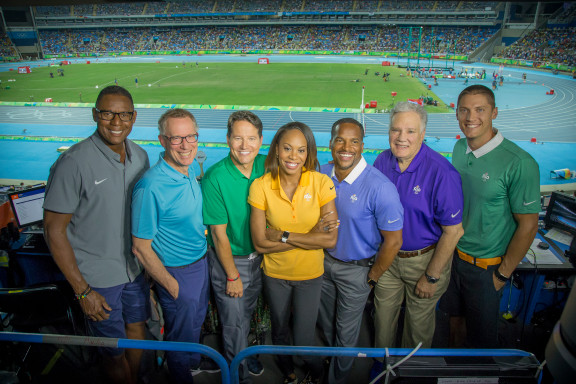
Richards-Ross and Boldon, who both now work as television commentators, took a brief break from their preparations to share some thoughts about the past season and the upcoming World Athletics Awards 2020, which will be streamed live on the World Athletics YouTube channel, its Facebook page and via Twitter.
(11/20/2020) ⚡AMPby World Athletics
Belarus NOC claim preparations remain on course for Tokyo 2020 despite protests against its President
The National Olympic Committee of the Republic of Belarus (NOC Belarus) has claimed preparations for next year's re-arranged Olympic Games remain on track, despite the widespread protests in the country which could threaten the team's under its own flag in Tokyo.
Discussions were held between the NOC Belarus vice-president Viktar Lukashenka, the Deputy Prime Minister of the Republic of Belarus Igor Petrishenko and the Minister of Sport and Tourism, Sergey Kovalchuk.
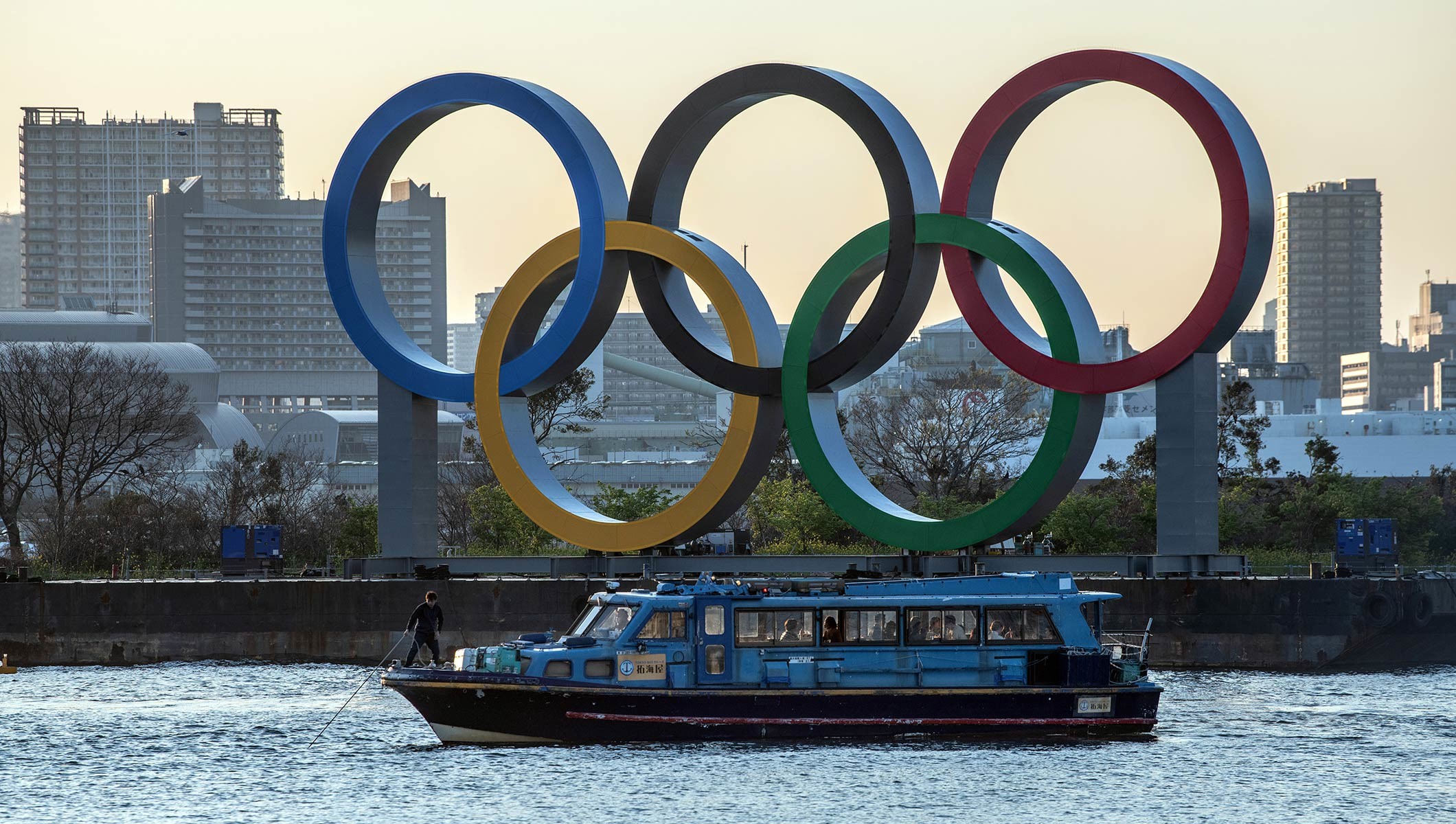
Heads and representatives of sports associations attended the meeting, as well as coaches and athletes.
Along with discussions about the upcoming Summer and the 2022 Winter Olympic Games in Beijing, issues surrounding the psychological climate of training during the COVID-19 pandemic.
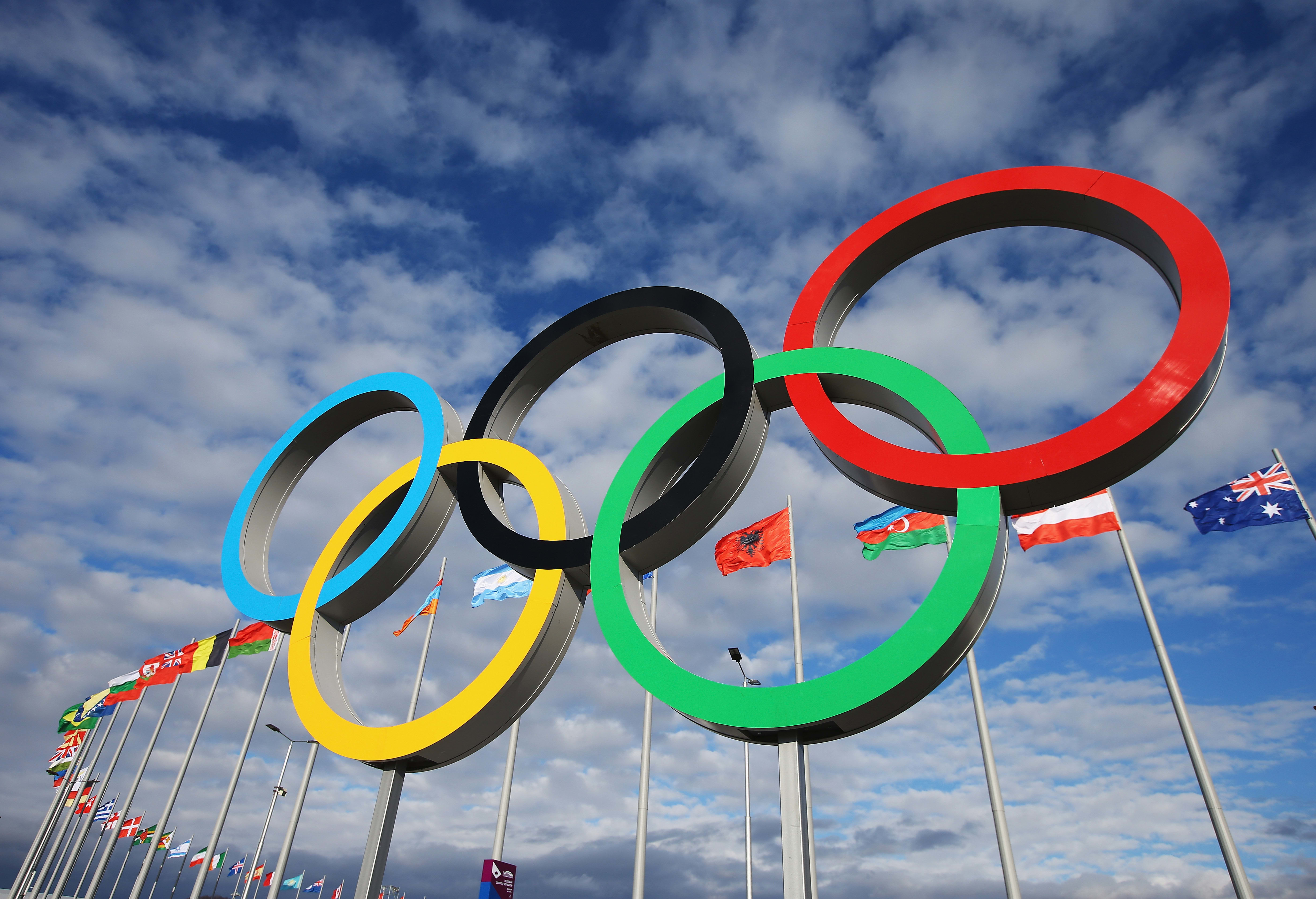
Many athletes have been at the forefront of the protests against the controversial re-election of Alexander Lukashenko as President.
The Beijing 2008 decathlon silver medallist Andrei Kravchenko among those arrested, despite not taking part in demonstrations against the Government.
Some athletes, however, have remained loyal to the Government and publicly thanked them for the help they have received.
"We work on a scheduled basis in athletics, all our wishes are fulfilled," Maksim Nedasekau, the European Games high jump gold medallist, said.
"We'd really like more of the competitions yet little depends on the athletes here.
"We use this time for recovery and treatment if necessary and our athletes have everything for it.
"They are currently training at the Raubichi sports complex which has excellent facilities even for high jumpers."
Head coach of the national athletics team, Yuri Moisevich claimed that facilities in the country had greatly improved in recent years and thanked the Belarusian Government for that.
However, the IOC continues to investigate the NOC Belarus following recent allegations of political discrimination against athletes.
Belarusians have been leading pro-democracy protests since August when Lukashenko was re-elected, despite evidence of an unfair contest.
Lukashenko has been the only leader of the country since the dissolution of the Soviet Union, holding his position since 1994.
He is often referred to as "Europe's last dictator", with the nation facing criticism for its human rights breaches.
Lukashenko is also the President of the NOC Belarus.
The IOC has warned the NOC Belarus could face sanctions - including a ban of the Belarus flag at Tokyo 2020 and Beijing 2022 - if it finds the NOC has breached the Olympic Charter.
With the Tokyo 2020 Games being scheduled for July 23 to August 8 2021, Belarusian athletes have already secured 71 spots in 15 sports.
There are expected to be around 100 athletes at Tokyo 2020 by the end of qualification in June 2021.
(11/20/2020) ⚡AMPby Michael Houston
Tokyo 2020 Olympic Games
Fifty-six years after having organized the Olympic Games, the Japanese capital will be hosting a Summer edition for the second time, originally scheduled from July 24 to August 9, 2020, the games were postponed due to coronavirus outbreak, the postponed Tokyo Olympics will be held from July 23 to August 8 in 2021, according to the International Olympic Committee decision. ...
more...The 43rd Running of the Bank of America Chicago Marathon Is Underway With the Goal of Returning On Sunday, October 10, 2021
The Bank of America Chicago Marathon announces the planning of the 43rd running of the event with the goal of returning to the streets of Chicago on Sunday, October 10, 2021. Event organizers are working closely with the City of Chicago on race weekend plans that align with Chicago’s public health and safety guidance.
The participant field for the 2021 event will be built through a tiered application process, which opens to a limited group of eligible individuals today. A second application window is set to open to the public in January.
“We are moving forward with hope and optimism,” said Carey Pinkowski, Bank of America Chicago Marathon executive race director. “The health and safety of participants, volunteers, spectators and the Chicago community remain at the forefront of our planning, and we are doing everything we can to safely bring the Bank of America Chicago Marathon back to our city streets.”

Race officials are working in partnership with the City of Chicago, including the Chicago Department of Public Health, to safely produce the event for both runners and spectators. Preparations for the event will be in accordance with Chicago’s re-opening framework, including the requirement for event attendees to adhere to local and state coronavirus guidelines.
“The Chicago Marathon is one of our city’s most beloved events and we are excited to be doing everything we can to ensure our race can safely return in the coming year,” said Mayor Lori E. Lightfoot. “Throughout this unprecedented crisis, we have been grateful to collaborate with dynamic partners, like the Chicago Marathon, who have stepped up to find safe, data-based solutions to our challenges, helping us lay the groundwork for our broader, citywide recovery that will follow in the months and years to come.”
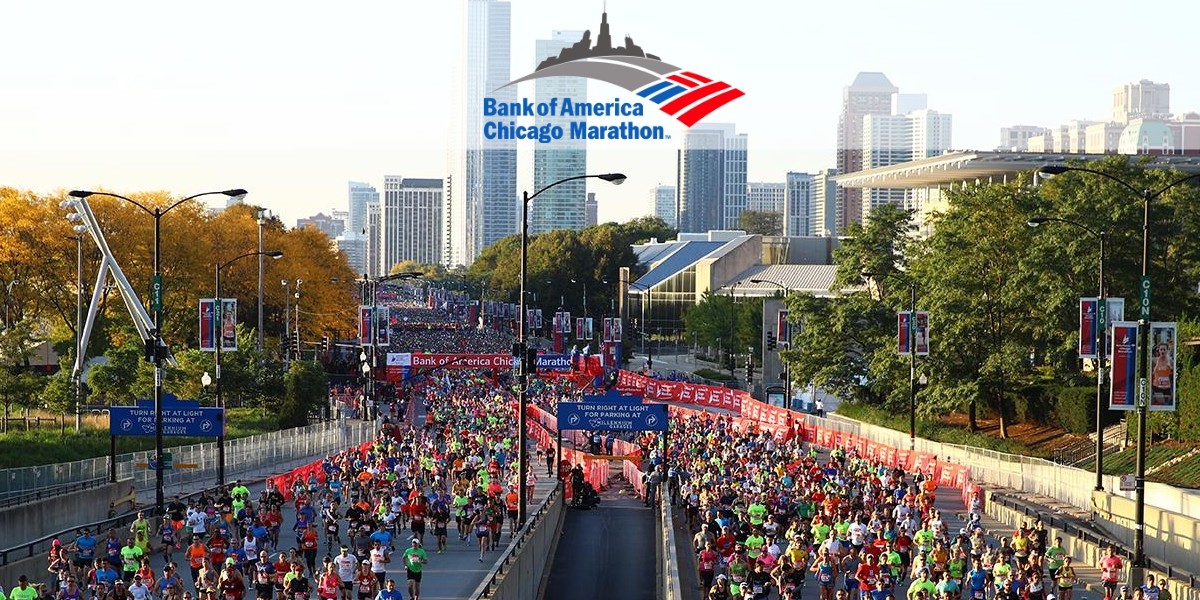
Registration for the Sunday, October 10, 2021 event will be conducted through a tiered application process. A limited application window is open now to participants who deferred their 2020 entries to a future event (2021, 2022 or 2023) in response to the cancellation of the 2020 race, as well as individuals interested in running and fundraising on behalf of an event charity partner.
A second application period (to be announced in January) will open to the general public and include access for guaranteed and non-guaranteed entries.
The cost of an entry is $205 for United States residents and $230 for participants residing outside of the United States.
Guaranteed entry
Interested individuals can qualify for an entry into the 2021 Bank of America Chicago Marathon through several guaranteed entry opportunities:
Individuals who deferred their 2020 Bank of America Chicago Marathon place and entry fee to a future event (2021, 2022 or 2023).
Charity runners who are fundraising for an official charity as part of the Chicago Marathon Charity Program.
Time qualifiers who have met the event’s age-graded qualifying standards or the event’s American Development Program standards.
Legacy finishers who have completed the Chicago Marathon five or more times within the last 10 years. 2020 Bank of America Chicago Marathon Virtual Experience finishes will not be eligible.
International runners (non-U.S.) participating in the International Tour Group Program.
Individuals who have completed the Bank of America Shamrock Shuffle 8K four or more times since 2008 and have signed up for the 2021 Shamrock Shuffle (registration for a virtual race will open in December).
Non-guaranteed entry drawing
Individuals who do not qualify for a guaranteed entry can apply for the non-guaranteed entry drawing. The event organizers will select names from the full pool of non-guaranteed entry applicants and notify individuals of their selection status in March 2021.
The Abbott Chicago 5K will take place in advance of the Bank of America Chicago Marathon on Saturday, October 9, 2021. This event is the perfect way for marathoners, fans of the sport, and friends and family to experience Chicago and take part in the excitement of race weekend. This year marks the first year of Abbott’s title sponsorship of the Chicago 5K, furthering the global health care company’s commitment to helping people live fuller lives through better health.
Additional details about the 2021 event and application, including the 2021 cancellation and refund policy, are available at chicagomarathon.com.
(11/20/2020) ⚡AMPBank of America Chicago
Running the Bank of America Chicago Marathon is the pinnacle of achievement for elite athletes and everyday runners alike. On race day, runners from all 50 states and more than 100 countries will set out to accomplish a personal dream by reaching the finish line in Grant Park. The Bank of America Chicago Marathon is known for its flat and...
more...The Kenya’s National Mountain Running Championship will be Sunday with 500,000KES of prize money confirmed
Athletics Kenya (AK) have set aside Sh500,000 ($4672US) as prize money for the National Mountain Running Championships due Sunday in Naivasha.
AK Mountain Running coordinator, Peter Angwenyi, disclosed Tuesday that the prize money will be for the senior men 10km, senior women 8km and junior men's 8km races.
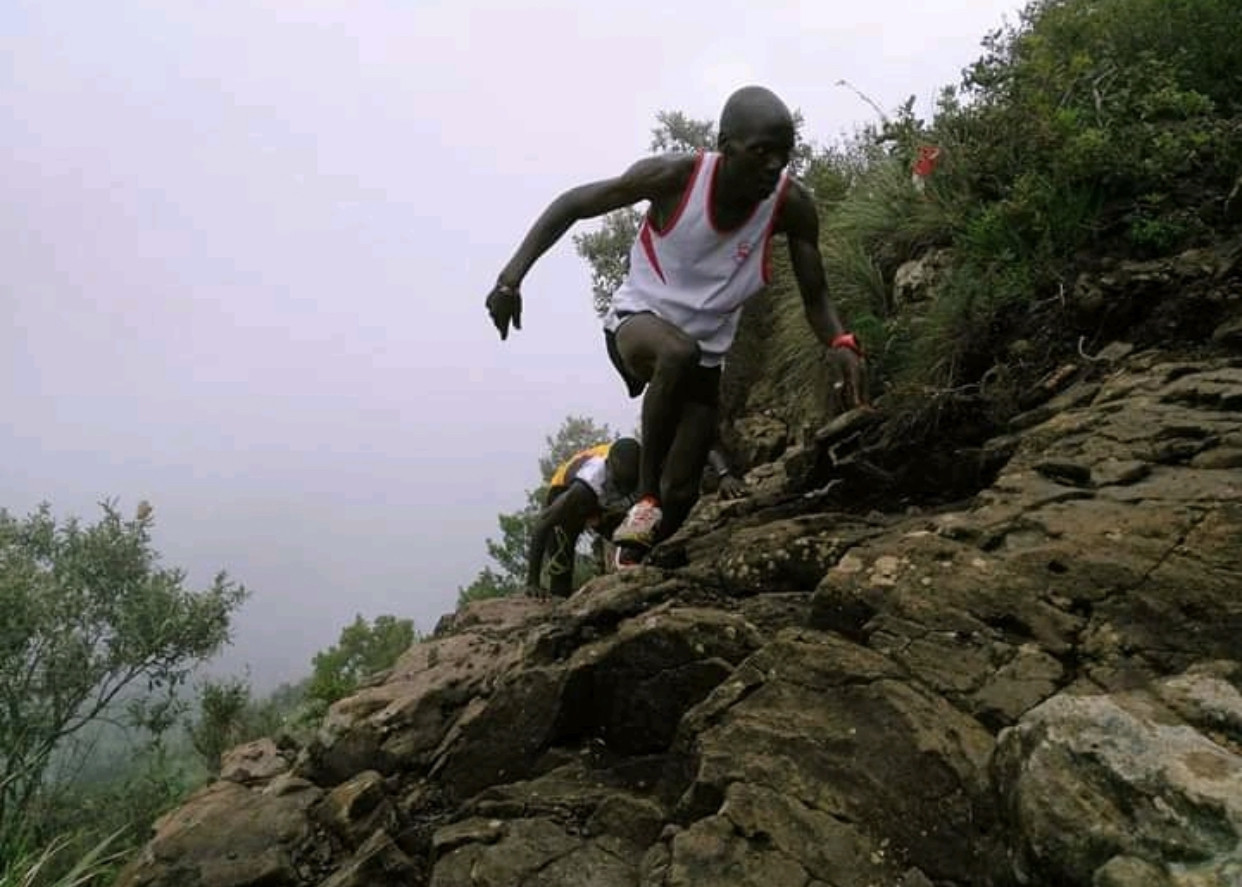
The winner in the men's race will pocket Sh 50,000, second-place athletes Sh25,000 and third-placed Sh20,000 in a prize fund that covers top 10 finishers.
The athlete winning the women's race will get Sh30,000, while second and third-placed athletes will go home with Sh24,000 and Sh19,000 respectively. All those finishing in top 10 vanguard will get cash awards.
Junior men winners will get Sh20,000 with those finishing second and third going home Sh15,000 and Sh 10,000 richer respectively.
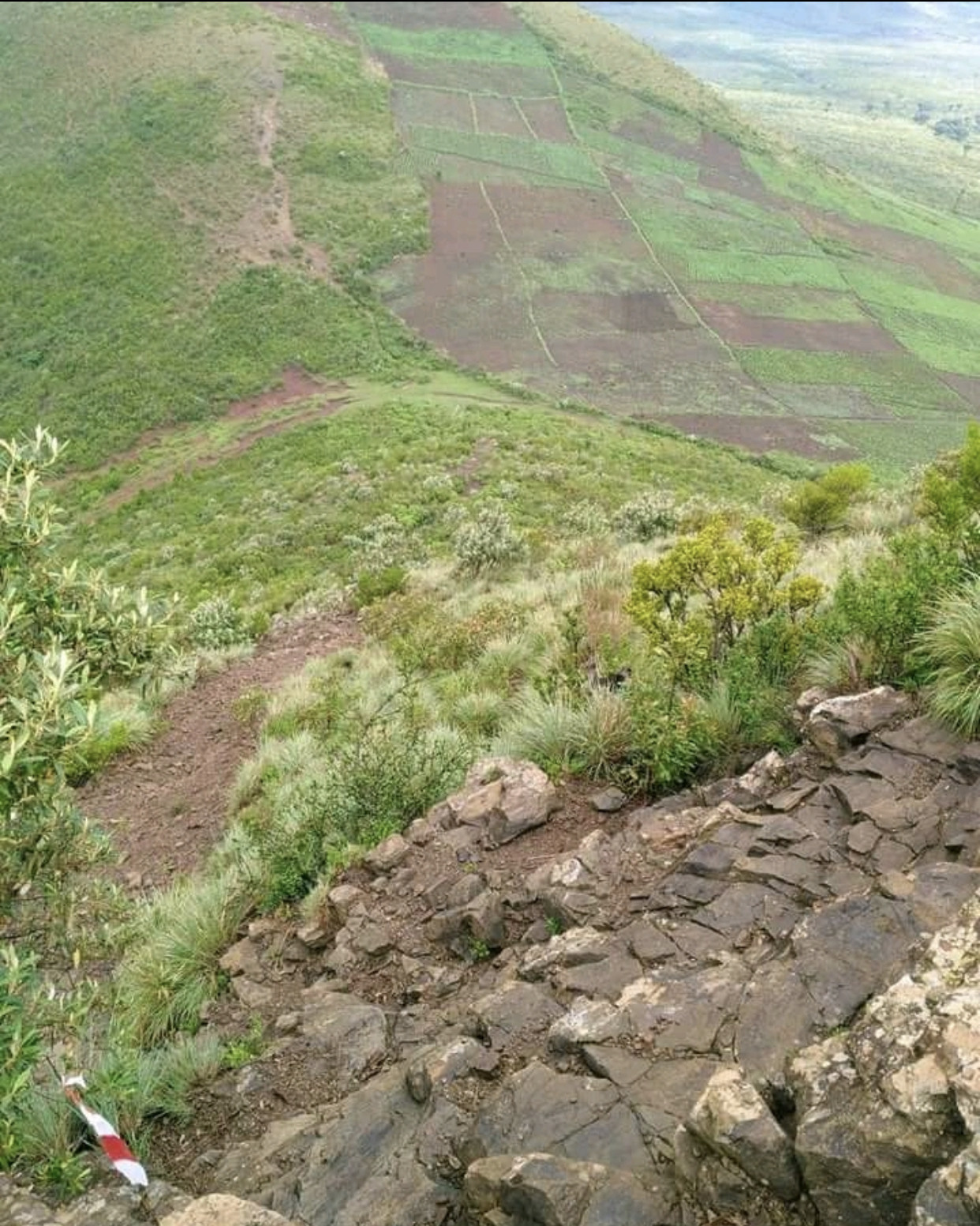
The races that have attracted 300 athletes will start at Cornerstone Preparatory Academy on Mai Mahiu - Naivasha and end at Flyover.
The demanding course will consist of flat track and steep climbing of 930m and downhill of 330m.
Two-time world champion Lucy Murigi is among the athletes expected for the inaugural National Mountain Championships
Also expected in the women's 8km race is the inaugural 2020 Mount Kenya Mountain Running champion Purity Gitonga from Meru, Esther Waweru, who finished second at the Mount Kenya event, and Theresa Omosa from Kisii among others.
It was during the 2018 World Championships where Murigi, Gitonga, Viola Jelagat (silver) and Joyce Njeru teamed up to win the team title.
Geoffrey Gikoni, who has taken part in a series of mountain running circuits in Europe, is the favourite in the men's 10km race that will have the likes of Mount Kenya Mountain Running champion Emmanuel Bor and Dickson Simba.
Also heading to Longonot are Martin Magu and Denis Kemboi.
Interestingly, World Under-20 3,000m steeplechase silver medallist Leonard Bett has registered for the race.
Also UjENA Fit Club from Thika will field a team of ten.
Angwenyi said registration of the event will be done on Saturday at Kamunyaka Mini Supermarket in Longonot, Beryn Hotel in Naivasha, Run2gether Training Camp in Kiambogo and Kobil Petrol Station in flyover.
All the Covid-19 protocols will be maintained during the one day event.
(11/19/2020) ⚡AMPby Ayumba Ayodi
This year´s Sofia Marathon winners Khapilina and Sbaai provisionally suspended by AIU
This year’s Sofia Marathon winners, Viktoriia Khapilina and Youssef Sbaai, have been provisionally suspended from all racing for doping violations, the Athletics Integrity Unit (AIU) said on Tuesday.
Ukraine’s Khapilina and Sbaai of Morocco, who set course records of 2:27:57 and 2:13:03 respectively in the bronze label race in Bulgaria last month, tested positive for a banned substance in an in-competition test, the AIU said.
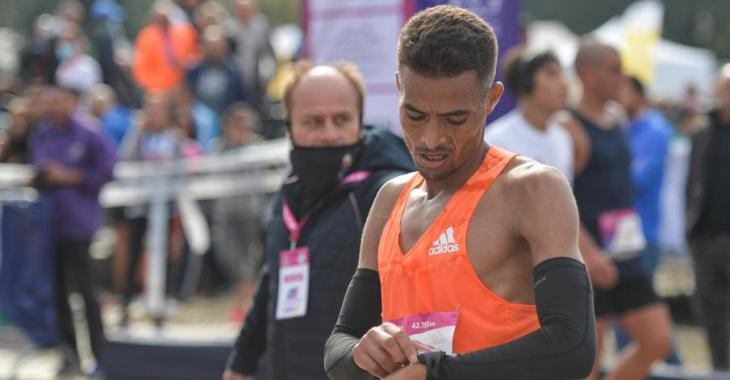
“The AIU has provisionally suspended Viktoriia Khapilina and Youssef Sbaai for the presence of recombinant EPO, in violation of World Athletics Anti-Doping rules following in-competition tests,” the AIU said in a statement.
(11/19/2020) ⚡AMPby Hugh Lawson
Wizz air Sofia Marathon
The home of Sofia Marathon was founded thousands of years ago and today it continues to develop as the country’s cultural and economic centre. Sofia is Bulgaria’s capital and one of the oldest capitals in Eastern Europe.Sofia has been settled for many millennia. In honour of its hot springs, which you should visit after running the marathon in Sofia, in...
more...Srinu Bugatha is set to defend his title at Delhi Half Marathon
Srinu Bugatha will be back to defend his title as the Indian winner in the Elite men’s category at the 16th Airtel Delhi Half Marathon later this month against strong challenge from the likes of Avinash Sable and Abhishek Pal.
Bugatha also won the Tata Mumbai Marathon earlier this year while Pal won the title in 2018, edging past Sable in a close finish in the final five kilometres.
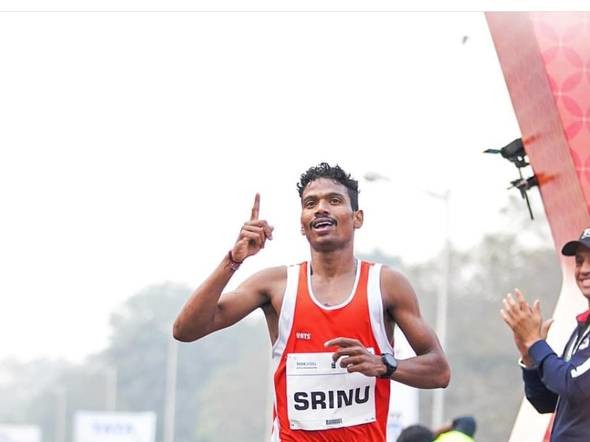
Sable is the current National record-holder in 3000m steeplechase and is training for Tokyo next year, having already qualified for the Games.
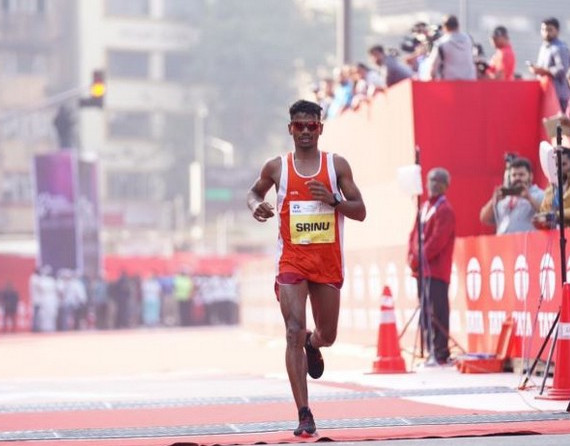
Monika in the fray
The competition among the women will be tougher with former winner Monika Athare, last year’s runner-up Parul Chaudhary, Chinta Yadav and Sanjivani Jadhav in the fray.
While Parul won the Half Marathon race at the Mumbai Marathon this year with a new course record, Monika finished third.
Registrations for all race categories are open till November 27 on the event website airteldelhihalfmarathon.procam.in
(11/19/2020) ⚡AMPby Uthra Ganesan
Vedanta Delhi Half Marathon
The Airtel Delhi Half Marathon is a haven for runners, creating an experience, that our citizens had never envisaged. The streets of Delhi converted to a world-class running track. Clean, sanitized road for 21.09 kms, exhaustive medical support system on the route, timing chip for runners, qualified personnel to ensure smooth conduct of the event across departments. The race...
more...Boston champ Lawrence Cherono can't wait for December 6 when he lines up against 16 other marathoners at the Valencia Marathon
Reigning Chicago and Boston marathon champion Lawrence Cherono can't wait for December 6 when he lines up against 16 other marathoners at the Valencia Marathon.
Cherono says he has missed road races after this year's Boston and Chicago marathons were cancelled due to the Covid-19 pandemic.
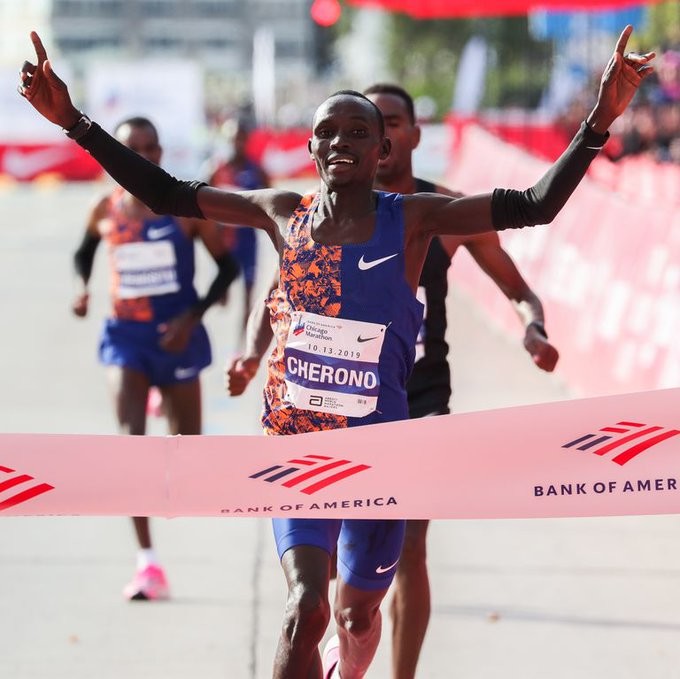
“Waiting for a whole year to compete is torture but we can’t blame anyone because this was due to the virus. I consider myself lucky because I will be able to compete in this marathon after a long time out of action. Many athletes could have wished to compete but that never came,” Cherono said.
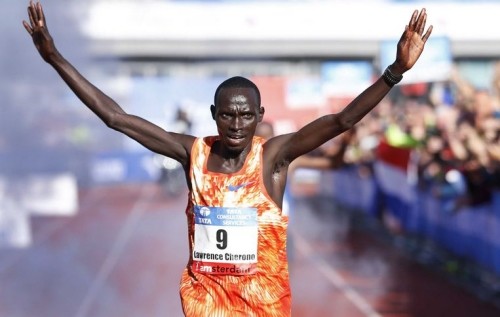
Despite inactivity, Cherono has been working hard in training to keep in shape despite the challenges experienced by the sports sector — athletics included.
“I shifted to Iten from Kaptagat after the government closed all training camps and I have been training in anticipation for a chance to compete before the year ends,” the two-time Amsterdam Marathon winner said.
He has been running a distance of 30-35km a day to ready himself for a podium push in Valencia.
Cherono will also be part of the Olympics marathon team that includes Olympic marathon winner Eliud Kipchoge and Kipruto.
Other Kenyans that will be battling for the marathon title in Valencia include world marathon bronze medallist Amos Kipruto (2:05:43), Abel Kirui (2:05:04), Reuben Kiprop (2:04:40) and Philemon Rono (2:05:00).
(11/19/2020) ⚡AMPby Emmanuel Sabuni
VALENCIA TRINIDAD ALFONSO
The Trinidad Alfonso EDP Valencia Marathon is held annually in the historic city of Valencia which, with its entirely flat circuit and perfect November temperature, averaging between 12-17 degrees, represents the ideal setting for hosting such a long-distance sporting challenge. This, coupled with the most incomparable of settings, makes the Valencia Marathon, Valencia, one of the most important events in...
more...2021 Austin Marathon has been postponed due to the coronavirus
Amid the coronavirus pandemic, an annual marathon has been postponed and a half marathon canceled in Austin for 2021 after discussions with local officials and health experts.
The Ascension Seton Austin Marathon was supposed to take place in February, but now is slated for April 25, along with the KXAN Simple Health 5K and the Manzano Mile, according to High Five Events. The 3M Half Marathon was supposed to happen in January but was canceled entirely.
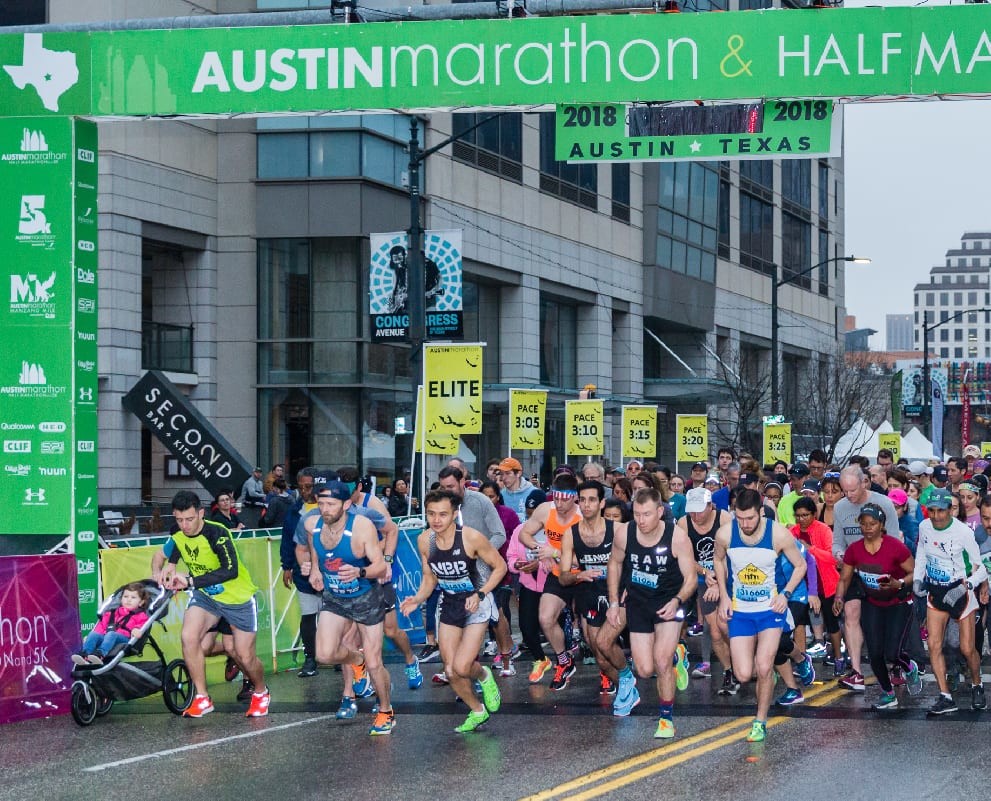
“High Five Events is optimistic that the April 25th event can be held in-person based on the conversations and collaborative efforts with The City of Austin and Austin Public Health. Extensive mitigation plans for the new event date have been completed and are based on the Austin-Travis County COVID-19 Risk-Based Guidelines Stages 1-4,” High Five Events wrote in a release.
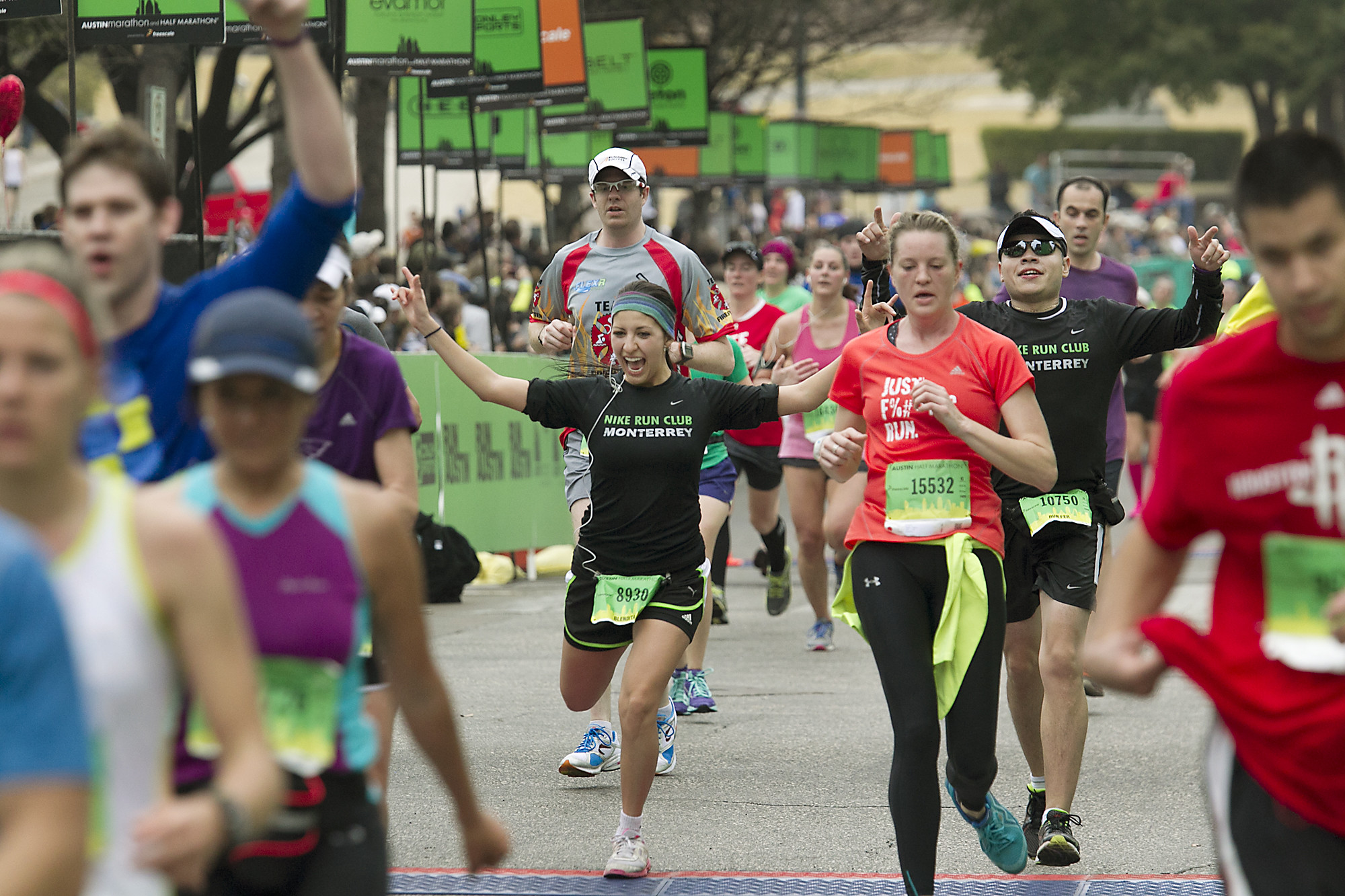
Austin Marathon participants can transfer their spot for free to the new date, or defer to 2022, 2023 or 2024 marathons. 3M Half Marathon participants can also defer to another year without cost.
Participants will still have access to the Run Austin Virtual series, which the organization is hoping to extend through April. The series started in July and includes a variety of distances and themes. A 10K was planned for November and a 10 mile run for December.
(11/19/2020) ⚡AMPby Kate Winkle
Austin Marathon Weekend
The premier running event in the City of Austin annually attracts runners from all 50 states and 20+ countries around the world. With a downtown finish and within proximity of many downtown hotels and restaurants, the Austin Marathon is the perfect running weekend destination. Come run the roads of The Live Music Capital of the World where there's live music...
more...A look at why running in the dark can feel that you are running faster
The clocks went back over the weekend, which means that your evening runs might have gone from dusk to full-on dark this week.
Running in the dark produces a strange phenomenon that most runners notice – you feel like you’re going faster. It seems that by removing the spatial cues that we get when it’s light out, our perception of pace changes. We can sometimes feel like we’re running way faster than we actually are.
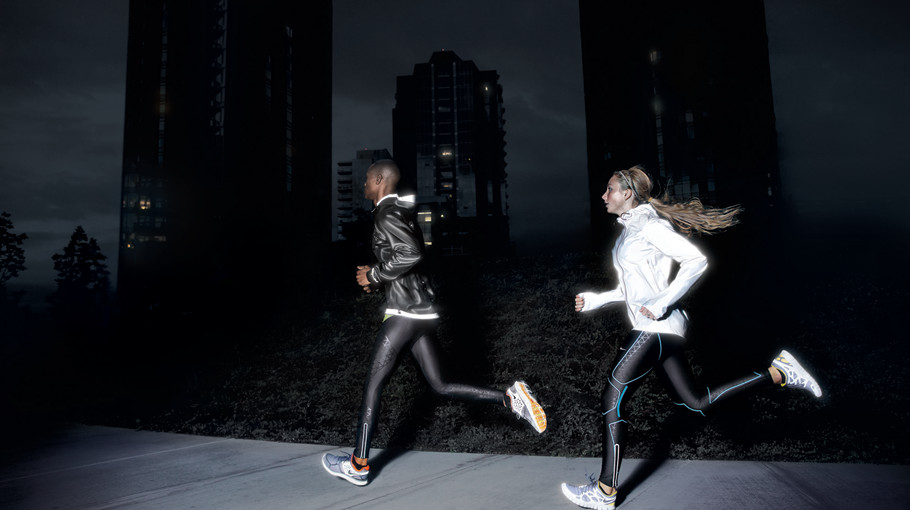
A 2012 study of cyclists looked at something called optic flow influence and how this changes our perceived effort. Perceived effort is basically how hard we feel we’re working, although it can be different from the actual effort (as seen when comparing outdoor running to treadmill running). Optic flow creates a perception of movement relative to someone’s surroundings.
Through trials on a stationary bike, the researchers found that when the subjects’ surroundings were going by them more quickly, they felt like they were working harder and going faster (even if they weren’t). Conversely, they didn’t feel like they were working very hard when the scenery was going past them more slowly.
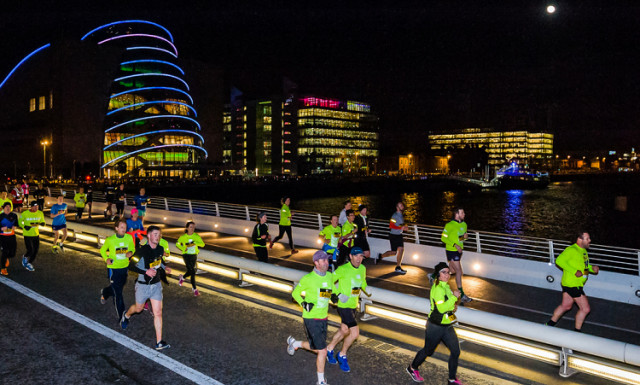
This same phenomenon can happen at night. Because we can only see objects when they’re close to us, it feels like our surroundings are passing us quickly, making us feel like we’re running faster.
When you get home from a run that you thought was blazing fast only to discover that it was your normal (if not slower than normal) pace, know that it’s not your fitness failing you, it’s the optic flow influence.
Another 2014 study, which had runners complete three 5K time trials using different optic flow rates, came to the same conclusion regarding the rate of perceived exertion, but took things one step further. These researchers also looked at how optic flow changes the runners’ perception of the distance they’d run. When things were coming at them quickly, as they do at nighttime, they would stop short of 5K, guessing that their run was over.
On average, when the optic flow was sped up, runners assumed they’d reached 5K of running about 400m before they had. When optic flow was slowed down, runners guessed their run was over about 1K after it actually was.
Both of these studies help explain many runners’ feeling that workouts in the dark can feel faster and go by more slowly than those runs in the light. While this doesn’t necessarily change your training, it’s something you can anticipate during the first week of November, after the return from daylight time to standard time.
(11/18/2020) ⚡AMPby Madeleine Kelly
Chris Nikic has made history becoming the first person with Down's syndrome to finish an Ironman triathlon
A 21-year-old triathlete from Florida has become the first person with Down's syndrome to finish an Ironman event - swimming 2.4 miles, cycling 112 miles and running a 26.2-mile marathon.
Chris Nikic crossed the line in 16 hours 46 minutes nine seconds - less than 14 minutes under the official cut-off time at the Visit Panama City Beach Ironman in Florida - to earn official recognition from Guinness World Records.
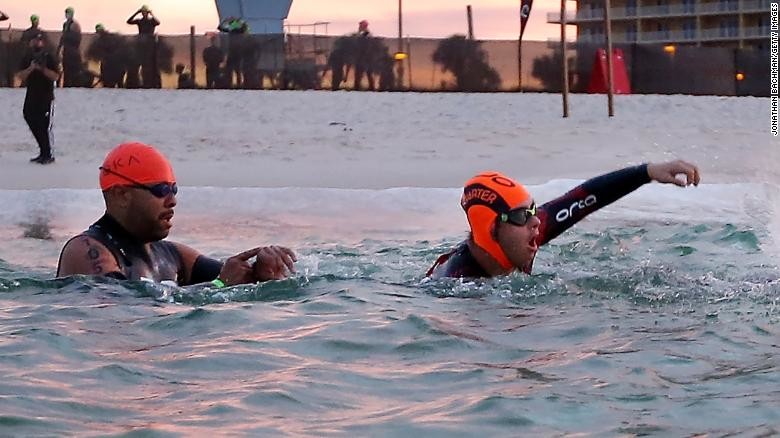
"You have shattered barriers while proving without a doubt that anything is possible," the official Ironman account tweeted.
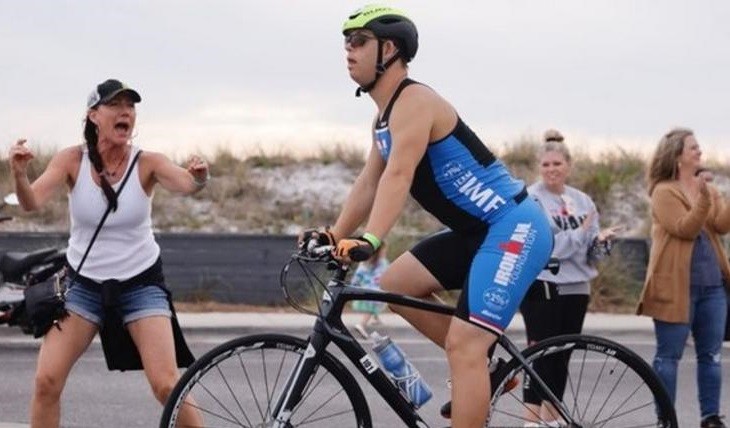
Chris Nikic begins the swimming portion of the Ironman Florida.
"Ironman. Goal set and achieve," said Nikic in a post to Instagram. "Time to set a new and Bigger Goal for 2021."
Nikic completed the race in 16 hours 46 minutes and 9 seconds -- 14 minutes under the 17-hour cutoff time.
Nikic fell off his bike and was attacked by ants at a nutrition stop, but he pushed on to finish the competition, the Special Olympics said in a release.
"We are beyond inspired, and your accomplishment is a defining moment in Ironman history that can never be taken away from you," the Ironman Triathlon organization said in a post to Twitter.
The organization documented the historic race with a series of updates to social media on the day of the competition. The final two miles of Nikic's run were streamed live on Ironman's Facebook page.
Chris Nikic competes in the bike portion with his guide, Dan Grieb, during Ironman Florida.
Nikic and his father Nik developed the "1 percent better challenge" to stay motivated during training. The idea is to promote Down syndrome awareness while achieving 1% improvement each day, according to Nikic's website.
"To Chris, this race was more than just a finish line and celebration of victory," Nik Nikic said. "Ironman has served as his platform to become one step closer to his goal of living a life of inclusion and leadership."
Nikic's accomplishment earned him congratulatory messages from celebrities, such as tennis great Billie Jean King and runner Kara Goucher, and people around the world, including 33,000 new followers on social media, according to Nikic.
After his record-setting achievement, Nikic will focus on competing in the 2022 Special Olympics USA Games and continuing to raise money for Special Olympics, Down syndrome and RODS (Racing for Orphans with Down Syndrome) through his platform.
"I achieved my goal and now I want to help others like me," he wrote to Instagram.
(11/18/2020) ⚡AMPby Kelsie Smith, CNN
Atlanta Track Club will be hosting this year’s Running of the AJC Peachtree Road Race virtually for the first time in its 51-year history
With a long and respected legacy of hosting Atlanta's most prestigious endurance events, Atlanta Track Club will be hosting this year’s Running of the AJC Peachtree Road Race virtually for the first time in its 51-year history. Despite not running or walking down Peachtree Road with 60,000 other participants in 2020, race organizers are building a virtual experience that will deliver an unforgettable and authentic Peachtree.
To launch this premier virtual event to participants in all 50 states and 31 countries, Atlanta Track Club looked to their partner haku for fully unique and completely customized technology solutions. haku, the Miami-based technology company, has become the industry leader in bringing the world’s most prestigious endurance events to life, such as the recent 124th Boston Marathon Virtual Experience.
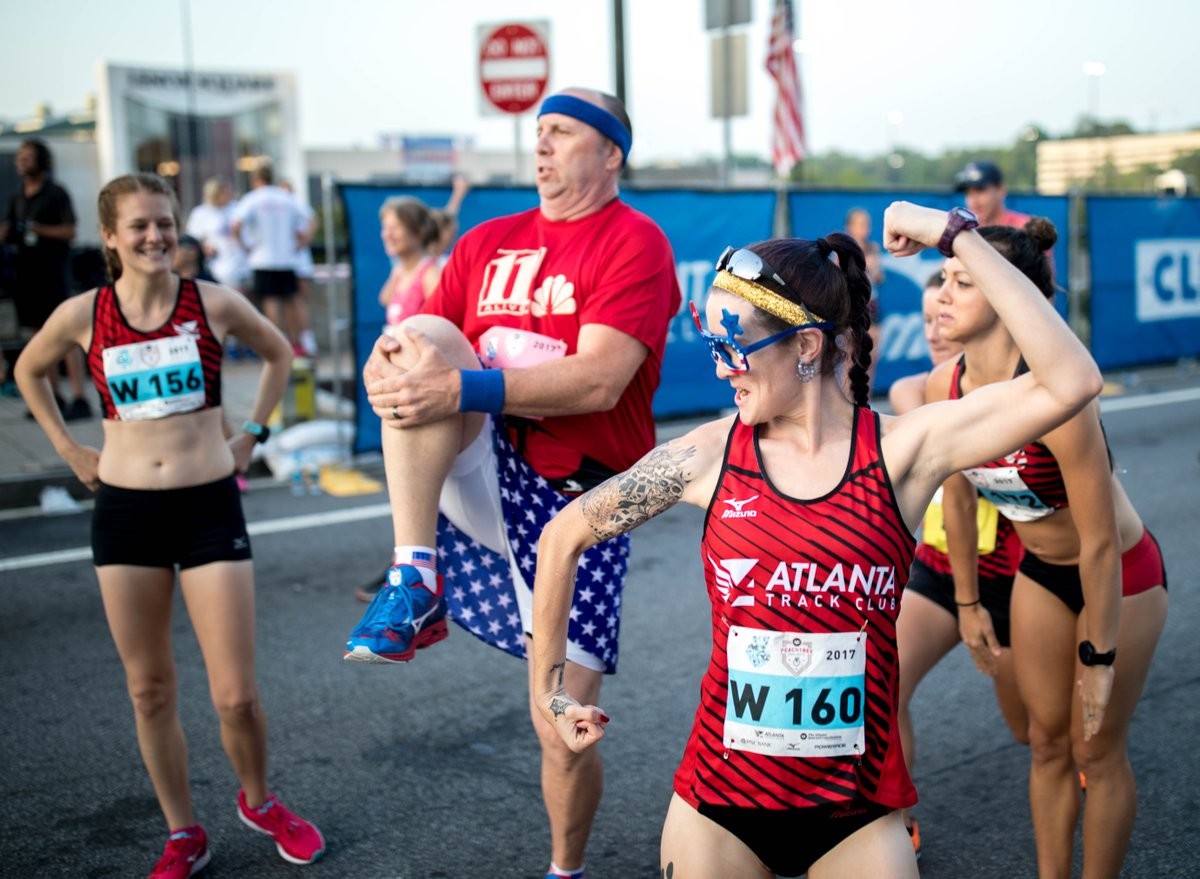
"While we all will miss the sights and sounds of the Peachtree, we are confident haku will help us keep the storied Peachtree tradition going another year," said Rich Kenah, Atlanta Track Club’s Executive Director and Race Director of the AJC Peachtree Road Race. "We saw it through haku's work with the Boston Marathon that they understand the deep-seeded rituals associated with this race and have the ability to build unique and successful virtual events for thousands of runners at a time."
Creating an immersive event app for the Virtual Running of the AJC Peachtree Road Race with haku was an important focus in bringing this event to thousands of participants around the world. The app will have many innovative features to drive a memorable and engaging experience. Participants will be able to track their progress on the course, upload and compare results, engage with their community, and much more. To stay true to tradition, the Club also worked with haku to incorporate audio cues into the app’s race day experience to simulate the sounds that a runner would typically hear during the annual road race and provide encouraging messages from Olympian Meb Keflezighi, 2017 Peachtree Champion and U.S. Olympic Team Trials – Marathon Champion Aliphine Tuliamuk and World Record Holder Daniel Romanchuk.
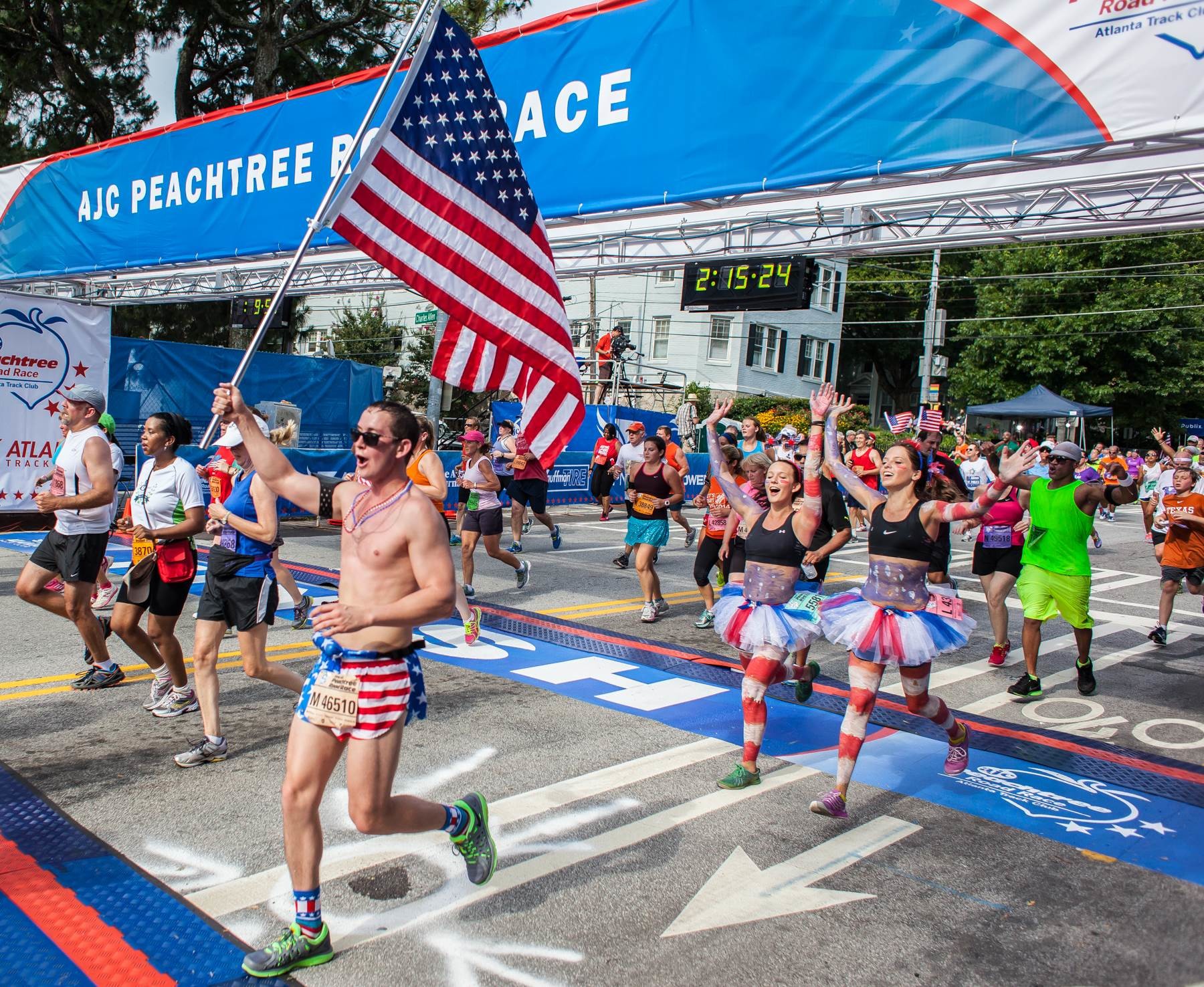
"Building the app with haku was a collaborative process. There were no rigid set of features that we had to adhere to. The app is fully customized for the AJC Peachtree Road Race participants," said Kenah. "haku has been great about meeting our particular needs and the whole process couldn't have been easier."
Atlanta Track Club and haku are excited to kick off this spectacular event at the end of November, which will deliver a unique Atlanta-centric experience rooted in tradition.
"The passion and dedication that the Atlanta Track Club has shown for this event are immeasurable," said haku Founder and CEO, Carlos Escobar. "The Virtual Running of the AJC Peachtree Road Race will make every participant and spectator feel like they're truly still a part of this 50-year long tradition."
After an extensive search, ATC chose to move forward with haku as its new technology partner in late 2019 after seeing haku’s unique capability of providing truly bespoke technology for its partners. Through their partnership, the organizations are looking forward to introducing new innovative event technology that will drive significant participant engagement, streamline operations, and provide extraordinary experiences for Running City USA.
"We're excited to be able to provide a more user-friendly, clean, and elevated experience for our members and volunteers," said Kenah. "In working with haku, we’re now able to have a better understanding of the people who interact with the Club, which will enable us to deliver more unique and personalized experiences."
The Virtual Running of the AJC Peachtree Road Race will begin on Thanksgiving Day, November 26. Participants can submit their results between 12:01 a.m. on Thursday, November 26 and 11:59 p.m. on Sunday, November 29.
(11/18/2020) ⚡AMPAJC Peachtree Road Race
The AJC Peachtree Road Race, organized by the Atlanta Track Club, is the largest 10K in the world. In its 48th running, the AJC Peachtree Road Race has become a Fourth of July tradition for thousands of people throughout the metro Atlanta area and beyond. Come kick off your Fourth of July festivities with us! If you did not get...
more...Africa cross country silver medalist Leonard Barsoton is now eyeing New Delhi Half Marathon
Fresh from competing at the World Half Marathon in Gdynia, Poland, former Africa cross country silver medalist Leonard Barsoton is now eyeing honors in New Delhi Half Marathon.
In an interview, Barsoton said his mission in New Delhi will not only be to win the title but also to improve on his 59:09 personal best.
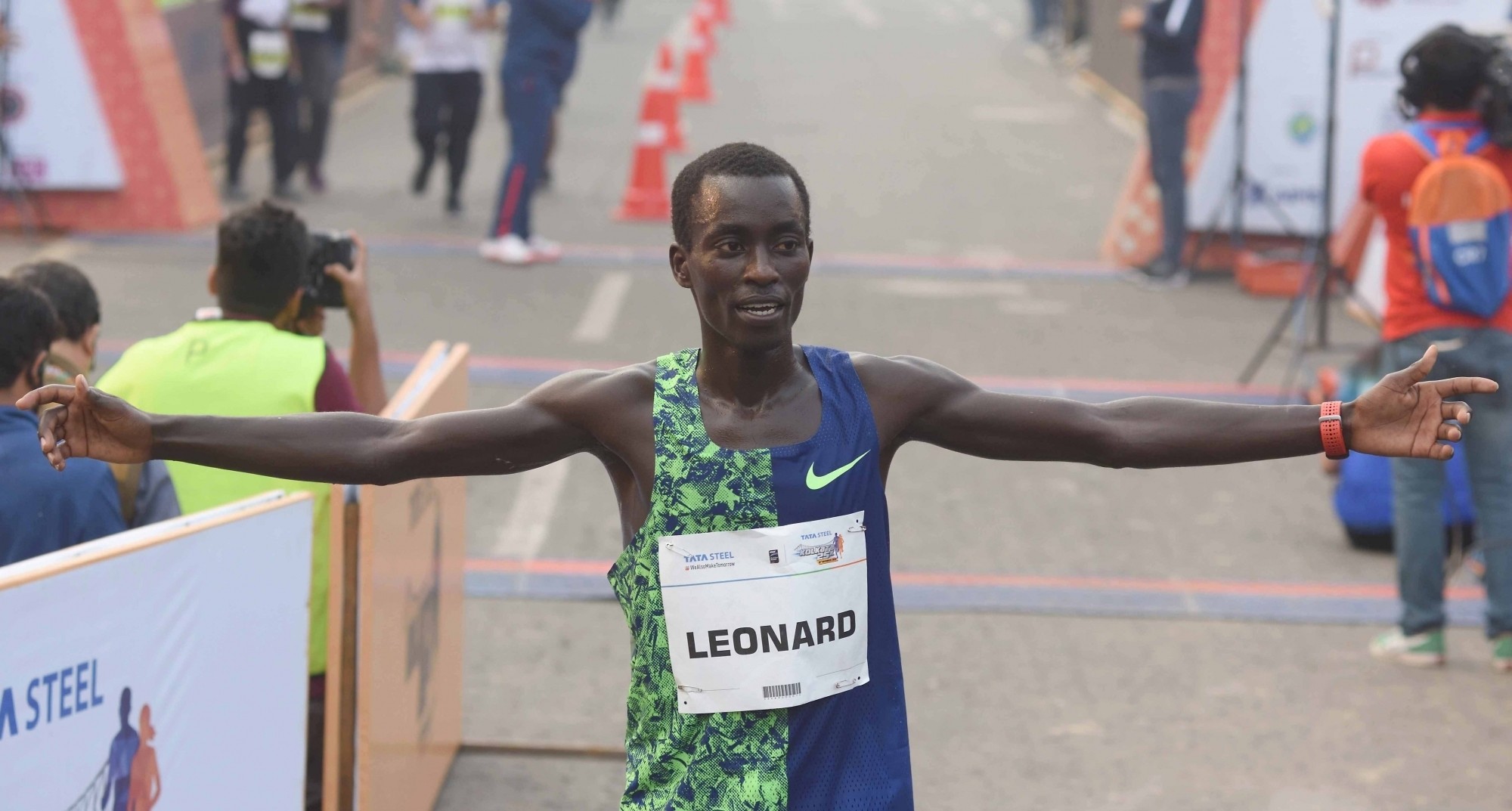
“I am working towards this and I am sure come the New delhi event, I will be ready,” said Barsoton.
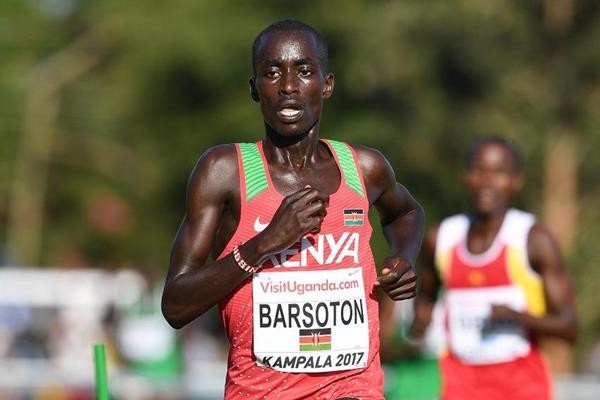
The New Delhi race will be his third this year after finishing sixth at the Ras Al Khaimah (RAK) Half Marathon and winning Kolkata 25km road race, where he lowered Ethiopia’s Kenenisa Bekele’s
“This will be my first race after World Half Marathon and I know I am capable of pulling it off,” he noted.
Barsoton, who is also the Africa Games 10,000m silver medalist, bragged that he is an all weather runner hence he is not worried of the harsh climatic conditions in New Delhi.
Barsoton will enjoy the company of fellow Kenyans Josphat Boit (59:19) and Edwin Kiptoo (59:26).
Others in the race are Abraham Cheroben (Bahrain) and Ethiopia’s Guye Adola, Amdework Walelegn, Andamlak Belihu and Solomon Berihu.
(11/18/2020) ⚡AMPby Emmanuel Sabuni
Vedanta Delhi Half Marathon
The Airtel Delhi Half Marathon is a haven for runners, creating an experience, that our citizens had never envisaged. The streets of Delhi converted to a world-class running track. Clean, sanitized road for 21.09 kms, exhaustive medical support system on the route, timing chip for runners, qualified personnel to ensure smooth conduct of the event across departments. The race...
more...Two-time Olympic 800m champion Caster Semenya takes a new step in appeal
Two-time Olympic 800m champion Caster Semenya‘s lawyer said her team will take her case to the European Court of Human Rights, hoping to reverse a rule that would force her to take testosterone-suppressing measures to compete in her best events.
“We will be taking World Athletics to the European Court of Human Rights, and public support goes a long way to help show how the rules from World Athletics are against public interest,” Greg Nott said in a statement Tuesday. “With growing support from institutions and bodies across the globe, we remain hopeful that World Athletics will see the error it has made and reverse the prohibitive rules which restrict Ms. Semenya from competing.”
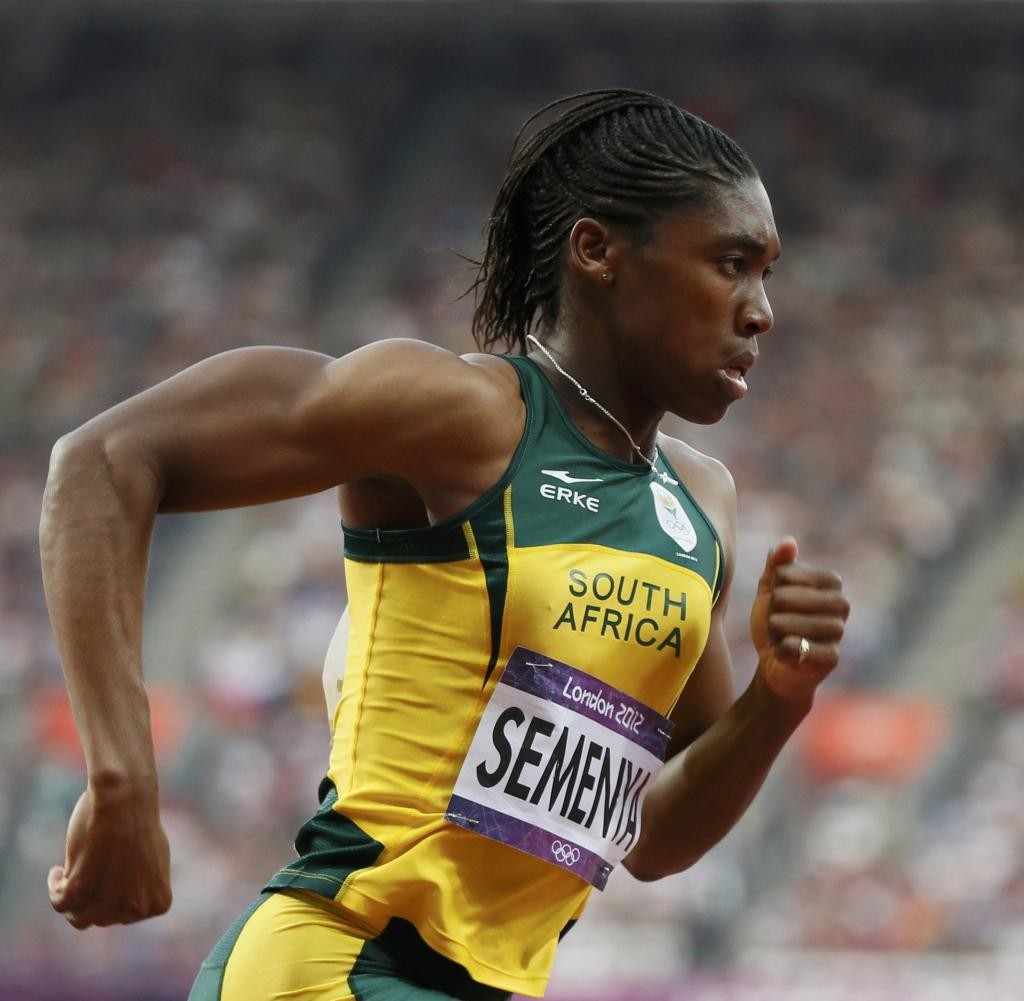
In the last two years, Semenya lost appeals through the Court of Arbitration for Sport and the Federal Supreme Court of Switzerland.
Semenya said she refused “to let World Athletics drug me or stop me from being who I am,” in a press release in September, after losing her Swiss court appeal. “Excluding female athletes or endangering our health solely because of our natural abilities puts World Athletics on the wrong side of history. I will continue to fight for the human rights of female athletes, both on the track and off the track, until we can all run free the way we were born. I know what is right and will do all I can to protect basic human rights, for young girls everywhere.”
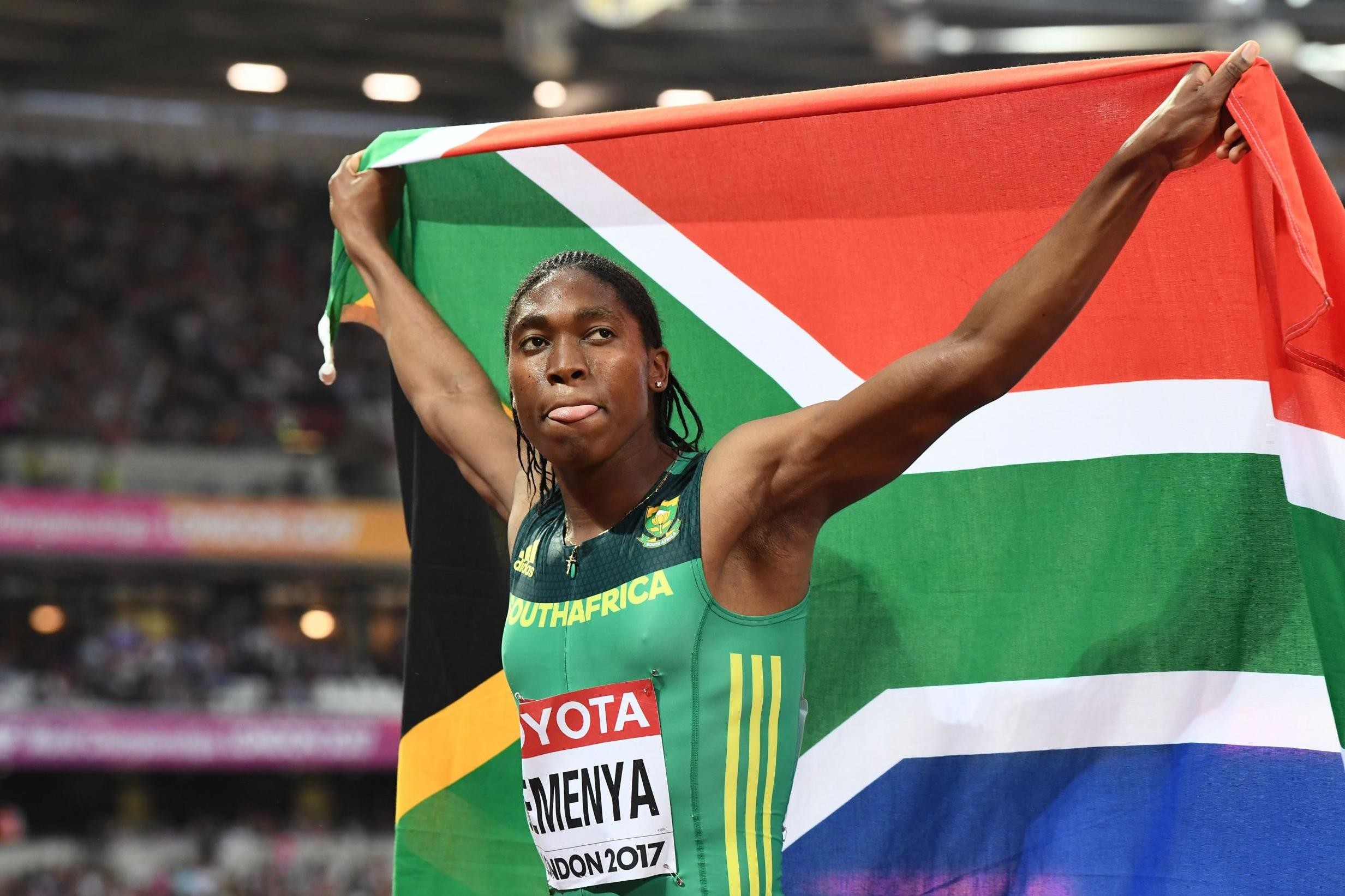
The World Athletics rule, which went into effect in 2019, caps athlete testosterone levels in women’s events from the 400m through the mile for athletes with differences of sexual development (DSD). World Athletics said that no female athletes would have a level above the cap — five nanomoles per liter — unless they had a DSD or a tumor.
“Throughout this long battle, World Athletics has always maintained that its regulations are lawful and legitimate, and that they represent a fair, necessary and proportionate means of ensuring the rights of all female athletes to participate on fair and equal terms,” World Athletics said in a statement after the Swiss court ruling. “It has rejected the suggestion that they infringe any athlete’s human rights, including the right to dignity and the right to bodily integrity.”
Last March, Semenya announced she switched to the 200m, a distance outside of the new testosterone-cap rule, to pursue Tokyo Olympic qualification. Her personal-best 200m time is shy of automatic Olympic qualification.
Semenya is undefeated at 800m since the start of 2016. She and the other two Rio 800m medalists have said they are affected by the new rule.
(11/17/2020) ⚡AMPby OlympicTalk
2021 Napa Valley Marathon has been cancelled due to the pandemic
The 43rd Annual Kaiser Permanente Napa Valley Marathon and Half Marathon has officially been cancelled as an in-person event for 2021. The NVM board of directors made this difficult decision as they continued to monitor updates from county and state agencies regarding the global coronavirus (COVID-19) pandemic. The governance board cited an abundance of safety as the primary reason for cancelling the event.
“Our highest priority is always the safety of our participants, volunteers, spectators, and residents,” said Race Director Michelle La Sala. “We are deeply saddened by the decision to cancel, but we’re confident that it is the responsible choice for our community.”
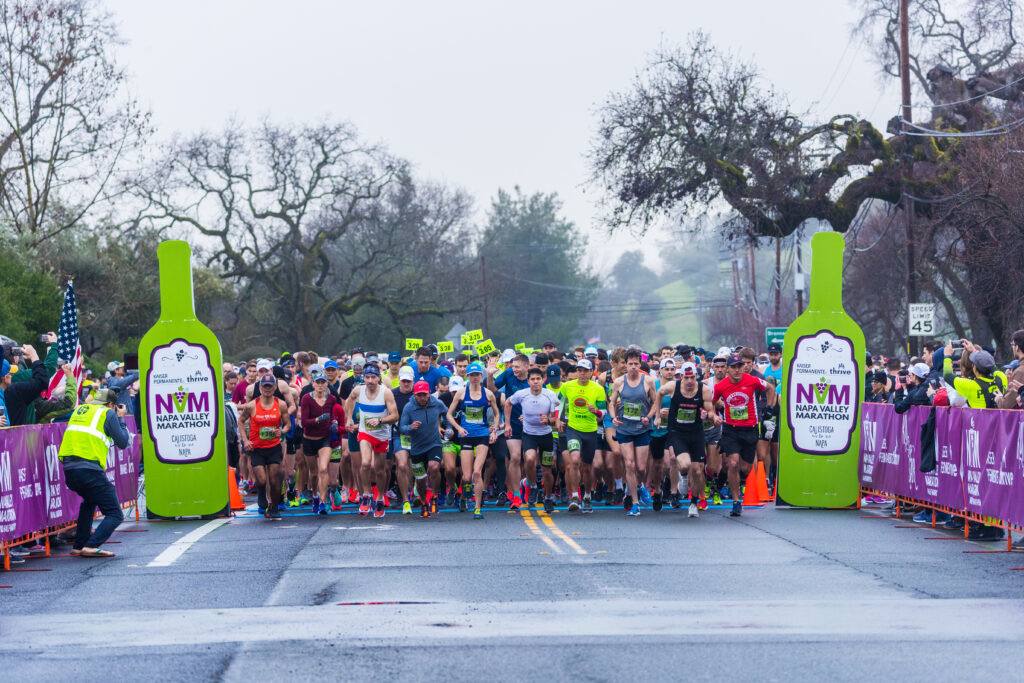
California’s comprehensive reopening plan does not allow mass gatherings until the final reopening phase when a vaccine is widely available. Race organizers say that even if the state began allowing mass participation events early next year, there would not be enough time to secure proper permits and infrastructure to guarantee a safe event.
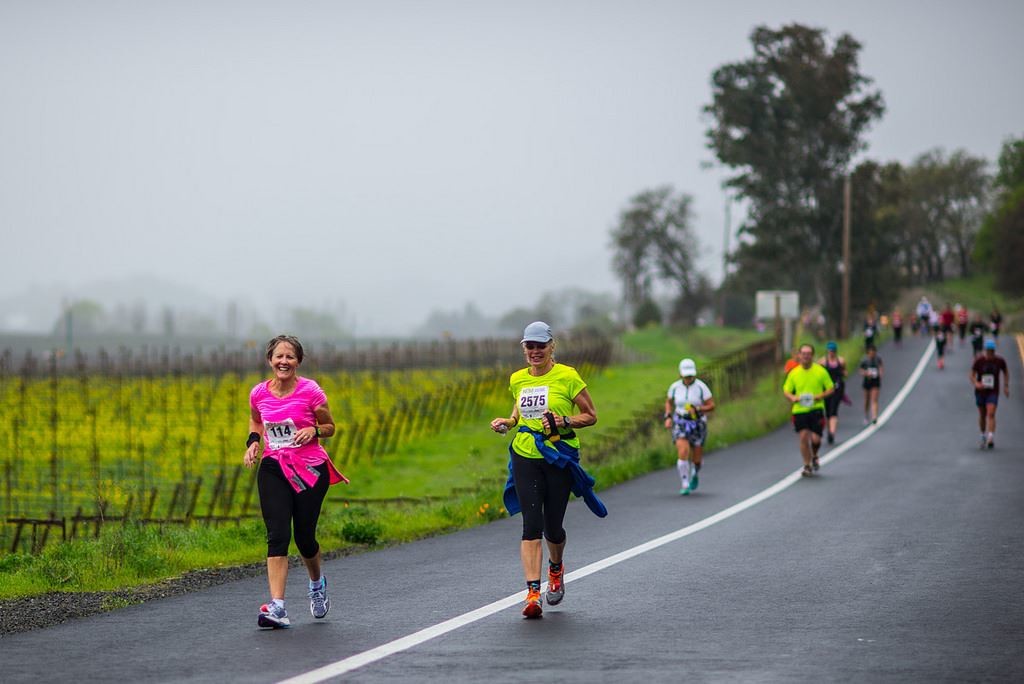
Several hundred participants were already registered for the 2021 via the organization’s “Whine Stopper” Registration plan, which guaranteed participants deferral to either the 2022 or 2023 race free of charge. All 2021 entrants will be contacted when registration opens for the 2022 event and asked to make their deferral choice. There is no action required of 2021 entrants at this time.
Napa Valley Marathon officials state that a virtual race experience will replace the 2021 in-person event, with details to come in the near future.
“We’re excited to unveil a virtual experience that really captures the spirit of the Napa Valley,” said La Sala. “It’s important for us to find ways to keep our community engaged and continue to support our local nonprofits, and I think our participants will find it very unique and engaging.”
Napa Valley Marathon, Inc. is a nonprofit organization that typically provides nearly $30,000 in support back to the local community. The organization points to the development of their new virtual experience as one avenue to raise revenue for their charitable giving.
(11/17/2020) ⚡AMPKaiser Napa Valley Marathon
As one of California's top tourist destinations, Napa Valley has been home to this race for decades. When it comes to scenic, it just doesn't get better than Napa in the spring. The narrow valley is covered in grape vines that stretch high up the hillsides on either side. The colors are crisp green, blue and yellow at that time...
more...2021 Paris Marathon rescheduled to be run October 17
Next year’s Paris marathon will be held on Oct. 17, six months later than scheduled, amid the COVID-19 crisis, organisers said on Tuesday.
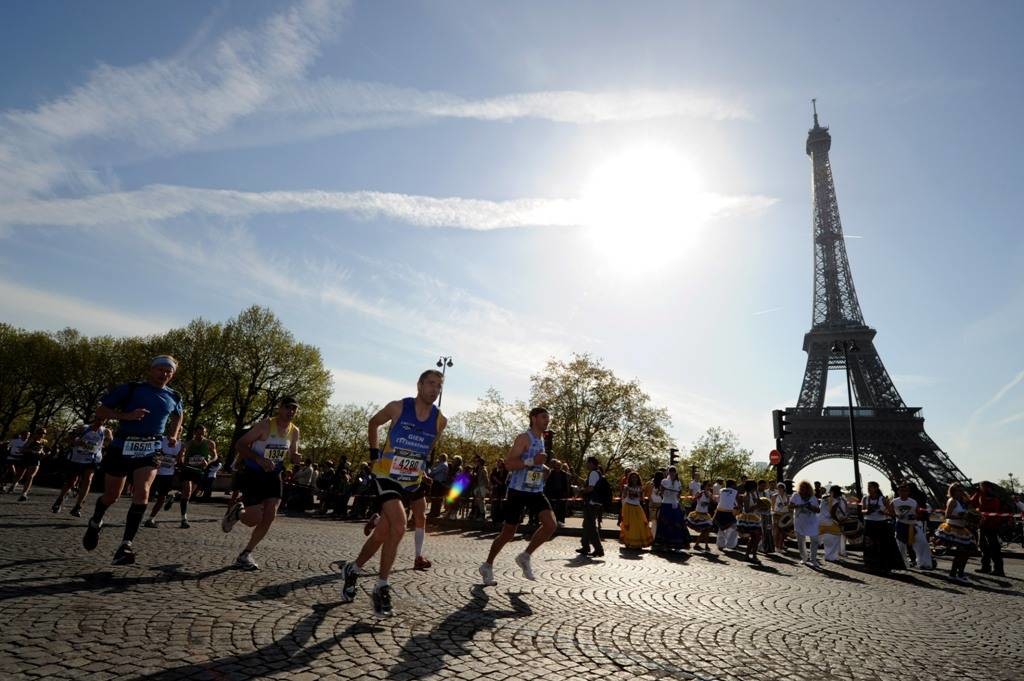
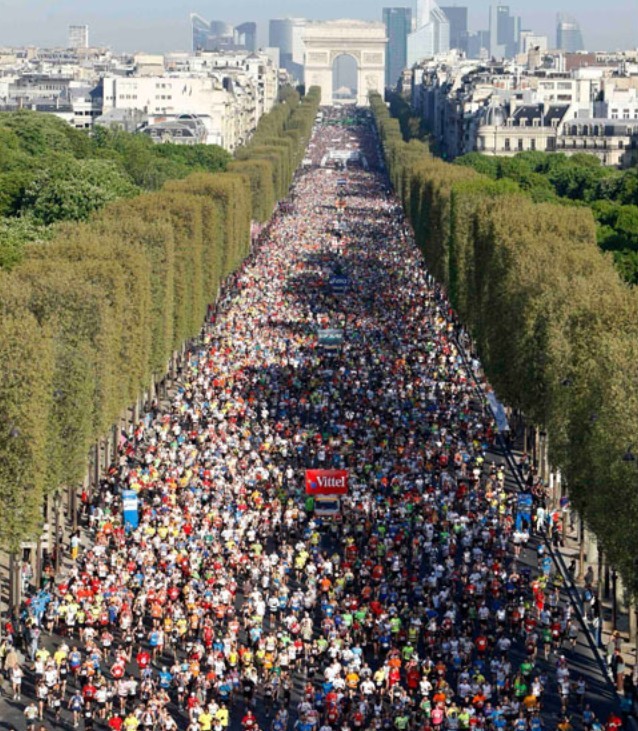
“Every effort will be made to ensure that the autumn race takes place in safe conditions and in strict compliance with the health regulations in force,” Amaury Sport Organisation (ASO) said in a statement.
This year’s event had already been cancelled because of the pandemic, and the 2021 race was initially scheduled to take place on April 11.
(11/17/2020) ⚡AMPSchneider Electric Paris Marathon
The Schneider Electric Marathon de Paris offers a unique opportunity to make the city yours by participating in one of the most prestigious races over the legendary 42.195 km distance. The Schneider Electric Marathon de Paris is now one of the biggest marathons in the world, as much for the size of its field as the performances of its runners....
more...Kenya’s Olympic 3000m steeplechase champion Conseslus Kipruto pleads not guilty to the charges
Olympic steeplechase champion pleads not guilty to the charges
Kenya’s Olympic 3000m steeplechase champion Conseslus Kipruto has been released on bail after pleading not guilty to charges of defilement.
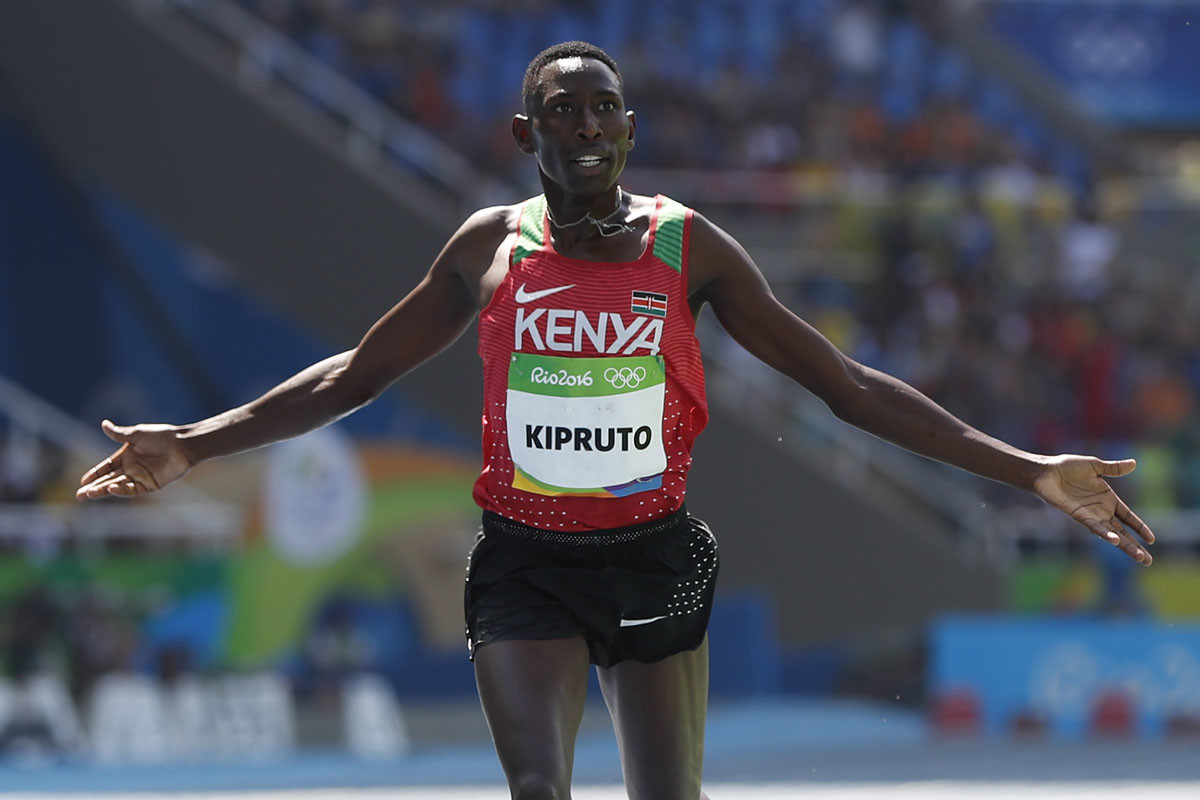
Reports state that Kipruto, who is a policeman, has been charged with having sexual intercourse with a 15-year-old girl.
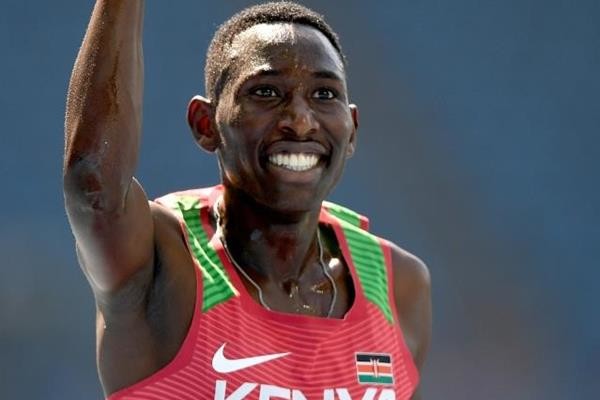
According to the BBC his case is set to be heard in May 2021, just a couple of months before the Tokyo Olympics at which the 25-year-old would have planned to defend his title.
As well as gaining gold at the Rio 2016 Olympics, Kipruto has also won two world steeplechase titles as well as two world silver medals and Commonwealth gold.
In 2020 he had been due to race at the Diamond League meeting in Monaco but he was forced to withdraw after testing positive for coronavirus.
(11/17/2020) ⚡AMPby Athletics Weekly
The Rock 'n' Roll Nashville Marathon and Half Marathon scheduled for Saturday has been canceled due to the rising number of COVID-19 cases in the area.
The 21st annual event, which starts on Lower Broadway and finishes at Nissan Stadium, originally was scheduled for April 25, but was postponed because of the pandemic.
In October, race officials announced the event, which routinely draws about 50,000 participants and spectators, would be scaled down this year and not include the 6.15-mile run, 5K, 1-mile run/walk and Doggie Dash.
On Monday, however, the announcement came that the race has been canceled altogether and will return April 25, 2021.
Ironman, owner of the marathon, released a statement:
"In meetings leading up to the event, the regional safety and health authorities were satisfied that the Rock ‘n’ Roll Marathon Series’ proposed health and safety measures were well designed, and that participants, staff and the wider public would have been sufficiently protected from potential COVID-19 transmission. However, following a recent increase in cases across the greater Nashville region, we regret to share that the Rock ‘n’ Roll Nashville event cannot take place in 2020."
Registered participants of the 2020 Rock ‘n’ Roll Nashville Marathon and Half Marathon will receive an email with further details.
(11/16/2020) ⚡AMPSt. Jude Rock N Roll Nashville Marathon & 1/2 Marathon
The St. Jude Rock ‘n’ Roll Nashville Marathon & 1/2 Marathon (formerly St. Jude Country Music Marathon & 1/2 Marathon) gives you the opportunity to enjoy an up close and personal tour of Music City, one of the New York Times’ top destinations in the world! Run through the Honky Tonks of Lower Broadway and take a musical tour through...
more...The Tokyo 2020 Olympics may have limited spectators but the Games will be held at any cost in 2021
The head of the International Olympics Committee (IOC) has said he is "very confident" that spectators will be able to attend the Tokyo Olympic Games next year.
Thomas Bach added that the IOC would take "great efforts" in making sure fans were vaccinated before arriving.
He is currently in Japan to discuss how the Olympics can be held next year.
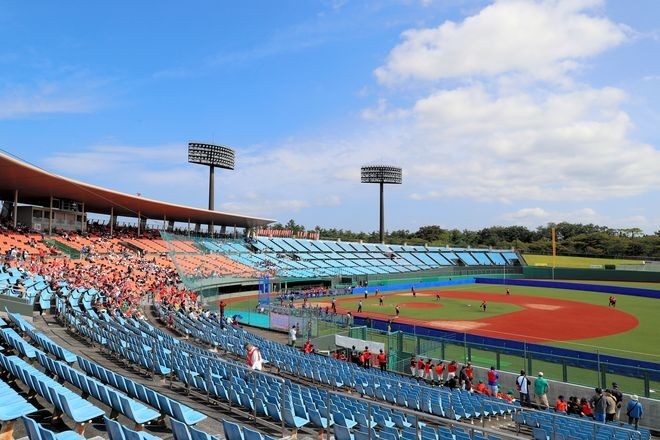
The Tokyo Games were originally due to start in July, but were postponed for a year due to the coronavirus outbreak.
More than 11,000 athletes from around 200 countries had been scheduled to take part in the Games, now due to begin in July 2021.
"We are putting really a huge tool box together in which we will put all the different measures we can imagine," Mr Bach told reporters after meeting Japan's Prime Minister Yoshihide Suga, according to news agency AFP.
"This makes us all very, very confident we can have spectators in the Olympic stadium next year."
Mr Bach said he was 'very confident' some fans would be able to attend
Mr Bach's visit comes after Tokyo held a one-day gymnastics meet earlier this month, an event which saw several thousand fans and 22 athletes from various countries participate.
The international athletes were quarantined for two weeks prior to arriving in Japan and were largely kept in their Tokyo hotel in isolation. They were also required to take daily PCR tests - the virus test that has been used most commonly globally.
Tokyo Olympics will happen 'with or without Covid'
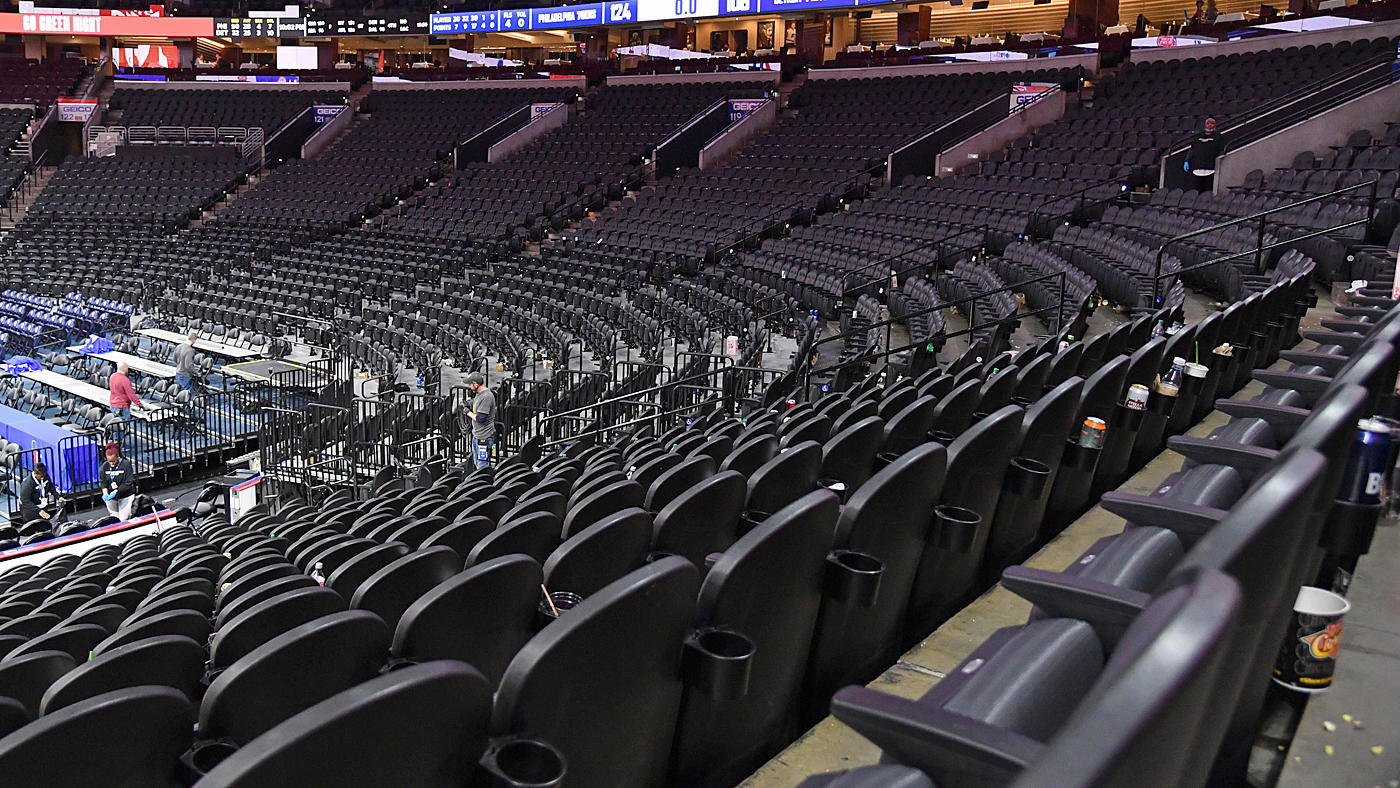
Both Japan and the IOC have stressed that the Games will go ahead next year.
Japan's Tokyo 2020 chief executive Toshiro Muto said earlier this year they wanted to avoid the possibility of having no spectators at all at the Games, adding it was possible events might be held with a "limited" audience, while the number of staff and delegates from each country could also be reduced.
Earlier last week, Mr Bach was asked if he was going to Tokyo to talk about contingencies for cancelling the Games, to which he firmly replied "no", with his deputy earlier vowing that the Games would go ahead "with or without Covid".
Japan's Olympic minister Seiko Hashimoto similarly said that they must be held "at any cost" in 2021.
There are now hopes that an effective vaccine against Covid-19 could be available within the next year, with a preliminary analysis showing that a vaccine by Pfizer and BioNTech could prevent more than 90% of people from getting the virus.
(11/16/2020) ⚡AMP
Tokyo 2020 Olympic Games
Fifty-six years after having organized the Olympic Games, the Japanese capital will be hosting a Summer edition for the second time, originally scheduled from July 24 to August 9, 2020, the games were postponed due to coronavirus outbreak, the postponed Tokyo Olympics will be held from July 23 to August 8 in 2021, according to the International Olympic Committee decision. ...
more...Over one million people in the US normally run a 5k or 10k on Thanksgiving morning but not this year
Thanksgiving Day has long been the most popular day in the U.S. to run a race. Every year more than 1 million people lace up their shoes and take off on a 5K or 10K run somewhere in the country before sitting down to a big meal. And this year?
“I don’t think you’ll find a live event anywhere in California,†said Michelle Lindner, organizer of Turkey Trot Los Angeles, which typically starts at City Hall in downtown L.A. That assertion is mostly true. Websites for a few races in Orange County say they’ll host in-person events with staggered start times and social-distancing rules.
Most turkey trots in Southern California, however, are keeping the race tradition alive with virtual runs. If you haven’t done one, here’s how it works: You sign up and then pick the route, time and date for your personal 5K or 10K. You can run alone or with someone in your COVID-19 bubble but not in a group. (L.A. County limits outdoor group gatherings to three households.)
And because it’s virtual, many races are encouraging people to not only run but also walk, bike, treadmill or ride your Peloton; it all counts.
(11/16/2020) ⚡AMP2020 Delhi Half Marathon (Nov 29th) Is Loaded As Usual – 12 sub-60 men and 9 sub-70 women will compete
Race promoters Procam International are happy to announce that defending champions Andamlak Belihu and Tsehay Gemecu will return to the Airtel Delhi Half Marathon for the 16th edition of this prestigious World Athletics Gold Label Road Race on Sunday 29 November.
The Ethiopian pair will both be aiming for an unprecedented third successive victory in the Indian capital.
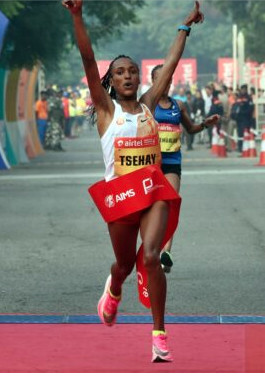
“I have been training well in (the Ethiopia capital) AddisAbaba for the last couple of months and I am very thankful to have the opportunity to race in Delhi, a city I always enjoy returning to and racing in,” commentedBelihu, who will turn 22 just over a week before race day.
“This has been a difficult year, for everyone around the world, not just professional athletes, due to the COVID-19 pandemic and I have been training alone much more than that I am normally used to but my fifth place at the World Athletics Half Marathon Championships in Poland last month has assured me that I am in good shape and I am confident I can put up a good defence of my title,” he added.
Belihu’s compatriot Guye Adola still holds the ADHM course record with 59:06 that the latter clocked in 2014 but Belihu has gone very close in the last two years with 59:18 and a personal best 59:10 in 2018 and 2019 respectively.
He will be aiming to finally go into new territory on the streets of Delhi, perhaps even going under 59 minutes, and confirm his place as the most successful runner in ADHM history after having also placed second in his race debut in 2017.
An unprecedented 13 men in the ADHM 2020 elite field have run under the world class benchmark of one hour, and five of them have actually run faster than Belihu in their careers including Adola who returns to Delhi for the first time since his record run six years ago.
The fastest man in the field is Bahrain’s 2018 World Athletics Half Marathon Championships silver medallist Abraham Cheroben, who holds the Asian record for the distance with 58:40.
Two other men to watch will be the Ethiopian pair of Amdework Walelegn, who was second in Delhi last year and also took the bronze medal at 2020 World Athletics Half Marathon Championships last month, and 2017 and 2019 world 5000m champion Muktar Edris, who will be making his half marathon debut.
Last year, Tsehay Gemechu improved her own women’s course record from 2018 by no less 50 seconds when she ran a stunning personal best of 66:00
Ideally, Gemechu would like to go even faster this year but, like so many runners around the world, her training and racing this year have been hugely impacted by the COVID-19 pandemic.
“COVID-19 is a disaster which has affected everyone’s life all over the globe and, definitely, it has affected my training, not least in the early stages of the pandemic when we were all fearful of infection. Later, my coach and I decided to take care of ourselves, taking into account all the advice from the World Health Organisation, and I started my own individual training programme with my main goal of coming back to Delhi, although since September I have had some races on the track,”reflected Gemechu, who will turn 22 in December.
“Like all the athletes who will be coming to Delhi, I’d like to express my thanks to the race promoters Procam International who have committed their time and effort and invested their money in making sure this race goes ahead while we all respect the appropriate health measures,” sheadded.
Gemechu will have a host of outstanding rivals in this year’s race, arguably the strongest women’s field ever seen in the history of the ADHM with seven women having run under 67 minutes.
Among them are two of her compatriots, Yalemzerf Yehualaw and Netsanet Gudeta.
The in-form Yehualaw finished second in the ADHM 2019, just one second behind Gemechu, and showed she’s a rising star of women’s distance running by finishing third at the World Athletics Half Marathon Championships last month in a personal best of 65:19. Gudeta, the 2018 world half marathon champion. was eighth in Poland but helped Ethiopia to team gold.
Both the men’s and women’s races have a first prize cheques of US$27,000 with a total prize money purse (combined men and women) of US$233,270.
The ADHM 2020 will be unlike any previous edition with an estimated 60 elite international and Indian runners in action on the Delhi roads, with the traditional start and finish still in the Jawaharlal Nehru Stadium. The event will follow the highest level of safety and hygiene standards with bio-secure zones to ensure a COVID-19 free race.
Non-elite runners of all abilities will have the chance to participate virtually from any location, running at any time between 25-29 November via the ADHM App. Details of how to download and use this app can found on the ADHM 2020 website airteldelhihalfmarathon.procam.in
Procam International Pvt. Ltd. A-262, 1st Floor, Defence Colony, New Delhi – 110024. India, Tel. +91112433 5984/85/86 Fax +911141634836
Elite fields for the Airtel Delhi Half Marathon 2020 (with personal bests)
Men
Andamlak Belihu (ETH) 59:10
Abraham Cheroben (BRN) 58:40
Guye Adola (ETH) 59:06
Amdework Walelegn (ETH) 59:08
Leonard Barsoton (KEN) 59:09
Solomon Berihu (ETH) 59:17
Josphat Boit (KEN) 59:19
Edwin Kiptoo (KEN) 59:26
Stephen Mokoka (RSA) 59:36
Abrar Osman (ERI) 59:47
Aron Kifle (ERI) 59:51
Dawit Wolde (ETH) 59:58
Women
Tsehay Gemechu (ETH) 66:00
Yalemzerf Yehualaw (ETH) 65:19
Ruth Chepngetich (KEN) 65:30
Netsanet Gudeta (ETH) 65:45
Evaline Chirchir (KEN) 66:01
Brillian Kipkoech (KEN) 66:56
Irene Cheptai (KEN) 67:39
Mimi Belete (BRN) 68:16
Failuna Matanga (TAN) 69:36
Nazret Weldu (ERI) 70:51
Tsigie Gebreselama (ETH) debut
Hawi Feysa (ETH) debut
Eva Cherono (KEN) debut
(11/15/2020) ⚡AMPby Lets Run
Osaka International Women's Marathon to Be Held Jan 31 With Limited Field
On Nov. 11 the organizers of the Osaka International Women's Marathon announced that the race's 40th anniversary running will take place on Jan. 31, 2021. Along with strict anti-coronavirus health check requirements for all participants, the field size will be limited by tightening Osaka's usual sub-3:10 qualifying standard to sub-2:50. Fans, supporters and locals will also be asked to watch the race on TV instead of turning out to cheer courseside.
A spokesperson for the organizing committee commented, "We expect the sub-2:50 qualifying time to reduce the field size from about 500 to around 100. We had originally planned to have more runners for the race, but we hope that people can understand the necessity of these restrictions. We hope that the race will show greater than ever unity in women's marathoning and its willingness to take on the challenges leading to the Olympics."
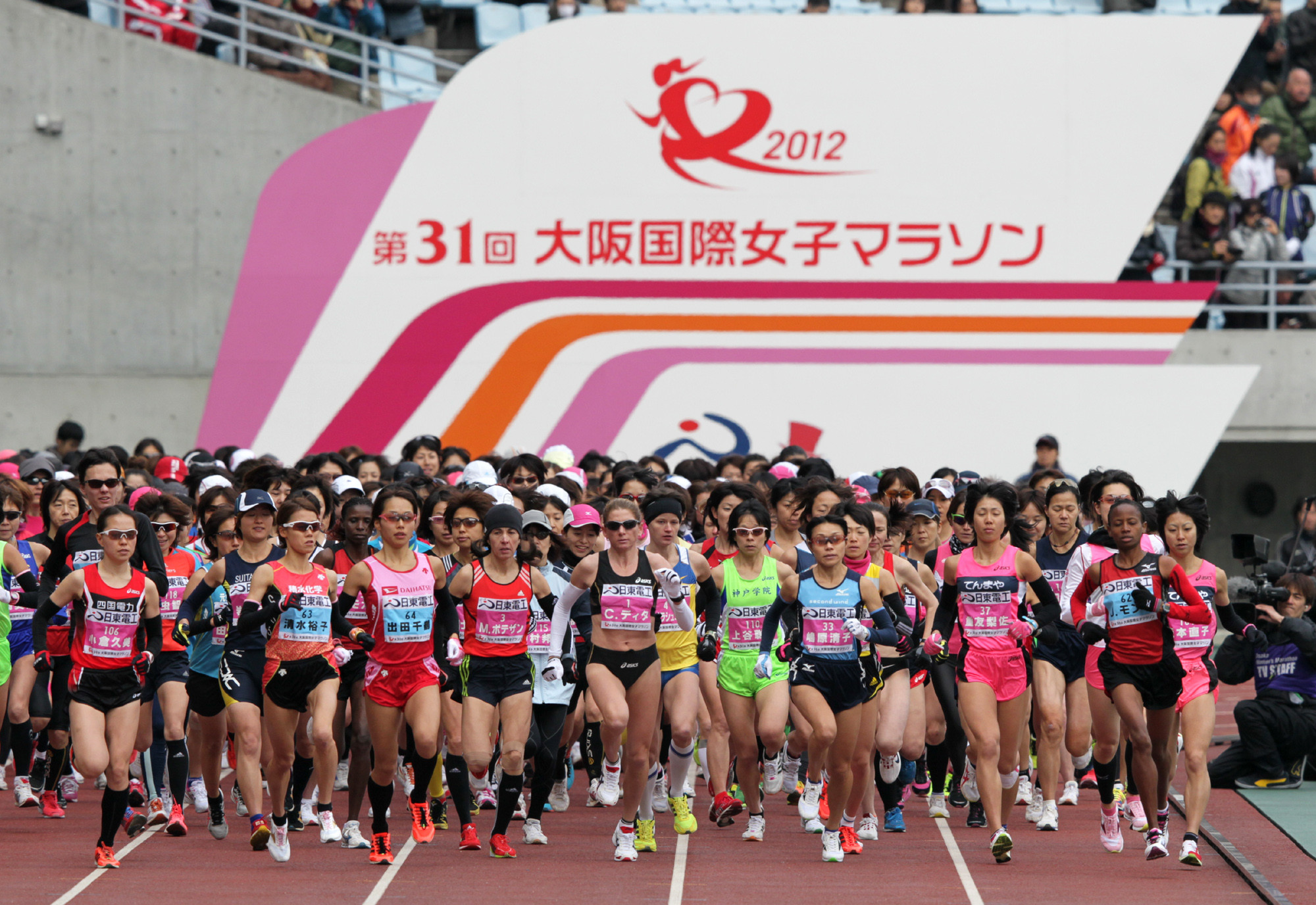
The domestic invited elite athlete field is scheduled to be announced in late December. The race will begin at 12:10 p.m. on Jan. 31, 2021 starting and finishing at Osaka's Yanmar Stadium Nagai. The half marathon usually staged alongside the marathon has already been canceled for 2021.
(11/15/2020) ⚡AMPby Japan Running News
Golden Ultra sells out 500 spots in 5 hours
After a wave of registrations in just a few hours, anyone who put off signing up for the 2021 Golden Ultra was sorely disappointed
After opening registration for the 2021 Golden Ultra, event organizers were shocked to see their race’s 500 slots all filled in just five hours. Athletes could register as of 9 a.m. MST on November 2, and by mid-afternoon, anyone looking to run the Golden, B.C., event was out of luck. With the fields set (and 150 runners on the packed waiting list), the race will make its return September 17 to 19, 2021, after organizers were forced to cancel this year’s event due to COVID-19.
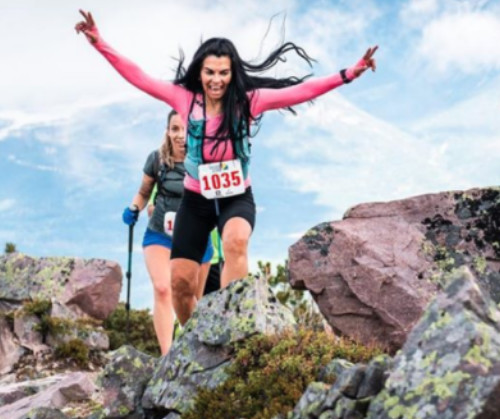
The Golden Ultra is a three-day stage race. The stages — titled Blood, Sweat and Tears — are 88K, a little under 60K and 22K. Since all runners aren’t necessarily up for a three-day ultra event, participants can run as many or as few of the stages as they like. Magi Scallion founded the race in 2015, and it has been a hit on the Canadian ultra calendar ever since.
In February, it was announced that Scallion had sold the race to the TransRockies Race Series. This year would have been the first edition of the event under new owners, but the pandemic put that milestone on hold until 2021. While this was unfortunate and disappointing for everyone involved, it did give organizers the chance to focus on next year’s race, and race director Kevin McDonald says they will be ready to hold a COVID-friendly run in September.
“I do think there’ll be COVID restrictions in the fall,” he says. “I like the fact that our race is in late September, but we still have a plan in place to make it safe for everyone.” This includes wave starts, adjustments at the various checkpoints throughout the race and restrictions at the end of each stage.
McDonald says they could host up to 700 runners, but with the uncertainty of the coronavirus, they didn’t want to accept too many this far out from the event. “We did a self-imposed cap of 500 runners,” he says. While he and the TransRockies team expected high engagement when they opened registration, McDonald says they weren’t anticipating the race to fill up so quickly. “We have race ambassadors throughout North America, so there was good buzz on social media, but you can never predict something like this.”
(11/15/2020) ⚡AMPby Running Magazine
Notre Dame’s Anna Rohrer and 2:12 Marathoner Jonas Hampton Join Team B.A.A.
The Boston Athletic Association (B.A.A.) today announced the addition of Anna Rohrer and Jonas Hampton to the B.A.A. High Performance Team. Rohrer, an eight-time All-American at Notre Dame, and Hampton, the eighth place finisher at February’s U.S. Olympic Trials – Men’s Marathon, will be coached by B.A.A. High Performance Coach Mark Carroll in Boston. The B.A.A.’s High Performance Team is sponsored by adidas.
“With Anna and Jonas joining our team, we add great experience and strong competitors to the B.A.A. High Performance Team,” said Coach Carroll. “Anna comes to us after a highly successful collegiate career where she was at the front of most NCAA races she competed in. Jonas joins us as a road racing specialist with a breakthrough performance at the 2020 Olympic Marathon Trials. We welcome them to the B.A.A. family and look forward to both competing in the B.A.A. uniform for their professional careers.”
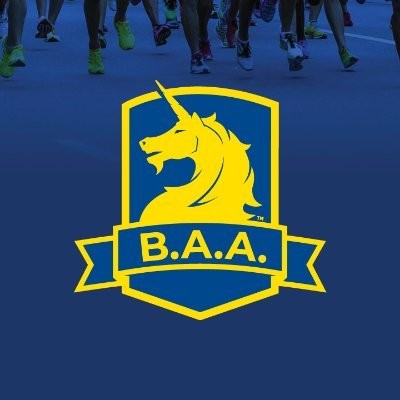
Rohrer joins the B.A.A. after graduating from the University of Notre Dame, where she was an eight-time NCAA All-American in cross country, indoor, and outdoor track. Specializing in the 5,000-meters and 10,000-meters, Rohrer has lifetime best times of 15:29.83 (5,000-meters, indoors) and 31:58.99 (10,000-meters, a school record). She most recently finished sixth at the 2019 NCAA Outdoor Track & Field Championships 10,000m. Rohrer was a 5-time ACC conference champion, and twice won the Foot Locker Cross Country National Championship in high school.
“I am thrilled to join the B.A.A. High Performance Team to continue my career and take my running to the next level,” said Rohrer, a native of Mishawaka, Indiana. “As someone who aspires to move up to the marathon in the coming years, I can’t think of a better place to be than in the city that is home to one of the most renowned marathons in the world.”
Hampton returns to the B.A.A. following a career-best eighth place finish at the 2020 U.S. Olympic Trials – Men’s Marathon in February. On the challenging Olympic Trials course in Atlanta, Hampton clocked a personal best marathon time of 2:12:10. Hampton is a two-time Olympic Trials Marathon qualifier and has run under 2:16 in the marathon four times, including a 2:14:19, 15th-place finish at the 2018 Chicago Marathon. A graduate of the University of Hartford, Hampton is the 2015 Hartford Marathon champion.
“I am happy to be back with the B.A.A. family again and working with Coach Carroll and a great group of teammates,” said Hampton. “Boston and New England has a strong history of marathoners, and I am excited to see if I can be a part of that history and put Boston back on the map for having some of the best marathoners in the country.”
The B.A.A.’s High Performance team supports American runners on their way towards making international teams, with the goal of competing at the highest level: the Olympic Games, World Athletics Championships, and Abbott World Marathon Majors. The B.A.A. is sponsored by adidas, which provides comprehensive support for the organization’s High Performance team, running club, and mass-participatory events.
Personal bests for both Rohrer and Hampton, can be found below, along with a complete list of B.A.A. High Performance Team members.
(11/15/2020) ⚡AMPby Lets Run
MASON FERLIC OUTKICKS PAUL CHELIMO TO WIN MEN'S 8-KILOMETER RACE AT XC TOWN USA MEET OF CHAMPIONS
Mason Ferlic, the 2016 NCAA Division 1 3,000-meter steeplechase champion and an assistant coach at the University of Michigan, pulled off a huge upset in raw, wet conditions in the men's elite/college/open 8-kilometer race Saturday at the LaVern Gibson Cross Country Championshipship Course in Indiana.
Ferlic and his long strides pulled away from 2016 Olympic 5,000-meter silver medalist Paul Chelimo over the final 1,000 meters to earn an impressive victory at the XC Town USA Meet of Champions, presented by the Garrett Companies.
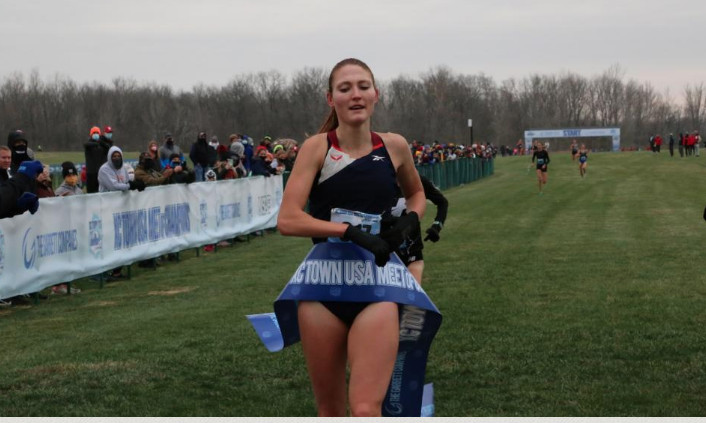
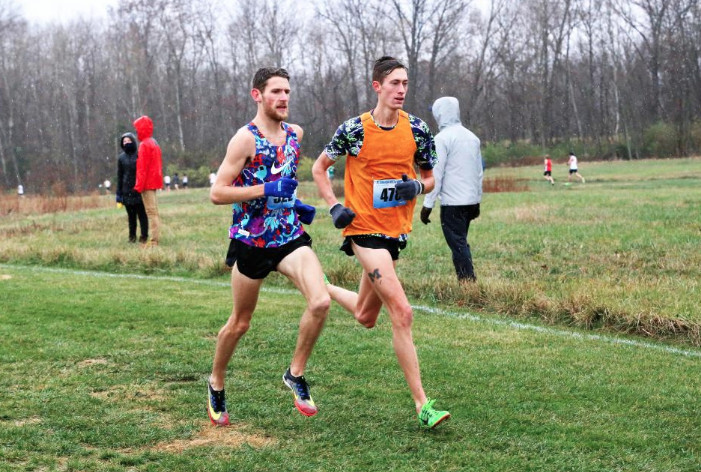
Ferlic and Michigan State runner Morgan Beadlescomb clung to Chelimo, while a large pack assembled behind them.
"That was a fun race," Ferlic said. "Morgan, Paul and I were duking it out since pretty much the first half mile. (I) felt really strong today. Paul was throwing in some surges early. I kind of expected that. It's his racing style. I just stayed patient, absorbed that and realized the guys were hurting a little bit more than I was, and opened it up and put the hammer down with about a K to go."
Although Beadlescomb led Michigan State to the team victory, with the group competing as Go Green placing five athletes in the top 32 to score 27 points, several Wisconsin individuals racing unattached had a strong performance behind the top trio, with Jack Meijer (23:54.6), Jackson Sharp (23:54.8), Shuaib Aljabaly (23:56.8) and Olin Hacker (23:57.8) finishing fourth through seventh overall.
The women's 6-kilometer race that began the two-day event featured a dramatic kick to the finis
Amy-Eloise Markovc, a former University of Washington star, surged past Huntington University (NAIA) sophomore Emma Wilson to win in 20:17.3. Wilson was second in 20:18.7.
"Honestly, it's just a really nice boost of confidence," said, Markovc, who competed in her first event since running a 5,000-meter race Aug. 22 at the Sound Running Sunset Tour in Lake Balboa, Calif.
"We're really just in fall training right now, which includes a lot of mileage and tempos and fartleks and that sort of thing, so we're not really focusing on speed. It was really nice and comforting to see that strength come through, and just knowing that my consistency over the past couple of years has really paid off."
Four years ago on the same course, Markovc placed eighth in the 2016 NCAA Cross Country Championships. Wilson also placed eighth for Greencastle High in the Indiana state final at LaVern Gibson that same fall.
The following year, Markovc took second at the 2017 Division 1 championship meet at E.P. "Tom" Sawyer Park in Louisville, and Wilson won the first of her two Indiana state titles at LaVern Gibson.
Michigan sophomore Ericka VanderLende, who took 25th to earn All-America honors at last year's Division 1 final at LaVern Gibson, was third Saturday in 20:28.8. Michigan State junior Jenna Magness, 46th last season at the NCAA Championships, finished fourth in 20:34.1 and Indiana senior Kelsey Harris rebounded from placing 196th at last year's Division 1 final to secure fifth in 20:42, followed by teammate Sarah Schmitt (20:53.4) in sixth after she secured 58th place at the NCAA final.
Wisconsin, competing as B1G Mack, had five athletes place in the top 30 overall to win the team competition. Lucinda Crouch led the way for the Badgers by finishing seventh in 20:58.2. Crouch took 96th at last year's Division 1 championship race.
Concerns over the Coronavirus appeared to take some toll on the fields. Of the 112 women entered late in the week, 92 finished the race. In the men's race, 154 finished out of 178 names on the start list. Both races were populated by open competitors and college athletes running unattached.
Ferlic's kick drove him to a 10-second victory (23:43.4) over Chelimo (23:53.3), Beadlescomb (23:54.3) and four athletes from Wisconsin who broke 24 minutes.
(11/15/2020) ⚡AMPKenya’s Elijah Motonei Manangoi banned for doping offence
Kenyan middle-distance athlete Elijah Manang'oi has been banned for two years for a doping offence.
Athletics Integrity Unit (AIU) had on July 23 flagged down the 2017 World 1,500m champion over whereabouts failures.
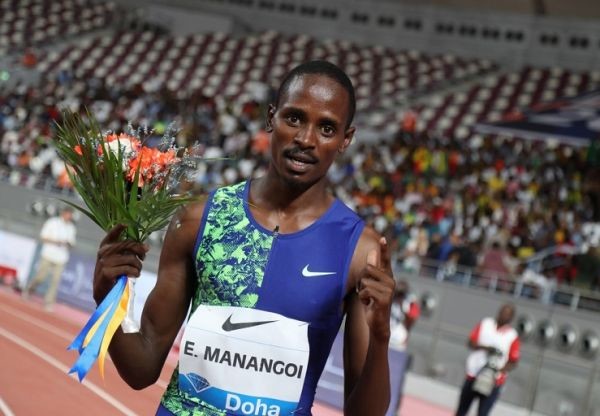
But AIU has since found Manang'oi guilty and banned him for two years starting December 22, 2019 - which is the date of third whereabouts failure - to December 21, 2021.
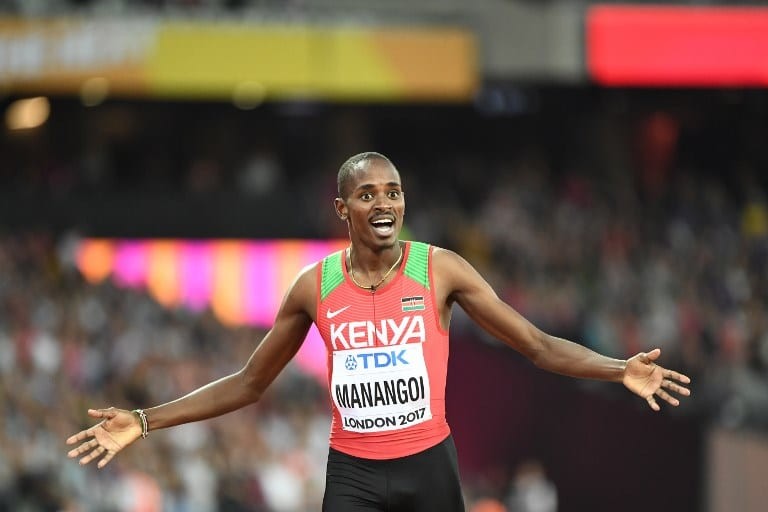
"Disqualification of all competitive results obtained by the athlete since 22 December 2019 with all resulting consequences, including the forfeiture of any titles, awards, medals, points prizes and appearance money," read the ruling from AIU.
Manang'oi had three missed tests in the 12-month period beginning on July 3, 2019 followed by November 12 and December 22 of the same year.
In the first incident, Manang’oi asserted that, on July 2, 2019, his connecting flight from Frankfurt to Nairobi had been delayed and as a consequence he only arrived in Nairobi at around 11pm on July 2 2019.
Manang'oi claimed that his luggage did not arrive with him from his original departure destination (San Francisco) and that his house key was in his luggage.
No negligence
Manang’oi stated that he had tried to change his Whereabouts information but “couldn’t do because time couldn’t allow because it was already past midnight”. As he did not have his house keys, he had stayed in the nearest airport hotel which led in turn to his missed test in Rongai the following morning.
However, AIU indicated that the athlete’s explanation failed to demonstrate that no negligence on his behalf caused or contributed to his failure to be present and available for testing during his designated time slot on July 3, 2019 or to update his Whereabouts information.
On November 12 missed test, Manang'oi stated that, on the morning of the said date, he was returning home from a night shift connected to his role with the Kenya Police Service, but that due to traffic, he had been unable to make it to his nominated address before the end of his specified time slot.
The AIU concluded that the athlete should have updated his Whereabouts information as soon as he encountered the traffic jam. That the athlete should have appreciated that there was a risk that he would not be present and available for testing at his registered Whereabouts location during his 60-minute time slot that day.
(11/14/2020) ⚡AMP
by Ayumba Ayodi
Nike will release a carbon-plated trail shoe
Nike will release its first carbon-plated trail shoe – the ACG Mountain Fly. This futuristic (almost Yeezy-looking) shoe has a Gore-Tex upper to keep water at bay and a React midsole, coupled with a carbon plate for stiffness and propulsion.
This is a shoe that’s designed to be weatherproof. This shoe is part of Nike’s new ACG all-conditions gear line.
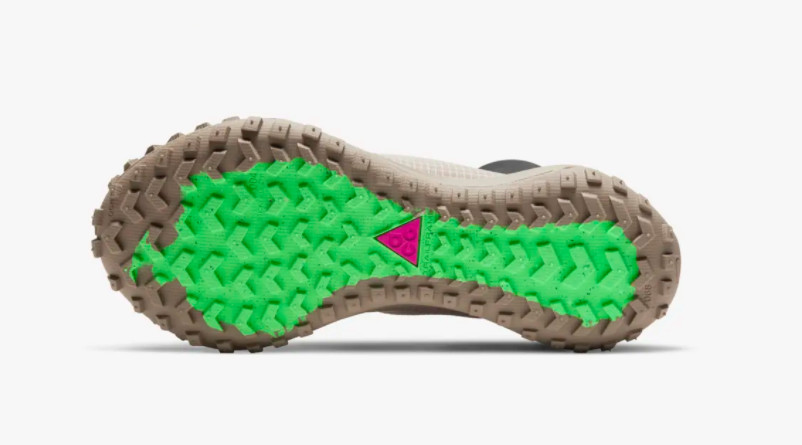
For trail runners, a solid outsole is a key detail that the ACG takes care of. This shoe features a hard rubber that wraps up around the big toe for ample protection and uses thick lugs on a sticky outsole for a strong grip. The upper is also unique with its turtleneck-like ankle cover and new enclosure system.
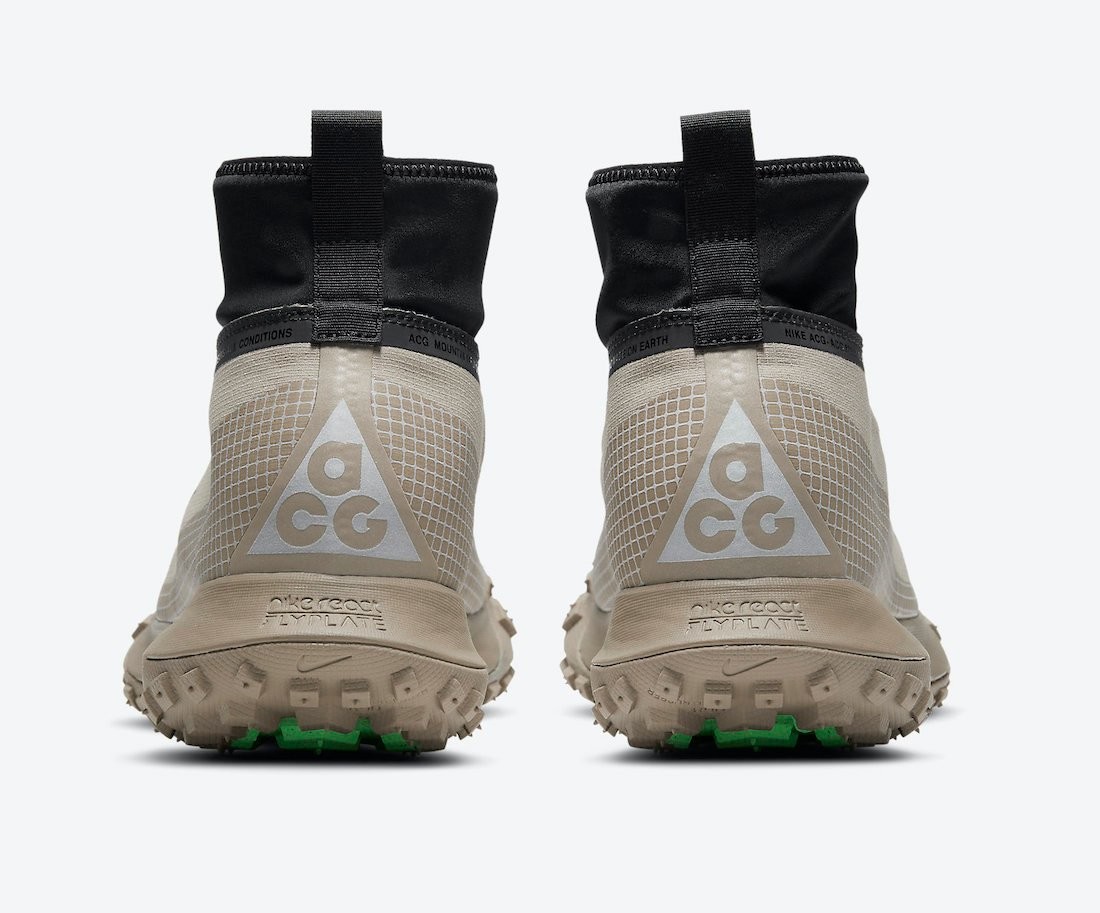
The lacing system doesn’t require the user to tie their shoes – in fact, the laces are hidden under the Gore-Tex. All they have to do is pull or loosen, and they’re on their way.
While the Mountain Fly seems geared toward the trail runner, it could also certainly be used as a winter running shoe for those who live in harsher climates. If you’re someone who’s looking for a versatile cold-weather shoe, this could be your perfect buy. At $285 CAD ($217US), it’s also slightly more affordable than Nike’s top-end carbon-plated racing shoes.
One caution about this shoe: while its stack height is certainly lower than the company’s road racers, it still appears a little higher than other trail shoes. If you’re new to roots, rocks and unsteady footing, maybe opt for a shoe that sits a little lower to the ground until you’re comfortable with your new running surface. The shoe will be available on Nike.ca next Thursday.
(11/14/2020) ⚡AMPby Madeleine Kelly
These Track Photographers Are Giving Back to an Oregon Community Hit Badly by Wildfires
Just weeks after photographing a track meet in the area, they are selling photos to help with recovery.
The night prior to the Big Friendly track meet on July 17, Jake Willard was so excited he couldn’t sleep.
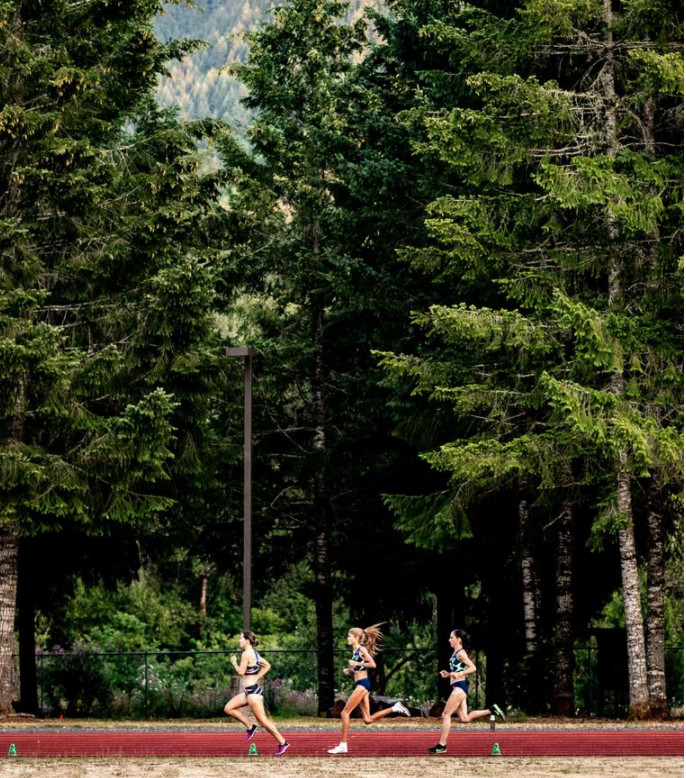
It had been months since the Eugene, Oregon-based photographer covered a race of any kind, due to the COVID-19 outbreak. And he couldn’t wait to shoot the elite-only competition at the McKenzie Community Track, situated among towering pine trees next to the McKenzie River in Vida, Oregon.
On July 17, Willard and fellow photographers Howard Lao and Tim Healy took pictures of some of the world’s best athletes. They watched world bronze medalist Shannon Rowbury run 8:40.26—the fastest performance in the world at that point—to win the women’s 3,000 meters. Olympic silver medalist Nijel Amos ran a world lead in the men’s 600 meters. And three professional training groups competed against each other in a rarely contested mixed-gender relay, among other standout performances.
The meet at the McKenzie Community Track was the second of five competitions in the Big Friendly Series, which were COVID-adjusted events organized by Portland Track this summer. With most tracks closed during the pandemic, Portland Track scrambled to coordinate competitions with different facility organizers. And the McKenzie Community Track board of directors was one of the groups that offered to help.
We thought [hosting the meet] was a really good gesture,” Duane Aanestad, vice president of McKenzie Community Track and Field, told Runner’s World. “We got the track here, there’s nothing going on, go for it.”
Big Friendly organizers required negative tests from everyone in attendance, didn’t allow spectators inside the facility, and asked the competitors—some racing for the first time this year—to socially distance. While documenting these unprecedented moments, Willard felt at peace for the first time in months.
“It felt like a good day, and the athletes had fun with it,” Willard told Runner’s World. “There was a noticeable camaraderie for everyone in attendance, a lot of smiles, a lot of laughing, a lot of elbow bumps instead of high-fives. It was cool to see everyone there enjoy that for a moment, life was normal. Track was the center of our universe.”
But weeks after the Big Friendly meets, the same community that welcomed local track athletes needed major assistance. In early September, the region was nearly decimated by the Holiday Farm Fire, a 173,000-acre blaze that burned more than 430 homes and infrastructure in the McKenzie River Valley. As reported by The Oregonian, the photographers and Portland Track organizers responded to the crisis by giving back to the community that opened its doors to them.
“[McKenzie board of directors] were such a great, welcoming community when we were trying to figure this out,” Michael Bergmann, president of Portland Track, told Runner’s World. “We were literally flying by the seat of our pants, and so we just wanted to return that favor as part of the track and field community in bringing that care for a community that’s in pain.”
As Lao monitored the fire from his home in Portland, he emailed Willard and Healy on September 12, suggesting they sell prints of their photographs from the competition and donate the proceeds. In coordination with Portland Track, the photographers each donated three photos for an Etsy shop, where funds from every photo sold goes to the McKenzie Community Recovery Fund. As of November 10, the Portland Track Store has made 12 sales.
“It was a really big team effort from everybody,” Lao told Runner’s World. “We’re just trying to get some relief down to the people there. The track was used for a track meet in the summer and then it was used for a safe meeting place during the fire. It’s more than just a track.”
Retired track coach Jeff Sherman is one of the local contacts that helped coordinate the Big Friendly. When the fire hit the McKenzie community, Sherman and his family were able to evacuate to eastern Oregon. But many were unable to leave because debris blown over by the blaze blocked the roadways. Residents took refuge in the track infield, where a fire crew worked tirelessly to protect them from the flames.
“[The fire] burned right up to the fencing on the track and a metal building with hurdles stored inside, it scorched the back of that,” Sherman said. “From what I understand, people were there for about four or five hours.” He said rescue crews ultimately led residents to safety with road-clearing equipment around 5 a.m. local time.
Weeks later, the McKenzie community is working to rebuild after the fire’s mass destruction. But the gesture from Portland Track and the photographers is providing a bright spot in a time of need.
“[Portland Track] were reaching out from the get-go to ask if we needed help,” Aanestad said. “It seemed like we were part of a family, and you take care of family.”
(11/14/2020) ⚡AMPby Runner’s World
JAAF Study of 787 Races Held Since July Finds One Case of Someone Contracting COVID-19
On Nov. 9 on its website the JAAF published the results of a research report looking at 787 races and track meets nationwide held during the period from July 1, when competitions resumed following months of cancelations and postponements in the early days of the coronavirus crisis, through Oct. 4. The report documented only one case of someone who was involved in one of the races contracting COVID-19 in the two weeks following the event they attended.
The study surveyed 53 organizations including the JAAF and corporate and collegiate league governing bodies. As of Nov. 6, 47 of the groups had returned responses. A total of 571,401 athletes and 98,035 officials and staff took part in the 787 races covered by the survey. 529 of those events were held without spectators, and JAAF guidelines specify safety measures such as simplified opening ceremonies and race staff wearing masks and goggles when assisting struggling athletes.
(11/14/2020) ⚡AMP
by Japan Running News
How This Nurse, Who Works in a COVID-19 ICU, Changed Her Diet and Ran Off 105 Pounds
“I feel like a new person. Doctors who haven’t rotated in the ICU in a while don’t recognize me.”
Name: Lindsay JendrekAge: 38Occupation: NurseHometown: Knoxville, Tennessee
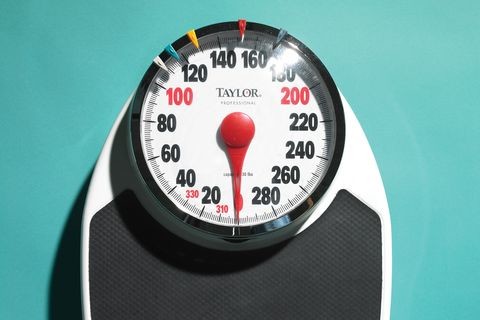
Start Weight: 227 poundsEnd Weight: 122 poundsTime Running: 15 months
I’ve been overweight since childhood, and my weight progressed to actual morbid obesity after I had my son, Harrison, in March 2018. I struggled with hyperemesis gravidarum during my pregnancy, and when I got my appetite back, I started eating everything in sight. I also suffered from postpartum depression, and I was dedicated to breastfeeding; I kept telling myself that a brownie smothered in peanut butter, along with half a Papa Johns pizza, would help my milk supply.
It wasn’t until I saw professional pictures we had taken for my son’s birthday in March 2019 that I thought, Wow, this has gotten bad. You’re tired. You’re inactive. You’re cranky. Do you want Harrison to struggle with his weight the way you did?
I signed up for Weight Watchers the next day.
This wasn’t my first time with the program. Nearly 10 years before, I had massive success with it. I’m a nurse, so I know the dangers and ineffectual results of what I consider to be fad diets and restrictive eating. I wasn’t interested in fasting, keto, or meal replacement shakes.
My diet was pathetic. Lots of refined carbs. Lots of fast food (I’m looking at you, McDonalds), ice cream, pizza, and eating out at restaurants. I ate until I hurt. I ate even after I was full. I ignored my cues. I ate “for my milk supply.” I ate because it made me feel warm and content. I ate because I thought it made me happy.
That needed to change, but I needed to do it my way. I didn’t want to eliminate carbs or dairy. I needed portion control and balance. I also didn’t need a quick fix, because I would simply gain the weight back.
The first couple of weeks on Weight Watchers were difficult, but I liked the point system and followed it. My stomach was so used to being stretched full of food that it was constantly letting me know, “Hey girl, we could do with some chicken McNuggets right about now!”
What I learned through that was balance. I still have peanut butter, but not an entire jar. I occasionally have Vanilla Cokes, but not every day. I enjoy Sonic Blasts weekly. I had Chick-fil-A for lunch the other day. I splurge when I want to.
I’m a creature of habit, so I eat lots of the same things now: Big salads with salmon, ground turkey quesadillas, scrambled eggs and turkey bacon, peanut butter protein bars, or hard-boiled eggs and banana. We keep a Tupperware of grilled chicken nuggets in the fridge, and I’m constantly snacking on those. I’m satisfied when I eat now, and I stop eating when I’m full, regardless of what’s left on the plate.
My eating habits weren’t the only thing that helped me. My husband, KJ, who has been a runner for more than a decade, convinced me to try running. He used to be overweight, and I would mock him: “How boring. How tedious. Your poor knees.”
I started walking with the stroller in the park when Harrison was a baby. In April 2019, when I started my weight-loss journey, I ramped up the walking. I hit the hills. I went faster. I got an Apple watch because, again, I like numbers.
I’m not one for group workout classes; I prefer my own pace, literally. Running can be as social or as solitary as you want. Me. The baby. And our walks which were slowly but steadily speeding up. Over the next few months, it turned into running.
I remember the early attempts to run at the park, pushing a 40-pound stroller. I could barely run five-hundredths of a mile without my lungs screaming for mercy. I was discouraged and embarrassed. The friend I was walking with was barely flushed, while I was sweating buckets.
But five-hundredths turned into one-tenth. One-tenth turned into two-tenths. Then one day I knocked out half a mile without stopping, and I never looked back.
Since then, I’ve progressed significantly. Those brisk walks in 2019 turned into countless 5Ks and 10Ks. I even hit a distance PR in October of 11.15 miles. I did it with KJ, both of us at our new weights—him 60 pounds down and me at 105 pounds down to 122.
Running is so cathartic for me. I’m a nurse in the COVID ICU at my hospital, and I can be having the worst day, but a run will turn my mood around; four steps into the run, I will start smiling because I know I will feel amazing when I finish.
I lost pretty much half my body weight, and I feel like a new person. Doctors who haven’t rotated in the ICU in a while don’t recognize me. I also try to look at the future I have now. KJ is a pilot for a major airline, and when he would suggest trips, I so often said no. This is my life now, and I don’t want to waste it.
To anyone who wants to go on a similar journey, there is no quick fix. When people have ask me how I lost weight, I say diet and exercise. There’s no magic pill. There’s no secret eating formula. It took work, effort, and sweat, and I love my life now.
(11/14/2020) ⚡AMP
by Runner’s World
Meet the man with 84 FKTs and counting
Jason Hardrath is running toward his goal of setting 100 FKTs
Because of COVID-19 and cancelled races worldwide, 2020 has been the year of the FKT (fastest known time), and while many runners have only recently started chasing route records, this is something that Jason Hardrath of Bonanza, Ore., has been into for years. An elementary school teacher in Oregon and lifelong runner, Hardrath has recorded the most FKTs on the official website of fastest known times, currently sitting at 84, and his ultimate goal is to reach 100.
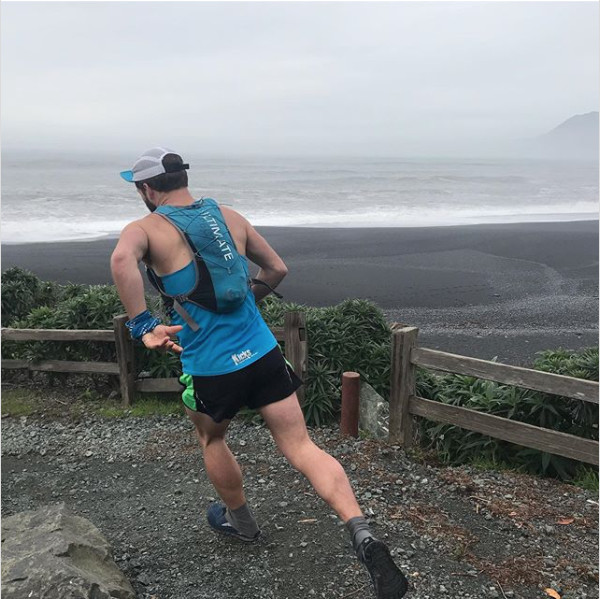
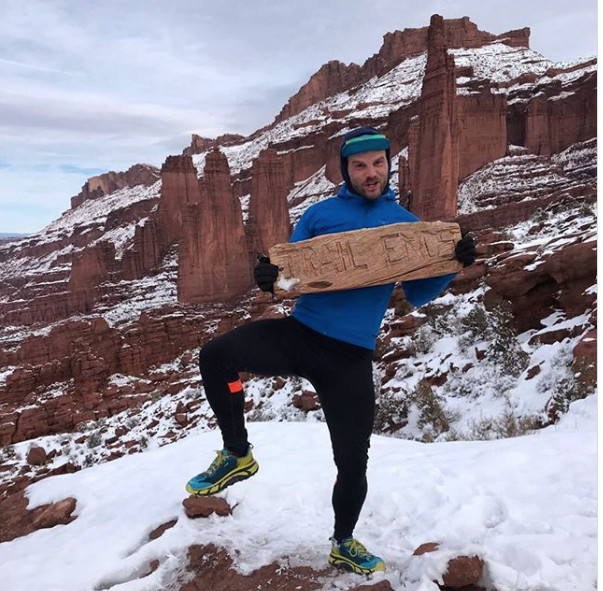
Falling into running
Hardrath says he started running when he was 12 or 13, when he discovered running in phys-ed class. “I became obsessed with trying to break the six-minute-mile as a middle-schooler,” he says. “In the last PE mile of the year, I ran 5:57. That sort of solidified a goal-setting mindset in me.” He stuck with running throughout high school and university, after which he transitioned into marathons and Ironman triathlons. “I was always seeking out the next big challenge I could absorb myself in.”
That all came to an abrupt halt, though, when a brutal car accident left him with a collapsed lung, several broken ribs and tears in his ACL and MCL. While he couldn’t run during his recovery, he was able to hike. This soon led to climbing, and when he eventually made a return to running, he combined these two passions.
“I still can’t run like I used to, but I can at least run a bit,” he says. “And now I have this cool set of mountaineering skills which made FKTs a natural fit to express that skill set.”
Hardrath says his record is a 50-50 split between FKTs that he created and pre-existing FKTs that he beat. For his first few records, he didn’t plan on submitting them as official FKT routes, only deciding to do so after the fact. The first FKT he sought out, though, came in 2018 when he was in Hawaii.
“I managed to win some prize money at a race,” he says, modestly adding that he only won “because nobody fast showed up.” He put that money toward a trip to Hawaii, where he decided to go after the FKT on Mauna Kea, the island’s 4,200m volcano. Hardrath ran the 40-mile route up the mountain, successfully grabbing the route’s unsupported (meaning he had no outside help) FKT in a little over 12 hours.
Now, two years and more than 80 route records later, Hardrath is still chasing FKTs. Some of his biggest results include the Mount Rainier and Mount Shasta “infinity loops.” The Rainier Infinity Loop is in Washington, and it features a 209K route with more than 12,000m of elevation gain that Hardrath completed in two days and seven hours. California’s Mount Shasta Infinity Loop is about half the length of the Rainier route, coming in at 104K with 7,300m of climbing. He finished that route in a little over one day and 10 hours.
Chasing 100
Last year, Hardrath decided to only run FKTs rather than races. “I got ahead of the whole 2020 FKT craze,” he says, “because in 2019, I realized I hadn’t gone a year without paying for multiple races since 2002 or 2003. So I decided that in 2019, I would go a whole year just doing FKTs and not pay for a race.” Hardrath made it through 2019 without competing in any official races, and “then obviously 2020 happened and I couldn’t have raced even if I’d wanted to.”
Luckily, he says he hasn’t tired of chasing FKTs and finding exciting new routes, so the pandemic preventing him from racing didn’t bother him too much. “I love this stuff. I already like it better than racing.” His plans for 2020 had originally been to run his first big international FKTs (Hardrath has only completed route records in the U.S. so far), but travel restrictions put those goals on hold. Instead, as he saw his total number of completed routes climb, he shifted focus and decided to make reaching 100 FKTs his new goal.
Hardrath says he’s “normally a leaf on the wind” when it comes to picking routes to run. He has a notebook with close to 150 options, but he doesn’t have a very strict schedule for when he wants to complete each individual run. Without a week-by-week plan, he has the freedom to complete whichever route feels right to him (based on weather or any other conditions) at the time. That’s not the case for his 100th FKT, though, and he says he “ran into a route that seems kind of perfect” for that milestone.
Hardrath says he loves routes on which he can put his running and climbing skills to use, and he also prefers runs with “some degree of heinousness to them,” which is why he has chosen a route through the Washington Bulgers to be his 100th. “It includes the 100 highest peaks in Washington,” he says. “There’ll be mountains, volcanoes and ridgeline peaks, which will be great for climbing. And something about doing 100 peaks for my 100th FKT just makes it feel special.”
Hardrath doesn’t have a set timeline for reaching his 100th FKT, but at the rate he’s running, it’ll likely be sooner than later. Even when he hits 100, don’t expect him to slow down. He says he loves what he does, and he didn’t start because of FKTs. If these records didn’t exist, he’d still be running and climbing all of these routes. Reaching 100 is just a cool bonus.
(11/14/2020) ⚡AMPby Running Magazine
Illinois runner posts FKT on Chicago Lakefront Trail
Andrew Rylaarsdam ran 57K along the Windy City's waterfront in 3:28:37 to set a new record on the out-and-back route
On Saturday, former NCAA Division III collegiate runner Andrew Rylaarsdam ran the 57K round trip on the Chicago Lakefront Trail (CLT) in record time, completing the out-and-back route in 3:28:37. This is the fastest known time (FKT) for the CLT, which runs along Lake Michigan. En route to his FKT, which beat the previous record by more than 20 minutes, Rylaarsdam ran a 2:31:06 marathon split and passed through 50K in in 2:59:33. He averaged a pace of 3:38 per kilometre throughout the ultramarathon, which, according to his Strava profile, was his longest run to date.
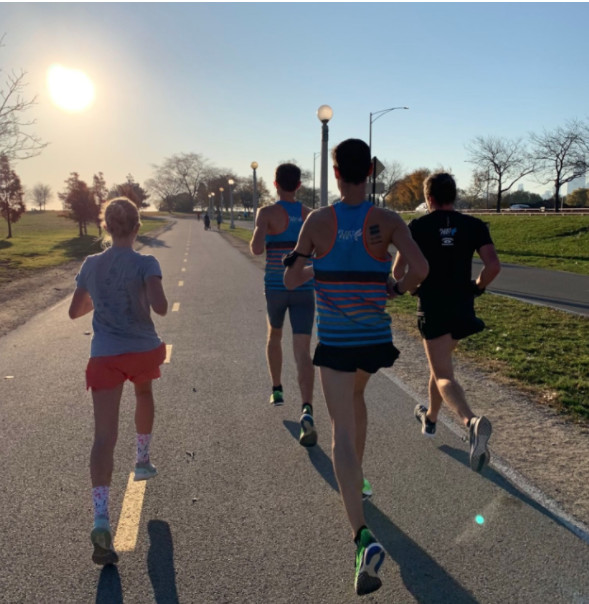
Rylaarsdam’s run
Rylaarsdam ran at Calvin University in Grand Rapids, Mich., and he now lives in Chicago. Heading into the run, he had to beat fellow Chicagoan Joe Cowlin‘s time of 3:51:18, which has been the route FKT since August. Rylaarsdam set out to run a sub-three-hour 50K, and once he accomplished that, the overall FKT was pretty much his as long as he didn’t have an extraordinary implosion in the closing kilometres. He ultimately smashed Cowlin’s time and set a pretty high bar for the next runner who goes after the route record.
In his post-run writeup for fastestknowntime.com, Rylaarsdam wrote that he was “able to stay relaxed and get in a good rhythm” from the start, when he opened with six-minute miles (3:44 per kilometre). “The miles gradually quickened and soon I was clicking off 5:45 pace,” he wrote. “It felt good. It was hard to tell how long it would feel good.”
At around 33K, he said things started to get tough, but he pushed hard for the next 17K to fight for that sub-three 50K split, which he managed to reach with just seconds to spare. “From there, it was just about hanging on,” he wrote. Despite cramps in his legs and rising temperatures in the mid-morning sun, Rylaarsdam made it to the route finish line well below the record.
In his writeup, Rylaarsdam added a word of thanks to Jamie Hershfang, who paced him on a bike throughout his whole run. He had other pacers along the route, but Hershfang was the only person who knew exactly what Rylaarsdam was in for ahead of the attempt after having run the CLT female FKT just a month earlier. She covered the CLT in 4:14:43, and she actually had to run 59K (two kilometres farther than Rylaarsdam’s run) due to a route blockage on her way back toward the finish. Even with the unexpected hiccup, she managed to run a quick result and, like Rylaarsdam, set a high bar for future attempts.
(11/14/2020) ⚡AMPby Running Magazine
Elite runners need a specific combination of physiological abilities to have any chance of running a sub-two-hour marathon, new research shows
The study is based on detailed testing of athletes who took part in Nike's Breaking2 project -- an ambitious bid to break the two-hour barrier.
Professor Andrew Jones, of the University of Exeter, said the findings reveal that elite marathon runners must have a "perfect balance" of VO2 max (rate of oxygen uptake), efficiency of movement and a high "lactate turn point" (above which the body experiences more fatigue).
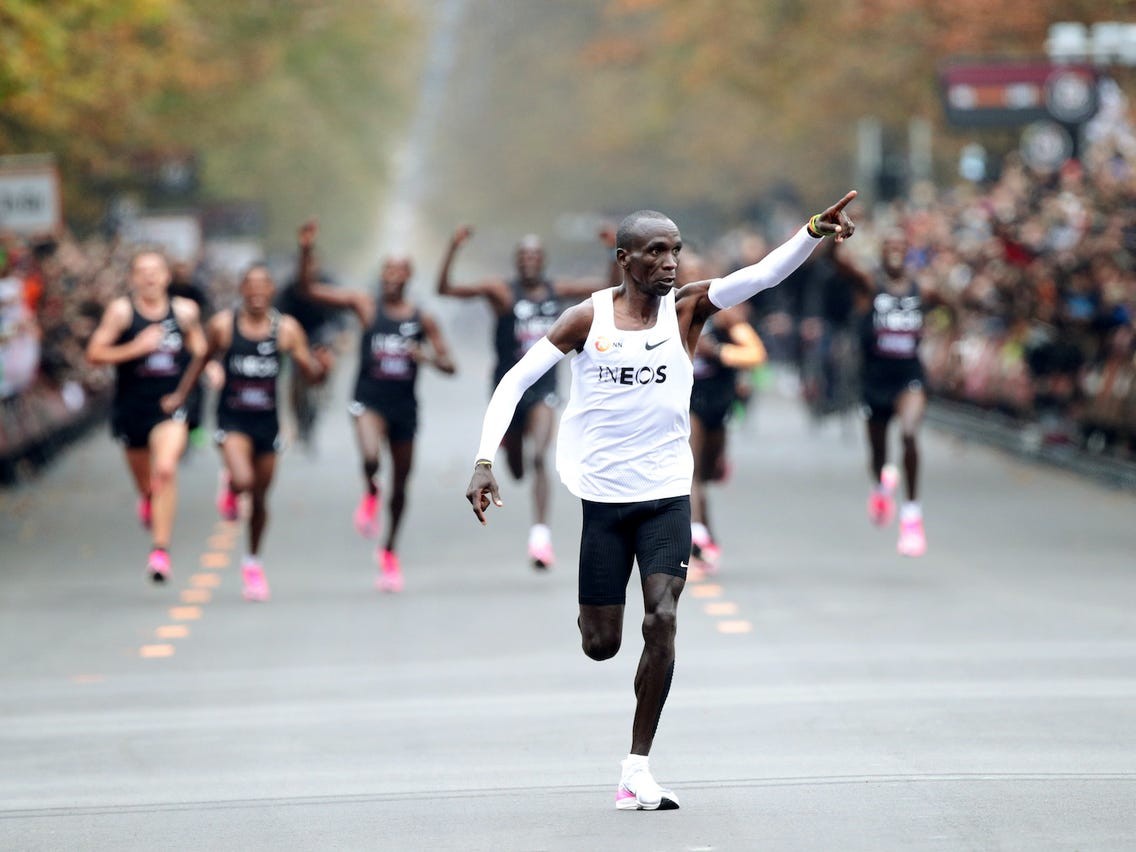
The VO2 measured among elite runners shows they can take in oxygen twice as fast at marathon pace as a "normal" person of the same age could while sprinting flat-out.
"Some of the results -- particularly the VO2 max -- were not actually as high as we expected," Professor Jones said.
"Instead, what we see in the physiology of these runners is a perfect balance of characteristics for marathon performance.
"The requirements of a two-hour marathon have been extensively debated, but the actual physiological demands have never been reported before."
The runners in the study included Eliud Kipchoge, who took part in Breaking2 -- falling just short of the two-hour target -- but later achieving the goal in 1:59:40.2 in the Ineos 1:59 challenge.
Based on outdoor running tests on 16 athletes in the selection stage of Breaking2, the study found that a 59kg runner would need to take in about four litres of oxygen per minute (or 67ml per kg of weight per minute) to maintain two-hour marathon pace (21.1 km/h).
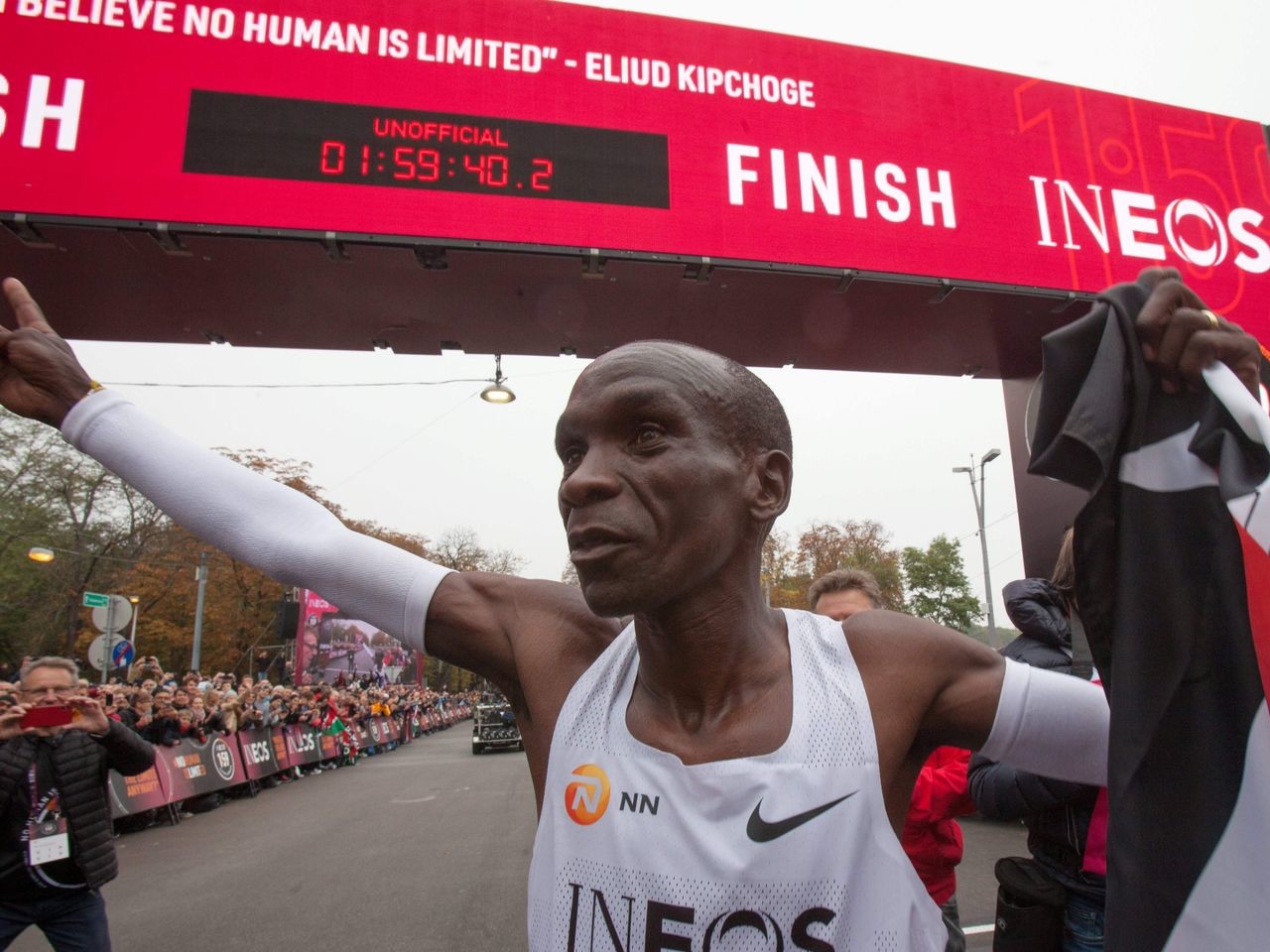
"To run for two hours at this speed, athletes must maintain what we call 'steady-state' VO2," Professor Jones said.
"This means they meet their entire energy needs aerobically (from oxygen) -- rather than relying on anaerobic respiration, which depletes carbohydrate stores in the muscles and leads to more rapid fatigue."
In addition to VO2 max, the second key characteristic is running "economy," meaning the body must use oxygen efficiently -- both internally and through an effective running action.
The third trait, lactate turn point, is the percentage of VO2 max a runner can sustain before anaerobic respiration begins.
"If and when this happens, carbohydrates in the muscles are used at a high rate, depleting glycogen stores," Professor Jones explained.
"At this point -- which many marathon runners may know as 'the wall' -- the body has to switch to burning fat, which is less efficient and ultimately means the runner slows down.
"The runners we studied -- 15 of the 16 from East Africa -- seem to know intuitively how to run just below their 'critical speed', close to the 'lactate turn point' but never exceeding it.
"This is especially challenging because -- even for elite runners -- the turn point drops slightly over the course of a marathon.
"Having said that, we suspect that the very best runners in this group, especially Eliud Kipchoge, show remarkable fatigue resistance."
The testing, conducted in Exeter and at Nike's performance centre in Oregon, USA, provided a surprising experience for a group of amateur runners in the UK.
"We tested 11 of the 16 runners at Exeter Arena a few years ago," Professor Jones said.
"Some local runners were there at the time, and it was a real eye-opener for them when a group of the world's best athletes turned up.
"The elite runners were great -- they even joined in with the local runners and helped to pace their training."
Story Source:
Materials provided by University of Exeter.
(11/13/2020) ⚡AMPby University of Exeter


